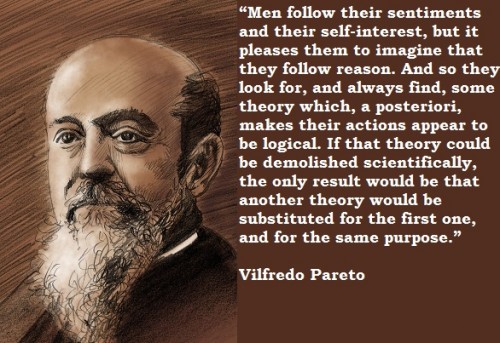
Robert Steuckers:
Réflexions générales sur l’état de la “démocratie” en Belgique
Conférence prononcée à Louvain, Salle Maria-Theresa, 22 mars 2012
Traduction française du script original néerlandais
A Jean E. van der Taelen (1917-1996), qui a lutté jusqu’à son dernier souffle pour une “démocratie directe et décisionnaire”.
“Qu’est-ce que la démocratie?” et “Qu’est-ce que la démocratie dans l’Etat belge aujourd’hui?” sont les deux questions auxquelles vous m’avez demandé de répondre dans le cadre de cette modeste conférence. Chacun semble savoir ce qu’est la démocratie mais force est de constater que la grande majorité de nos concitoyens, qu’ils soient Flamands, Wallons ou Allemands ne savent pas trop bien comment fonctionnent les mécanismes de l’Etat où ils vivent, Etat qui est théoriquement une “démocratie”.
Cet Etat est né en 1830, je ne vous apprends rien, et a voulu d’emblée se créer comme une démocratie modèle, en imitant paradoxalement certaines effervescences révolutionnaires françaises (plutôt celles de juillet 1830 que celles de 1789) tout en conservant des modes non démocratiques de fonctionnement, émanant du centralisme jacobin et bonapartiste, qui avaient pourtant été maintenus sous le régime du Royaume-Uni des Pays-Bas (1815-1830). Le nouvel Etat belge de 1830 combine de manière quelque peu incohérente des aspirations démocratiques, voire anarchisantes, avec une volonté de se référer à des modèles français tout en s’en défiant (notamment dans les milieux catholiques). La “révolution belge” de 1830 n’est donc pas un phénomène homogène: s’y téléscopent une volonté démocratique et constitutionaliste (que l’on repère surtout dans les pays allemands, en rébellion contre un certain centralisme prussien et contre la volonté anti-révolutionnaire de Metternich), une révolte populaire et anarchique pour le pain à Bruxelles à la fin de l’été 1830, un espoir d’ascension sociale plus rapide chez les catégories de la population qui avaient bénéficié du régime bonapartiste (observable chez les Libéraux de l’époque), un élément réactionnaire catholique qui refuse d’obéir à un Prince protestant de la dynastie des Orange-Nassau (et est prêt à s’allier avec le “diable” libéral pour s’en débarrasser), etc. Ce noeud inextricable de contradictions ira en s’accentuant, connaîtra parfois des périodes de relatif apaisement, pour aboutir au chaos tranquille et à l’indifférence généralisée d’aujourd’hui, face à un pouvoir dont les fondements religieux ou philosophiques et les rouages du fonctionnement apparaissent de plus en plus opaques.
A l’origine du fait belge: des troupes hétéroclites de mercenaires
Le député et historien Karim Van Overmeire a publié récemment, au sein du mouvement flamand, une histoire très fouillée de cette révolution de 1830, en rappelant notamment qu’il a fallu, comme en Syrie aujourd’hui, faire appel à des mercenaires issus des bas-fonds de Paris (la “Légion belge” du faux Marquis Doulcet de Pontécoulant) ou de Londres (les compagnies de Lecharlier) pour conquérir les Flandres, que ces mercenaires pilleront à l’occasion quand les caisses du nouvel Etat ne pouvait pas encore les payer décemment. Parmi ces mercenaires, on trouvait certes des Belges émigrés pour toutes sortes de motifs (relevant généralement du droit commun) mais aussi de nombreux Français, quelques Britanniques ou Irlandais, beaucoup d’Allemands, quelques Italiens et Ibériques. L’évocation de ces mercenaires turbulents est une rengaine du mouvement flamand, me diront sans doute mes lecteurs francophones, soucieux de se démarquer de ce “mouvement flamand” qu’ils craignent, souvent de manière irrationnelle. Cependant, la plus belle histoire de ces troupes a été écrite par Pierre Nothomb, l’arrière-grand-père d’Amélie Nothomb, écrivain en vue aujourd’hui, qui était un défenseur catholique de l’Etat belge, un adversaire des autonomistes flamands et un germanophobe dans la première phase de sa carrière. Dans un recueil de “bons textes”, établi en 1942 et intitulé “Curieux personnages” (éd. “Les Oeuvres”), Pierre Nothomb narre les tribulations de Pierre-Joseph Lecharlier, celui qui a levé les “volontaires belges de Londres” en 1830. Sous-officier du RU des Pays-Bas à Mons en 1817, Lecharlier se fait remarquer pour son inconduite, est ensuite incorporé dans un régiment disciplinaire à Hardenwijck; il déserte, rejoint une compagnie étrangère de l’armée française à Paris puis déserte une nouvelle fois —car il s’ennuie dans l’armée de la Restauration— pour se retrouver à Londres en 1824. Ses biographes sont étrangement silencieux sur ses activités en Angleterre: on chuchote qu’il a été contrebandier. En 1830, il lève des volontaires en Angleterre (mais, parmi eux, aucun Anglais!) et débarque à Bruxelles le 5 octobre, juste après les “journées de septembre”. La troupe de Pontécoulant y est déjà, composée en majorité de Parisiens recrutés dans le “Café belge”, rue Saint-Honoré. Le reste de cette petite armée privée compte des volontaires de toutes les nations. Doulcet de Pontécoulant connaissait la guerre, et même la “petite guerre”, le “Kleinkrieg” des partisans: il devait, au moment de l’effondrement de l’empire napoléonien, commander les francs tireurs de la Haute Saône contre les armées autrichiennes qui venaient de franchir les Vosges alsaciennes (un tableau gigantesque évoque ce passage au Musée militaire de Vienne); mis à pied au retour de Louis XVIII, il sert quelques années dans l’armée brésilienne. D’autres équipes de déclassés et d’aventuriers sont présentes (celles de Coché, Bauwens, Maréchal et Molesini-Sautel), en tout 700 à 900 hommes. Ces hommes s’emparent ensuite de Gand où Bauwens manque d’occire un magistrat de la ville, ce que l’oblige à quitter la troupe avec une trentaine de compagnons qui pillent la Flandre rurale pour subvenir à leurs besoins et pour se constituer une petite cagnotte.
Après les Flandres, l’Algarve
Doulcet de Pontécoulant tentera aussi de conquérir la Flandre Zéelandaise pour dégager l’Escaut et permettre au nouveau royaume en gestation de profiter des avantages du port d’Anvers, toujours tenu par la garnison loyaliste. Ces aventuriers turbulents participent ensuite aux combats de 1831-32 et, une fois la paix revenue, le gouvernement les encourage vivement à s’engager dans une “légion étrangère” portugaise, où se bousculaient déjà, au service du parti des “constitutionnels”, des troupes hétéroclites et hautes en couleur, anglaises, françaises, germaniques et écossaises. Le 6 octobre 1833, les volontaires issus des troupes de Pontécoulant, de Lecharlier et des autres capitaines de fortune qui avaient sévi en Flandre, s’embarquent à Ostende, sous le commandement de Lecharlier, et prennent la direction du Portugal, où des volontaires de toutes nationalités s’étaient déjà rassemblés, dont le Colonel Borso, un Italien de Gènes, le major polonais Urbansky et l’officier de cavalerie anglais Bacon. Lecharlier fera, pour Dona Maria, la Reine constitutionaliste, la conquête de l’Algarve contre les soldats de Don Miguel, posé comme “réactionnaire” et comme “tyran”, parce que partisan de maintenir certains dispositifs de l’ancien régime.
Le 1 mai 1835, le gouvernement intègre dans la nouvelle armée belge les officiers de la troupe de Lecharlier, qui avaient combattu au Portugal, sauf leur chef, jugé trop turbulent et indiscipliné. Lecharlier entreprend des démarches pour se faire intégrer dans l’armée: en vain! Dépité par les refus successifs qu’il encaisse, il quitte l’Europe pour chercher l’aventure en Amérique centrale mais disparaît dans le naufrage de son navire. Nothomb raconte avec lyrisme et grand talent littéraire l’aventure de Lecharlier, tout en laissant bien sous-entendre que le personnage, indubitablement pittoresque, ne convenait pas au bon fonctionnement d’une armée normale dans un Etat qui voulait bien vite acquérir un statut de normalité en Europe et se défaire de sa mauvaise réputation “révolutionnaire”.
Ces anecdotes, peu évoquées, sur les événements de 1830-31, démontrent que l’avènement de la “démocratie” officielle en Belgique ne s’est pas fait avec l’assentiment du gros du peuple, généralement acceptant et peu intéressé à la politique (contrairement à ses voisins français ou allemands) mais 1) par le déclic d’une révolte locale anarchisante sans projet politique défini, uniquement pour le pain, à Bruxelles et 2) par le truchement de troupes aventurières, recrutées dans les bas-fonds de villes étrangères comme Paris, Londres ou Roubaix, comme on recrute aujourd’hui à Molenbeek ou à Schaerbeek des djihadistes qui luttent contre le pouvoir établi en Syrie. L’avènement, dans la violence également et avec les mêmes acteurs, du “constitutionalisme” au Portugal participe du même schéma opératoire: les puissances occidentales, subversives dans leurs fondements, recrutent des déclassés pour forcer des pays limitrophes à adopter des principes de gouvernement semblables aux leurs, pour mettre en selle des régimes prêts à faire leur politique et surtout peu susceptibles de s’allier avec les puissances traditionnelles du coeur du continent.
Opposition au système Metternich – L’oeuvre politique d’Ernst Moritz Arndt
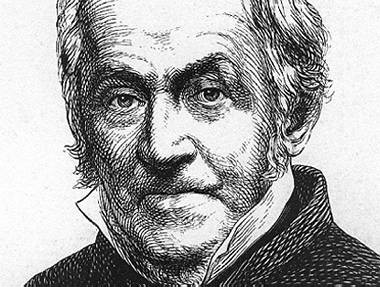 Il n’empêche qu’au cours des trois ou quatre premières décennies du 19ème siècle, les peuples d’Europe aspiraient à bénéficier d’une constitution démocratique et voulaient un élargissement du droit de vote aux catégories plus modestes de la population. Les peuples avaient été mobilisés pour faire la guerre contre Napoléon, surtout en Prusse où les bataillons de volontaires de 1813 s’étaient recrutés dans toutes les strates de la population, sans aucune distinction de classe. L’obligation de verser son sang, aux yeux des anciens soldats, devait être compensée par le droit d’intervenir “démocratiquement” dans la formation des gouvernements, des pouvoirs législatifs et exécutifs. Plusieurs petits soulèvements locaux ont ainsi secoué l’Allemagne entre 1825 et 1835: tous portaient, en signe de ralliement, un drapeau rouge-noir-or, symbole de “démocratie” dans les pays germaniques. Ces couleurs ressemblent à celles dites du Brabant, rouge-jaune-noir, utilisées lors de la “révolution” de 1789 contre les réformes éclairées de l’Empereur Joseph II. La différence, de taille, c’est que la révolte anti-joséphienne de 1789 était ultra-réactionnaire, dirigée contre les “Lumières” du despotisme éclairé, et ne comprenait qu’une aile minoritaire libérale, dite “vonckiste”, rapidement mise hors circuit par le déchaînement, dans la rue, d’une violence inouïe. Celle de 1830 a toutes les apparences du libéralisme du début du 19ème, affublé de quelques oripeaux romantiques (la “Muette de Portici”) mais sans l’atout de la politique et de la pensée romantiques, telles que les a décrites un Georges Gusdorf, éminent professeur de l’université de Strasbourg, dans ses multiples volumes consacrés à l’évolution de la pensée du 18ème au 19ème. Et sans la rigueur et la concision de la pensée d’Ernst Moritz Arndt, populiste réclamant une constitution, à la manière des Lumières et du libéralisme du début du 19ème, mais sans la folie révolutionnaire française de vouloir faire table rase de tous les legs du passé ethno-national, enclenchant de la sorte un “processus de dégénérescence” irréversible, faisant basculer les Lumières dans l’ “Ungeist”, le “non-esprit”; en effet, dans son ouvrage “Deutsche Volkwerdung” (= “Le devenir-peuple des Allemands”), il démontre et explique qu’un peuple ne devient peuple que s’il transforme tous ses ressortissants en “zoon politikon” (= “politische Menschen”), ce qui implique d’abjurer les idées et les attitudes réactionnaires qui le minorisent (Kant!), de refuser le cosmopolitisme (expression d’impolitisme dégénéré, déduit d’une coquetterie volontairement inattentive à tout ce qui relève du “hic et nunc”), de refuser avec la même vigueur les pensées mécanicistes et inorganiques (celles de la révolution française qui ne font que laïciser et républicaniser l’absolutisme anti-populaire). Le peuple, en l’occurrence le peuple allemand, ne devient un vrai peuple, à l’instar des Suédois (la Suède est le modèle d’Arndt), donc un peuple politique, que s’il respecte et cultive l’héritage de ses pères, génère une vie artistique qui lui soit propre, adhère aux valeurs héroïques et conserve une vigueur vitale qui en fait en permanence un peuple jeune, challengeur face à toutes les décrépitudes. Enfin, un peuple n’est peuple que si le droit qu’il se donne puise dans les traditions juridiques qui sont les siennes et ne se réfère jamais à des modèles juridiques étrangers (allusion au droit néo-romain du Code Napoléon). Ernst Moritz Arndt était perçu comme un “jacobin”, comme un dangereux révolutionnaire, comme un “démagogue”, par les forces réactionnaires de son époque. On doit plutôt le considérer comme un combattant de la liberté, une liberté qui ne doit rien à la chimère de la “méthodologie individualiste” mais s’inscrit dans le cadre d’un destin collectif, auquel aucun citoyen ne peut se soustraire.
Il n’empêche qu’au cours des trois ou quatre premières décennies du 19ème siècle, les peuples d’Europe aspiraient à bénéficier d’une constitution démocratique et voulaient un élargissement du droit de vote aux catégories plus modestes de la population. Les peuples avaient été mobilisés pour faire la guerre contre Napoléon, surtout en Prusse où les bataillons de volontaires de 1813 s’étaient recrutés dans toutes les strates de la population, sans aucune distinction de classe. L’obligation de verser son sang, aux yeux des anciens soldats, devait être compensée par le droit d’intervenir “démocratiquement” dans la formation des gouvernements, des pouvoirs législatifs et exécutifs. Plusieurs petits soulèvements locaux ont ainsi secoué l’Allemagne entre 1825 et 1835: tous portaient, en signe de ralliement, un drapeau rouge-noir-or, symbole de “démocratie” dans les pays germaniques. Ces couleurs ressemblent à celles dites du Brabant, rouge-jaune-noir, utilisées lors de la “révolution” de 1789 contre les réformes éclairées de l’Empereur Joseph II. La différence, de taille, c’est que la révolte anti-joséphienne de 1789 était ultra-réactionnaire, dirigée contre les “Lumières” du despotisme éclairé, et ne comprenait qu’une aile minoritaire libérale, dite “vonckiste”, rapidement mise hors circuit par le déchaînement, dans la rue, d’une violence inouïe. Celle de 1830 a toutes les apparences du libéralisme du début du 19ème, affublé de quelques oripeaux romantiques (la “Muette de Portici”) mais sans l’atout de la politique et de la pensée romantiques, telles que les a décrites un Georges Gusdorf, éminent professeur de l’université de Strasbourg, dans ses multiples volumes consacrés à l’évolution de la pensée du 18ème au 19ème. Et sans la rigueur et la concision de la pensée d’Ernst Moritz Arndt, populiste réclamant une constitution, à la manière des Lumières et du libéralisme du début du 19ème, mais sans la folie révolutionnaire française de vouloir faire table rase de tous les legs du passé ethno-national, enclenchant de la sorte un “processus de dégénérescence” irréversible, faisant basculer les Lumières dans l’ “Ungeist”, le “non-esprit”; en effet, dans son ouvrage “Deutsche Volkwerdung” (= “Le devenir-peuple des Allemands”), il démontre et explique qu’un peuple ne devient peuple que s’il transforme tous ses ressortissants en “zoon politikon” (= “politische Menschen”), ce qui implique d’abjurer les idées et les attitudes réactionnaires qui le minorisent (Kant!), de refuser le cosmopolitisme (expression d’impolitisme dégénéré, déduit d’une coquetterie volontairement inattentive à tout ce qui relève du “hic et nunc”), de refuser avec la même vigueur les pensées mécanicistes et inorganiques (celles de la révolution française qui ne font que laïciser et républicaniser l’absolutisme anti-populaire). Le peuple, en l’occurrence le peuple allemand, ne devient un vrai peuple, à l’instar des Suédois (la Suède est le modèle d’Arndt), donc un peuple politique, que s’il respecte et cultive l’héritage de ses pères, génère une vie artistique qui lui soit propre, adhère aux valeurs héroïques et conserve une vigueur vitale qui en fait en permanence un peuple jeune, challengeur face à toutes les décrépitudes. Enfin, un peuple n’est peuple que si le droit qu’il se donne puise dans les traditions juridiques qui sont les siennes et ne se réfère jamais à des modèles juridiques étrangers (allusion au droit néo-romain du Code Napoléon). Ernst Moritz Arndt était perçu comme un “jacobin”, comme un dangereux révolutionnaire, comme un “démagogue”, par les forces réactionnaires de son époque. On doit plutôt le considérer comme un combattant de la liberté, une liberté qui ne doit rien à la chimère de la “méthodologie individualiste” mais s’inscrit dans le cadre d’un destin collectif, auquel aucun citoyen ne peut se soustraire.
Les effervescences constitutionalistes en pays allemands
Le cycle révolutionnaire-national-constitutionaliste-démocrate en Europe du Nord commence sans doute le 26 mai 1818, quand le Roi Maximilien-Joseph de Bavière accorde une constitution à ses sujets, assortie d’une représentation bicamérale, avec un sénat composé de représentants de la haute noblesse et une chambre basse, composée de la petite noblesse, de la bourgeoisie et de la paysannerie, ce qui impliquait un élargissement très généreux du cens électoral. Le 22 août de la même année, le Grand-Duc Charles de Bade accorde une constitution encore plus libérale à ses sujets. Le 25 septembre 1819, c’est au tour du Roi Guillaume de Wurtemberg d’octroyer à son peuple une constitution similaire à celles de Bavière et de Bade. Dans le reste des pays allemands, la répression s’organise autour d’une “Commission centrale d’enquête” basée à Mayence et frappe les intellectuels. Metternich fait réaffirmer le “principe monarchique” et cherche à dépouiller les chambres de leurs prérogatives, à les réduire à de simples organes de consultation. Malgré cette pression, le Grand-Duc de Hesse-Darmstadt est contraint d’élargir le cens et de modifier la constitution dans un sens plus démocratique, le 18 mars 1820. Au printemps 1830, fin mars, le Grand-Duché de Bade, avant les soulèvements de Paris et de Bruxelles, évolue vers un libéralisme plus souple encore. En juillet 1830, la France devient une monarchie constitutionnelle. En septembre 1830, comme à Bruxelles, les Brunswickois se révoltent et chassent leur Duc, qu’ils s’étaient mis à haïr. Le 5 janvier 1831, le Prince électeur Guillaume II de Hesse accorde une constitution à ses sujets où le “Landtag” dispose à lui seul du droit de lancer toute initiative d’ordre législatif, de contrôler entièrement le budget et de révoquer les ministres. Le 26 mai 1831, le “Landtag” bavarois oblige le Roi à révoquer le ministre de l’intérieur, Edouard von Schenck. Le 4 septembre 1831, un an après les barricades de Bruxelles, le Roi Antoine de Saxe est contraint d’octroyer à son tour une Constitution. Le 31 décembre 1831, les réformes en pays de Bade prennent de l’ampleur: l’ordonnance réglementant le fonctionnement des communes équivaut presque à autonomiser celles-ci et à politiser de plus larges strates de la population.
Hambach: du constitutionalisme à la révolution
Du 27 au 30 mai 1832 se tiennent les “fêtes nationales” de Hambach, auxquelles participent plus de 30.000 personnes, venues surtout de l’Allemagne du Sud-Ouest, donc de pays bénéficiant déjà d’un régime constitutionnel. Deux délégations étrangères y participent: l’une vient de France, l’autre de Pologne (où la révolte de 1830-31 a été écrasée par les forces prussiennes et russes, garantes de l’ordre voulu par Metternich). Les orateurs réclament cette fois l’abolition du principe monarchique qui maintient, disent-ils, la division de l’Allemagne en petits duchés et principautés. Un république unie, juxtaposée à d’autres républiques nationales en Europe, rassemblerait tous les Allemands en un seul Etat. La “fraternité démocratique” entre les peuples remplacerait la “Sainte Alliance” des empereurs, rois et princes, reposant sur le principe monarchique. Avec Hambach se clot l’ère des revendications constitutionalistes au sein d’Etats, petits ou grands, qui pouvaient rester, dans l’optique des contestataires eux-mêmes, des monarchies. C’est un pas que la “révolution belge”, la “Belgische omwenteling” de Maurits Josson, n’a pas franchi: les révoltés cherchaient un roi... (sur Hambach, cf. Wolfgang Strauss, “Ein Volk, das seine Ketten bricht – 150 Jahre Hambach – Parteienfestival oder revolutionäre Erneuerung?”, in: “Mut”, n°177, Mai 1982).
Les troubles qui ont conduit à l’indépendance belge s’inscrivent donc dans un contexte européen de revendications nationales-constitutionalistes (plutôt que “nationales-libérales”) et de contestation de l’ordre établi au Congrès de Vienne en 1815 sous l’impulsion du Prince Metternich, soucieux de ne plus jamais livrer l’Europe aux “démagogues”. Vu l’analphabétisme assez répandu dans les anciens Pays-Bas autrichiens, après un 17ème et un 18ème sans productions culturelles notables (cf. H. J. Elias, “Geschiedenis van de Vlaams Gedachte”, vol. 1), il n’est pas sûr que le gros de la population des provinces belges cherchait un ordre constitutionnel car une telle vision politique aurait impliqué un taux d’alphabétisation plus élevé, justement comme dans les provinces d’Allemagne du Sud (Bade, Bavière, Wurtemberg), auxquelles les souverains avaient concédé des constitutions, ou, à la limite, comme dans l’ex-Duché du Luxembourg, inféodé au Royaume-Uni des Pays-Bas (RUPB), seule région où l’alphabétisation était largement répandue à l’époque. Le RUPB disposait certes d’une constitution, la ‘Grondwet”, mais la volonté royale de moderniser les deux composantes du pays était perçue comme “anti-démocratique” par les libéraux francophiles et post-bonapartistes et par les catholiques, hostiles à toute immixtion royale-protestante dans les affaires scolaires et religieuses des ex-Pays-Bas autrichiens. Les libéraux, majoritairement francophones et culturellement tournés vers la France, contestaient la politique linguistique du Roi Guillaume des Pays-Bas, qui accordait une place prépondérante au néerlandais. Les catholiques voulaient un Etat majoritairement catholique, ce qu’il était, mais cette majorité catholique devait —à leurs yeux et à une époque marquée par l’ultramontanisme— s’imposer sans le moindre partage, être libérée de toute présence protestante-calviniste (et accessoirement de toute influence libérale trop prépondérante). Les catholiques de 1830 se retrouvent plus ou moins sur la même ligne que les révoltés de 1789, les “Statistes” fédéralistes, harangués par un fanatique religieux, le chanoine van Eupen. Les autres, les libéraux francophiles, souvent issus du fonctionnariat napoléonien, veulent s’aligner sur des modèles français, parfois dans l’espoir d’une annexion ultérieure, ou, du moins, espèrent l’avènement d’une monarchie constitutionnelle similaire à celle de la France de Louis-Philippe. Ces deux forces dominantes, après avoir liquidé par corruption la révolte prolétarienne pour le pain à Bruxelles (cf. les travaux de Maurice Bologne), vont donner le ton: les influences diffuses des nationaux-constitutionalistes allemands réémergeront, de manière seulement fragmentaire, dans deux filons contestataires du 19ème siècle (et partiellement du 20ème), le mouvement flamand émergent et les libéraux dits de “gauche” (dont une fraction, allié à d’autres forces situées plus à “gauche”, donnera ensuite naissance au pilier socialiste). Ces deux mouvements militeront notamment pour une alphabétisation générale dans la langue du peuple.
Les avatars du drapeau
L’histoire du drapeau belge témoigne des atermoiements entre factions différentes: quand des mercenaires français hissent le drapeau tricolore bleu-blanc-rouge sur l’Hôtel de Ville de Bruxelles, celui-ci est aussitôt arraché par la garde urbaine, placée à ce moment-là des événements sous la direction de Ducpétiaux et Jottrand, et remplacé par un drapeau rouge-jaune-noir, considéré comme “brabançon”: dans ces couleurs se mêlent le souvenir (sans doute fort diffus et ténu en 1830) des événements de 1789 et une vague adhésion au démocratisme constitutionaliste des pays d’Allemagne du Sud. Au départ, les couleurs sont disposées horizontalement, comme le drapeau de la “révolution brabançonne” de 1789 et comme l’étendard de ralliement des démocrates allemands de l’ère de la Restauration. Les couleurs seront ensuite placées en position verticale, par une sorte de compromis: on ne veut pas du jacobinisme français, forme laïque et révolutionnaire d’absolutisme, mais on ne veut pas davantage du démocratisme allemand; on est constitutionaliste, soit en faveur d’une monarchie constitutionnelle, mais on n’est pas nationaliste: ni à la manière de la bourgeoisie louis-philipparde (cf. Heinz-Gerhard Haupt, “Nationalismus und Demokratie – Zur Geschichte der Bourgeoisie im Frankreich der Restauration”, Europäische Verlagsanstalt, Frankfurt am Main, 1980) ni à la manière des révolutionnaires nationaux-démocratiques qui ont défilé lors des “fêtes” de Hambach en 1832. Ce premier compromis à la belge est symbolisé par les avatars successifs du drapeau du nouvel Etat: couleurs verticales pour montrer que l’on ne va pas trop loin dans la révolte (Gendebien sur le soulèvement prolétarien de Bruxelles: “Une mauvaise farce d’écoliers”), que l’on maintient une partie du fonctionnariat bonapartiste (resté en place à l’époque du RUPB et noyau dur du libéralisme maçonnique belge), que l’on conserve le droit romain à la sauce Bonaparte et que l’on ne revient pas aux traditions juridiques des Flandres et du Brabant (ce qu’un Arndt aurait demandé...), que l’on permet au Roi d’exercer certaines prérogatives d’ancien régime mais que l’on reste néanmoins dans la tradition constitutionaliste. Ce système sera même un modèle pour les députés de l’éphémère parlement de Francfort de 1848: pour l’Allemagne unie, ils ont voulu un régime de monarchie constitutionnelle à la belge voire le Roi Léopold I comme nouvel empereur constitutionnel!
Un noeud gordien que l’on ne peut plus trancher
Le noeud de contradictions demeure irrésolu après l’indépendance de la Belgique et ne peut être tranché (ne sera jamais tranché), à la manière d’Alexandre, parce qu’il n’existe pas de culture politique commune à tous, ni aux communautés linguistiques ni aux factions qui divisent et le pays et chacune de ces communautés, et que les tentatives littéraires de forger un esprit national se sont heurtées à l’indifférence d’une bourgeoisie dominante mais matérialiste et, partant, totalement inculte (cf. le désintérêt pour l’oeuvre de Charles Decoster puis pour les réalisations architecturales de Victor Horta et de son équipe, édifices que l’on commençait déjà à détruire du vivant de l’architecte parce qu’on ne les trouvait pas assez “utiles”!!). La révolte des “libéraux de gauche”, et l’abnégation admirable de jeunes instituteurs cherchant à alphabétiser les masses, notamment à Bruxelles, permettront certes de développer, tardivement, une politique scolaire digne d’un Etat moderne, mais une politique qui se heurtera de manière récurrente à un matérialisme borné et tenace, à des sectarismes totalement anachroniques, à une haine féroce contre tout ce qui relève de la culture humaniste, hier moquée par les “réalistes”, par les suffisants qui qualifiaient les matières scolaires relevant de la culture générale, comme la géographie ou l’histoire, ou des humanités classiques —le grec et le latin— d’inutilités (“ça sert à rien”); aujourd’hui culture générale et joyaux misérablement résiduaires de l’éducation classique sont noyées dans un festivisme hostile à toute qualité et dans un relativisme “interculturel” qui nous fait sombrer dans la barbarie la plus obscurantiste (pour saisir de manière poignante ce que fut l’apostolat de jeunes instituteurs flamands et laïques à Bruxelles au 19ème, lire: Eliane Gubin, “Bruxelles au XIXe siècle: berceau d’un flamingantisme démocratique, 1840-1873”, Crédit communal de Belgique, Coll. “Histoire Pro Civitate”, n°56, 1979).
Pour expliquer l’évolution des “choses démocratiques” dans l’espace devenu belge après la scission du RUPB, il faut rappeler certains principes de la Constitution de ce royaume qui, uni, n’a duré que quinze ans. Cette constitution fonctionnait avec un “peuple-électeur” quantitativement très limité. Cependant certaines dispositions de cette “loi fondamentale” étaient peut-être plus démocratiques que les dispositions actuelles: ainsi, les élections communales avaient lieu tous les six ans, comme aujourd’hui, mais la constitution, jusqu’au début de l’histoire belge proprement dite, prévoyait le renouvellement d’un tiers du collège tous les deux ans, permettant un contrôle plus étroit des mandataires et l’élimination des farceurs et des “bras cassés”, ce qui n’est plus possible aujourd’hui. L’élargissement du cens électoral n’a pas permis de pérenniser ce système plus démocratique: impossible, budgétairement parlant, de réorganiser des élections tous les deux ans dans chacune des communes du royaume. Comment la situation a-t-elle dès lors évolué? L’évolution ultérieure s’explique par des motifs nombreux et divers, qu’il est impossible d’évoquer, même succinctement, dans le cadre de cette causerie. La révolution industrielle, qui prend son envol en Belgique plus rapidement que dans d’autres régions d’Europe continentale, Allemagne comprise, génère un prolétariat déraciné (exode des campagnes vers les villes) et privé de droits politiques. En marge du parti libéral d’abord, dans certains cénacles ultramontains (hostiles au manchestérisme industriel et capitaliste) puis, enfin, dans le parti socialiste, le prolétariat urbain va réclamer un élargissement du cens électoral pour pouvoir voter ou faire voter des lois qui puissent améliorer son sort. Ces revendications seront toujours assorties d’une volonté de conquérir le suffrage universel, “pur et simple” et non pas “universel, capacitaire et familial”. Mais l’augmentation du nombre des électeurs fait qu’il devient impossible de procéder à des élections intermédiaires, tous les deux ans, pour renouveler, le cas échéant, le tiers des conseils communaux, ou de procéder de manière analogue pour les autres assemblées. Paradoxalement, l’idée du suffrage élargi puis universel permet un contrôle démocratique moindre que certains aspects du suffrage censitaire... Une contradiction à laquelle plus personne ne réfléchit sérieusement...
Luciano Canfora et le paradoxe de Condorcet
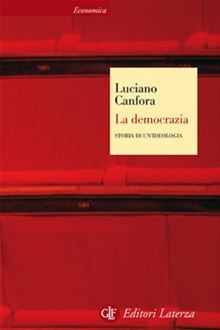 La question du suffrage universel est abordée dans un ouvrage de référence fort bien charpenté du professeur italien Luciano Canfora, intitulé “La democrazia – Storia di un’ideologia” (Ed. Laterza, Roma/Bari, 2004, 3ième éd., 2010). Le Prof. Canfora enseigne la philologie classique à l’Université de Bari et est le directeur de la revue “Quaderni di storia”: à ce titre, il plonge sans cesse dans les archétypes les plus fructueux de nos héritages grecs et latins et s’immerge, armé de cette formidable panoplie intellectuelle, dans le flux du réel contemporain. Dans “La democrazia”, Canfora explique que la revendication du suffrage universel s’est déployée, dans l’histoire européenne, en trois étapes: 1) lors de la révolution française, 2) à la fin de la II° République en France (et donne un pouvoir personnel et césarien au futur Napoléon III), 3) immédiatement après l’effondrement du tsarisme en Russie, pour donner le pouvoir aux commissaires bolcheviques puis, en Allemagne, après la parenthèse de la République de Weimar, à la NSDAP. Pour Canfora, le suffrage universel, bien que nécessaire à la démocratie, est aussi, simultanément, l’instrument qui l’annulle face à des événements forts, exigeant des prises de décision plus rapides. Canfora explique le mécanisme d’annulation démocratique en se référant à un texte de Condorcet, écrit en 1785, le trop peu connu “Essai sur l’application de l’analyse à la probabilité des décisions rendues à la pluralité des voix”. Dans cet essai, qui précède la révolution française de quatre petites années seulement, Condorcet démontre que, s’il y a plus de deux choix, il est impossible d’obtenir un résultat politique cohérent, c’est-à-dire, “d’étendre la transitivité des préférences individuelles aux préférences sociales”. Ainsi, prenons trois électeurs, Messieurs X, Y et Z. La transitivité s’opère aisément si tous votent, par exemple, comme Monsieur X, qui préfère le parti A au parti B, et le parti B au parti C. Mais si X choisit cet ordre ABC tandis qu’Y préfère l’ordre BCA et Z, l’ordre CAB, aucune transitivité parfaite n’est possible: le résultat électoral, traduit en sièges, ne reflètera en aucun cas les opinions ou desiderata de tous les citoyens. C’est là le “noeud gordien” qu’il nous est désormais impossible à trancher selon des procédés démocratiques, sauf à recourir à une nouvelle mouture du césarisme de Napoléon III, aux commissaires bolcheviques (but du nouveau PTB?) ou à un système de parti unique avec chef incontesté, comme l’était la NSDAP allemande.
La question du suffrage universel est abordée dans un ouvrage de référence fort bien charpenté du professeur italien Luciano Canfora, intitulé “La democrazia – Storia di un’ideologia” (Ed. Laterza, Roma/Bari, 2004, 3ième éd., 2010). Le Prof. Canfora enseigne la philologie classique à l’Université de Bari et est le directeur de la revue “Quaderni di storia”: à ce titre, il plonge sans cesse dans les archétypes les plus fructueux de nos héritages grecs et latins et s’immerge, armé de cette formidable panoplie intellectuelle, dans le flux du réel contemporain. Dans “La democrazia”, Canfora explique que la revendication du suffrage universel s’est déployée, dans l’histoire européenne, en trois étapes: 1) lors de la révolution française, 2) à la fin de la II° République en France (et donne un pouvoir personnel et césarien au futur Napoléon III), 3) immédiatement après l’effondrement du tsarisme en Russie, pour donner le pouvoir aux commissaires bolcheviques puis, en Allemagne, après la parenthèse de la République de Weimar, à la NSDAP. Pour Canfora, le suffrage universel, bien que nécessaire à la démocratie, est aussi, simultanément, l’instrument qui l’annulle face à des événements forts, exigeant des prises de décision plus rapides. Canfora explique le mécanisme d’annulation démocratique en se référant à un texte de Condorcet, écrit en 1785, le trop peu connu “Essai sur l’application de l’analyse à la probabilité des décisions rendues à la pluralité des voix”. Dans cet essai, qui précède la révolution française de quatre petites années seulement, Condorcet démontre que, s’il y a plus de deux choix, il est impossible d’obtenir un résultat politique cohérent, c’est-à-dire, “d’étendre la transitivité des préférences individuelles aux préférences sociales”. Ainsi, prenons trois électeurs, Messieurs X, Y et Z. La transitivité s’opère aisément si tous votent, par exemple, comme Monsieur X, qui préfère le parti A au parti B, et le parti B au parti C. Mais si X choisit cet ordre ABC tandis qu’Y préfère l’ordre BCA et Z, l’ordre CAB, aucune transitivité parfaite n’est possible: le résultat électoral, traduit en sièges, ne reflètera en aucun cas les opinions ou desiderata de tous les citoyens. C’est là le “noeud gordien” qu’il nous est désormais impossible à trancher selon des procédés démocratiques, sauf à recourir à une nouvelle mouture du césarisme de Napoléon III, aux commissaires bolcheviques (but du nouveau PTB?) ou à un système de parti unique avec chef incontesté, comme l’était la NSDAP allemande.
Le socialisme: de la volonté de bâtir une “autre société” à la barbarie et l’inculture
La longue marche des socialistes belges vers le pouvoir fait émerger un phénomène typiquement belge (et néerlandais), celui dit de la “pillarisation”, soit l’émergence de ce que les politologues néerlandophones nomment les “zuilen” ou ‘”piliers” de la société. Ces “zuilen” sont constituée par l’ensemble des organisations, associations, etc. qui gravitent autour des trois principaux partis du royaume, les catholiques (bénéficiant d’un antécédant vu l’organisation des paroisses), les libéraux (dont le “pilier” sera toujours moins lourd que les autres) et les socialistes (qui construiront leur pilier pour le rendre presque aussi efficace que celui des catholiques, ou plus efficace encore, dans les régions les plus industrialisées de la Wallonie). Au début de son histoire, le “pilier” socialiste propose ainsi une “autre société”, démarche qui s’exprime partiellement par le mouvement “art nouveau”, avec un Horta qui édifie une “Maison du Peuple” extraordinaire (que les socialistes ultérieurs s’empresseront de faire démolir, preuve la plus emblématique de la barbarie et de l’inculture dans lesquelles ce “pilier” a chaviré!) et par la volonté de créer des écoles, à la suite des pétitions demeurées sans succés des libéraux populistes, soucieux du maintien de la culture: leurs aspirations, leurs démarches, leurs organisations modestes (mais admirables) sont désormais un phénomène politique définitivement disparu. Le flamingantisme premier est issu de ce libéralisme populaire, parfois orangiste et plus rarement bismarckien, surtout à Bruxelles.
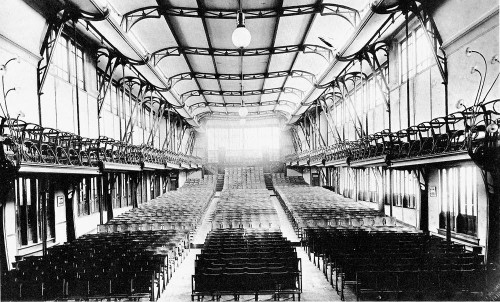
La Maison du Peuple de Bruxelles, oeuvre d'Horta, détruit par les socialistes à la fin des années 50
Après l’effondrement du système scolaire efficace et bien conçu, mis en place par le Roi Guillaume I des Pays-Bas Unis, après la dispariton des lois scolaires du RUPB, l’Etat belge, à ses origines, est un exemple de barbarie effroyable: il n’y a plus, dans ce royaume, de système scolaire digne de ce nom, comme l’explique l’historienne liégeoise Eliane Gubin, spécialiste du flamingantisme démocratique bruxellois du 19ème siècle (cf. également le chapitre consacré à l’analphabétisme, résultat des “révolutions française et industrielle” dans le livre du Prof. Dr. Fernand Lehouck, “Van apathie tot strijdbaarheid – Schets van een geschiedenis van de Belgische vakbeweging 1830-1914”, Orion, Brugge, 1980; le Prof. Lehouck rappelle notamment l’enquête Ducpétiaux de 1843 où 648 ouvriers et ouvrières sur 1000 étaient totalement analphabètes; à Bruges en 1886, 19.179 habitants sur 47.497 demeuraient analphabètes; entre 1868 et 1886, entre 5,6% et 7,8% des enfants en âge d’école primaire fréquentaient les écoles gratuites). Sans écoles bien organisées, il n’y a pas de transmission possible: ce qui explique l’état d’amnésie dans lequel le “machin Belgique” a toujours végété, avec seulement quelques lueurs passagères, comme la volonté de créer une littérature “racique” avec Decoster et Lemonnier, l’émergence du “mythe bourguignon” (Hommel, Colin), le souvenir de Charles-Quint dans des cercles académiques restreints (De Boom, Géoris, Blockmans, Verbrugge, etc.), les tentatives un peu simplistes de Jo Gérard, les efforts des historiens de la littérature (Aron, Quaghebeur, Klinkenberg, Joiret, etc, flanqués des Canadiens Biron et Grutman) dans un milieu qui hélas, lui aussi, n’est qu’académique: rien n’est fait pour insuffler au grand public un sens de l’histoire conforme aux époques les plus sublimes du passé d’entre-Somme-et-Rhin. La preuve? On a supprimé les subsides pour l’un des deux défilés annuels de l’Ommegang (souvenir sublime de Charles-Quint et hommage poignant au principe impérial) pour les affecter à la “Gay Pride” et à la “Zinneken Parade”. Le spectacle n’est plus diffus, comme le disait Guy Debord à propos des démocraties occidentales, il est à nouveau visibilisé et outrancier, comme dans les fascismes, nazismes et autres stalinismes nord-coréens... mais sans bottes ni baudriers ni pas de l’oie. On s’y tortille le cul au rythme des sambas les plus lascives, fessards flasques impudiquement recouverts d’un simple string. On a mieux depuis 2012: les “femens”, dont les charmants gargamels sont maculés de slogans hideux, badigeonnés sans le moindre effort calligraphique, ce qui fait, hélas oublier la Vénus de Milo ou les sculptures de Praxitèle et ôte toute d’envie d’aller les poutouner, dans un grand élan coquin et rabelaisien.
“Autres Lumières” et Kulturstaat
Revenons au 19ème siècle. La reconstitution d’écoles a donc relévé du pur apostolat, de l’abnégation et du dévouement de personnes privées, qui n’ont reçu aucun soutien des autorités en place. Cette posture anti-scolaire, cette attitude de barbarie moderne qu’incarnait le nouvel Etat, né suite aux brutalités des mercenaires recrutés dans les bas-fonds de Londres et de Paris, explique le sentiment anti-belge qui perdurera chez les intellectuels, à commencer par ces instituteurs jeunes et volontaires, idéalistes au sens le plus pur du terme. Ici, il est bon, me semble-t-il, de faire une petite digression, amorce d’une causerie future: un Etat véritablement “démocratique”, au sens que lui aurait donné un philosophe des “autres Lumières” comme Herder, ne devrait-il pas être le “Kulturstaat”, soit l’Etat qui met la préservation de la culture au-dessus de toute autre considération? Ne faut-il pas souhaiter un Etat porté par un idée organique et généreuse (classée à ce titre à gauche de l’échiquier politique!) comme celle théorisée au 19ème par le Norvégien Johan Ernst Sars (cf. Bernhard P. Falk, “Geschichtsschreibung und nationale Ideologie - Der norwegische Historiker J. E. Sars”, Carl Winter Verlag, Heidelberg, 1991)? Cette idée est présente dans bons nombres d’esprits en Allemagne mais n’a jamais trouvé de concrétisation dans les pays germaniques continentaux (en Scandinavie, notamment par l’impact d’un Sars, les choses sont moins dramatiques, la notion d’enracinement est toujours palpable et résiste tant bien que mal à tous les assauts des forces porteuses du déclin irrémédiable de la culture européenne). Elle est très présente toutefois dans le socialisme (Connolly) et le nationalisme (Davis, Pearse) irlandais: même après le second conflit mondial, le Président Eamon de Valera et son ministre Sean MacBride ont répété très souvent, dans les congrès dits “panceltiques” ou à la tribune d’instances internationales, que la mission de l’Irlande dans le monde était de défendre les héritages culturels, garants de l’équilibre international, garants aussi du bonheur des peuples, qui pourront ainsi être en accord avec leur “coeur profond”. Mieux: le recteur de l’Université de Dublin a le droit d’opposer son veto aux lois votées par le Parlement, si ces lois lui semblent des aberrations, imaginées par des échaudés ou des têtes brûlées comme les petits mondes politiciens en produisent tant. Des modèles à méditer.
Paul Belien et le “coup de Loppem ”
Pour un polémiste de la trempe de Paul Belien, la Belgique “pilarisée” d’aujourd’hui a trouvé sa forme en 1919, à la suite du “compromis de Loppem ”, ou “coup de Loppem ”, diront à l’époque les catholiques, pourtant unitaristes et royalistes. Dans le château de Loppem, près de Bruges, les chefs de file des partis libéral, socialiste et catholique, flanqués des représentants du patronat et de la classe ouvrière, décident d’un nouvel agencement de la vie politique du royaume, avec l’approbation du Roi Albert I, soucieux d’éviter tous conflits sociaux et toute contagion par contact avec les “conseils” des soldats allemands révolutionnaires qui avaient fraternisé avec les travailleurs belges dans les villes industrielles (notamment à Liège) en 1918, situation analogue à celle qui avait animé les rues de Strasbourg avant le retour des armées françaises: sur le palais de justice de la métropole alsacienne, on peut toujours, aujourd’hui, apercevoir les impacts des balles et des obus légers, tirés par les Français pour en déloger les “spartakistes” des conseils d’ouvriers et de soldats et leurs alliés locaux. Le Roi craignait aussi la fusion du socialisme révolutionnaire (voire du communisme) avec le nationalisme flamand, parfaitement envisageable en cette période de chaotisation totale des sociétés européennes. Les soldats flamands n’avaient-ils pas crié à l’adresse des officiers français en visite sur le front de l’Yser: “A bas la France! Vivent les Soviets! Vivent les Boches! Vive Lénine! Vive le Kaiser! Vive la Révolution!” (cf. les travaux du Prof. Guido Provoost). Le Roi avait profité de cette “aubaine” pour éviter toute inféodation de l’armée belge au commandement suprême allié, toujours prompt à lancer des offensives inconsidérées et très sanglantes: un Roi demeure soucieux du sang de ses sujets; une république à la française s’en soucie comme d’un guigne! Si le souci du Roi était louable pendant les hostilités, où il souhaitait épargner le sang de ses soldats et demeurer un “belligérant” mais non un “allié” de l’Entente (il n’a prêté de soldats qu’au Tsar), ses craintes de 1919, quand il pensait qu’une révolution était imminente, ont conduit à l’adoption d’un système figé, celui du “coup de Loppem”, qui n’autorise quasiment plus de renouvellement des élites par voie électorale, le suffrage universel pur et simple, voulu par les socialistes, s’avérant plus “bloquant” que les autres formes de suffrage. Si le bourgeois borné et affairiste vote sans cesse pour les mêmes programmes conservateurs de ses avantages, les masses prolétarisées, maintenues analphabètes et manipulées à tire-larigot, votent également pour les mêmes démagogues: le vote des vraies élites culturelles, qui détiennent la longue mémoire, est noyé dans un magma démagogique qui est toujours conservateur et jamais rénovateur ou innovateur. C’est là, sans nul doute, sur le long terme, un effet “hétérotélique” (Jules Monnerot).
Depuis 1919, le système de Loppem barre encore et toujours la route aux challengeurs de la troïka libérale/socialiste/démocrate-chrétienne, en utilisant des méthodes qui ne sont guère reluisantes (et dont se sont servi allègrement les ignares et les pignoufs de la “Sureté de l’Etat”, analphabètes bornés et sans nuances comme le sont les Dupont-Dupond d’Hergé). Dans le pilier catholique, pourtant sûr de faire toujours partie de la troïka vu ses scores impressionnants, des voix se sont élevées pour dénoncer ce partage du pouvoir à trois, surtout qu’il rendait possible, par le suffrage universel pur et simple, introduit après la première conflagration mondiale du 20ème siècle, des tandems catholiques/socialistes (perçus par les critiques catholiques rangés derrière le Cardinal Mercier, d’obédience maurrassienne, comme des aberrations) ou, pire, des majorités libérales/socialistes, portées en coulisses par des ennemis de l’Eglise et du catholicisme. Ces voix étaient plus conservatrices que démocrates-chrétiennes: elles tenteront de se maintenir dans les majorités gouvernementales, même composées avec les socialistes; certains de ces conservateurs —parfois conservateurs de valeurs anciennes et non modernes, tout en étant de vigoureux militants ouvriéristes n’ayant aucune leçon de progressisme social à recevoir des gauches— auront des tentations rexistes mais le rexisme sera très rapidement évincé, après son éphémère succès électoral de 1936.
Absence navrante de références italiennes
Belien a donc raison d’incriminer le “compromis de Loppem”, comme étant un dispositif destiné à geler toute circulation des élites, à tuer dans l’oeuf toute émergence de nouvelles donnes (en dépit des concessions accordées, par la force des choses, à la Volksunie de Schilz et au FDF de Lagasse dans les années 70). Il campe dès lors le système belge comme “non démocratique”, puisqu’il ne laisse aucune tribune d’expression politique dans les assemblées législatives aux forces politiques challengeuses (surtout flamandes et dès lors majoritaires aux niveaux régional et communautaire de la Flandre), pour lesquelles on fabrique des “cordons sanitaires”; Belien a toutefois la naïveté d’en appeler sans cesse au monde anglo-saxon (une bonne partie de son oeuvre livresque et journalistique est rédigée en anglais), pour qu’il aide la Flandre à trouver une “bonne gouvernance”, selon les théories se voulant “démocratiques” qui sont énoncées dans le monde intellectuel britannique ou américain. Belien oublie cependant que, pendant la première guerre mondiale, des lois d’exception, des décrets circonvenant les parlements, ont été adoptés chez tous les belligérants, y compris chez les Anglo-Saxons, et que ce mode de “gouvernance” s’est maintenu en temps de paix, jusqu’à nos jours. Belien, comme, hélas, beaucoup d’intellectuels flamands, ne s’est jamais mis à l’écoute du monde intellectuel italien, dont les productions, innombrables, étudient avec toute la rigueur académique voulue comment circonvenir des partitocraties figées, comme celles qui ont corrompu l’Italie depuis son émergence tardive en tant qu’Etat unitaire sur la scène européenne et comme celle qui sévit en Belgique depuis 1919. Cette habilité à miner le pouvoir des “conformistes” et des “établis” en tous genres a donné successivement l’éclectisme mussolinien, le qualunquisme d’après 1945, et après les “années de plomb” et de répression orchestrée contre toutes les forces challengeuses, l’opération “mani pulite” des années 90 et l’arrivée au pouvoir de trois forces non conventionnelles, la Lega Nord d’Umberto Bossi, l’Alliance Nationale de Gianfranco Fini et “Forza Italia” de Silvio Berlusconi, même si ces deux dernières formations ont sombré dans un conformisme nouveau au bout de quelques mois à peine... Cette habilité explique aussi deux phénomènes relativement neufs: 1) l’apparition à Rome, puis dans toutes les autres villes italiennes, du mouvement “Casa Pound”, classé plutôt à tort qu’à raison dans le sillage du “néo-fascisme” et 2) l’émergence de Beppe Grillo et de son mouvement “va-fanculo” (ce que l’on a bien envie de dire, même en liégeois —“vas’ti fére arrêdjî”— aux di Rupo, Verhofstadt, Decroo, Onkelinks, Dehaene entre autres sinistres personnages).
Belien ne s’est donc pas branché sur les débats italiens, bien plus utiles à son “mouvement flamand” que les pesanteurs ou les simplismes du gourou de Margaret Thatcher, le philosophe moraliste Oakshott (dont Verhofstadt, le nouveau copain de Cohn-Bendit dans les coulisses du Parlement Européen, s’entichait, à l’époque où les vieux syndicalistes gantois, véreux et corrompus, le traitaient de “gamin de merde” – “dââ joeng”), bien plus utiles aussi que les théories des Chicago Boys, que les travestissements boiteux de la pensée de Friedrich von Hayek par le “common sense” des “shopkeepers” presbytériens ou méthodistes, que la pensée “ras-des-pâquerettes” du Tea Party ou que les lapalissades des paléo-conservateurs à la Sarah Palin ou que les conneries retentissantes des “télé-évangélistes”, pour ne pas évoquer le bellicisme outrancier et intransposable des néo-conservateurs (vieux trostskistes recyclés suite au reaganisme). Tout ce fourbi, issu de pensées qui n’ont ni la profondeur ni la richesse des traditions philosophiques continentales (surtout allemandes), n’est pas importable; s’y intéresser ou s’en revendiquer, équivaut à produire du pilpoul, à faire le malin, à se soustraire à toute concrétude, à se vautrer dans l’impolitisme, aurait dit Julien Freund. Par conséquent, on peut tranquillement émettre l’hypothèse que le dissident Belien, très content de maîtriser la langue de Shakespaere de la manière la plus parfaite qui soit, n’a sans doute jamais ouvert un livre de Giorgio Agamben, philosophe de réputation internationale, à la pensée pointue et à l’écriture agile, dont la hauteur de vue permet de consolider des arguments plus basiques, même si l’on n’est pas d’accord avec toutes les conclusions philosophiques de cet auteur, professeur d’esthétique auprès de l’Institut universitaire d’architecture de Venise.
Giorgio Agamben et la notion d’“état d’exception”
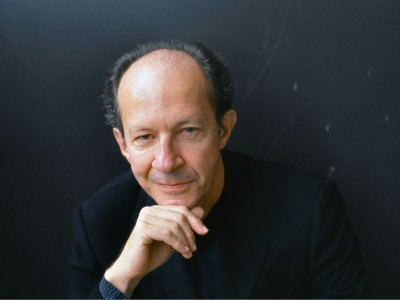 Dans “Stato di eccezione” (Bollati Boringhieri, Turin, 2003), Giorgio Agamben souligne d’emblée que les démocraties en général, celles que l’on considère comme étant de “bonne gouvernance” dans le langage des pontes du “politiquement correct”, gouvernent très souvent par le truchement de “pleins pouvoirs”, accordant à l’exécutif la possibilité, euphémiquement posée comme “exceptionnelle”, de réglementer totalement la vie politique d’un pays, de se doter d’un arsenal législatif très ample, surtout quand ces “pleins pouvoirs” permettent de modifier ou d’abroger des lois en vigueur. Agamben se réfère à H. Tingsten et à son livre “Les pleins pouvoirs. L’expansion de pouvoirs gouvernementaux pendant et après la Grande Guerre” (Stock, Paris, 1934). L’exercice sans mesure de “pleins pouvoirs” a éliminé le mode de fonctionnement démocratique, y compris dans les “démocraties” qui se revendiquent comme telles. Tingsten, et à sa suite, Agamben, rappellent que Poincaré émet le 2 août 1914 un décret mettant l’ensemble du territoire français en état de siège, décret coulé en loi deux jours plus tard. Cet état de siège durera jusqu’au 12 octobre 1919, nonobstant le fait que les activités du Parlement aient repris leur cours normal en janvier 1915. Le pouvoir législatif français de 1914 a ainsi délégué une bonne partie de ses prérogatives et compétences à l’exécutif, ce qu’illustre de manière encore plus patente le vote du 10 février 1918 qui accorde au gouvernement des pouvoirs absolus: il pouvait dorénavant réglementer par décrets la production et le commerce des denrées alimentaires. L’exécutif devient ainsi le législatif, ce qui constitue une entorse flagrante au principe de la séparation des pouvoirs, théorisé au 18ème siècle par Montesquieu, un principe qui doit être, de nos jours, l’indice, pour les tenants du “politiquement correct”, d’une “bonne gouvernance”, du moins en théorie, car les représentants du “politiquement correct” ne sont pas prêts à laisser des libertés parlementaires à ceux qui pourraient contredire, même partiellement, leurs dogmes et leurs lubies. La fin des hostilités, le 11 novembre 1918, ne met pas un terme à ces pratiques: en 1924, le gouvernement Poincaré reçoit du Parlement les pleins pouvoirs en matières financières, suite à une crise grave qui ébranle le franc. En 1935, le gouvernement Laval énonce cinquante-cinq décrets “ayant force de loi” pour éviter la dévaluation du franc. L’opposition de gauche rejette certes ces mesures déclarées “fascistes” mais, aussitôt arrivé aux affaires par les urnes, Blum, le chef de file des gauches, recourt aux mêmes expédients: en juin 1937, il demande à son tour les pleins pouvoirs au Parlement pour sauver le franc. Les mesures d’exception, parfaitement compréhensibles en tant de guerre, ne cessent donc pas d’être appliquées, une fois la paix revenue mais, question légitime, est-ce une vraie paix? Ou est-ce la guerre qui continue par d’autres moyens? Ne vivons-nous pas, depuis août 1914, dans une ère de guerre totale et permanente, qui n’emploie pas toujours des moyens militaires pour arriver à ses fins ou porter préjudice aux ennemis? Gouverner un pays, théoriquement “démocratique”, par décrets devient donc la normalité, y compris dans les nations dites “libérales”.
Dans “Stato di eccezione” (Bollati Boringhieri, Turin, 2003), Giorgio Agamben souligne d’emblée que les démocraties en général, celles que l’on considère comme étant de “bonne gouvernance” dans le langage des pontes du “politiquement correct”, gouvernent très souvent par le truchement de “pleins pouvoirs”, accordant à l’exécutif la possibilité, euphémiquement posée comme “exceptionnelle”, de réglementer totalement la vie politique d’un pays, de se doter d’un arsenal législatif très ample, surtout quand ces “pleins pouvoirs” permettent de modifier ou d’abroger des lois en vigueur. Agamben se réfère à H. Tingsten et à son livre “Les pleins pouvoirs. L’expansion de pouvoirs gouvernementaux pendant et après la Grande Guerre” (Stock, Paris, 1934). L’exercice sans mesure de “pleins pouvoirs” a éliminé le mode de fonctionnement démocratique, y compris dans les “démocraties” qui se revendiquent comme telles. Tingsten, et à sa suite, Agamben, rappellent que Poincaré émet le 2 août 1914 un décret mettant l’ensemble du territoire français en état de siège, décret coulé en loi deux jours plus tard. Cet état de siège durera jusqu’au 12 octobre 1919, nonobstant le fait que les activités du Parlement aient repris leur cours normal en janvier 1915. Le pouvoir législatif français de 1914 a ainsi délégué une bonne partie de ses prérogatives et compétences à l’exécutif, ce qu’illustre de manière encore plus patente le vote du 10 février 1918 qui accorde au gouvernement des pouvoirs absolus: il pouvait dorénavant réglementer par décrets la production et le commerce des denrées alimentaires. L’exécutif devient ainsi le législatif, ce qui constitue une entorse flagrante au principe de la séparation des pouvoirs, théorisé au 18ème siècle par Montesquieu, un principe qui doit être, de nos jours, l’indice, pour les tenants du “politiquement correct”, d’une “bonne gouvernance”, du moins en théorie, car les représentants du “politiquement correct” ne sont pas prêts à laisser des libertés parlementaires à ceux qui pourraient contredire, même partiellement, leurs dogmes et leurs lubies. La fin des hostilités, le 11 novembre 1918, ne met pas un terme à ces pratiques: en 1924, le gouvernement Poincaré reçoit du Parlement les pleins pouvoirs en matières financières, suite à une crise grave qui ébranle le franc. En 1935, le gouvernement Laval énonce cinquante-cinq décrets “ayant force de loi” pour éviter la dévaluation du franc. L’opposition de gauche rejette certes ces mesures déclarées “fascistes” mais, aussitôt arrivé aux affaires par les urnes, Blum, le chef de file des gauches, recourt aux mêmes expédients: en juin 1937, il demande à son tour les pleins pouvoirs au Parlement pour sauver le franc. Les mesures d’exception, parfaitement compréhensibles en tant de guerre, ne cessent donc pas d’être appliquées, une fois la paix revenue mais, question légitime, est-ce une vraie paix? Ou est-ce la guerre qui continue par d’autres moyens? Ne vivons-nous pas, depuis août 1914, dans une ère de guerre totale et permanente, qui n’emploie pas toujours des moyens militaires pour arriver à ses fins ou porter préjudice aux ennemis? Gouverner un pays, théoriquement “démocratique”, par décrets devient donc la normalité, y compris dans les nations dites “libérales”.
L’Angleterre, modèle de démocratie pour Belien, n’échappe pas à la règle: le 4 août 1914, le “Defence of Realm Act”, en abrégé “DORA”, donne au gouvernement des pouvoirs très étendus pour réglementer la production de guerre et pour suspendre les droits civils (les tribunaux militaires peuvent désormais juger des civils, ce qui est une pratique contraire aux lois coutumières du Royaume-Uni, celles découlant de la jurisprudence relative à la “martial law” et aux “Mutiny Acts”). Le DORA permettra ainsi la répression en Irlande et l’exécution de seize révoltés des Pâques 1916. Après la Grande Guerre, le Parlement consent à accorder au gouvernement l’ “Emergency Powers Act”, le 29 octobre 1920, pour faire face à de graves troubles sociaux. Cet “Act” prévoyait aussi l’installation de “Courts of summary jurisdiction” pour tous ceux qui transgressaient l’ordre de ne pas entraver la distribution de vivres, d’eau ou de carburant.
Résistances américaines au faux démocratisme de Wilson: le combat de Gerorge Norris et de Robert M. LaFollette
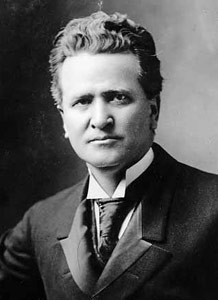 La résistance aux “pouvoirs spéciaux” votés en temps de guerre est particulièrement intéressante à observer dans l’histoire politique américaine. Toute une phalange de sénateurs et d’hommes politiques, essentiellement issus du Middle West et de Californie, se dresseront contre les manoeuvres du pouvoir central (“fédéral”), au point de recevoir l’appellation d’“insurgents” par leurs adversaires “wilsoniens”. Parmi eux, le Sénateur George Norris, qui fustigeait “les banquiers de Wall Street, assis derrière leurs bureaux en acajou et calculant comment convertir les misères de la guerre en or pour remplir leurs sales poches”. Pour Norris, il était désormais impossible de réconcilier les valeurs traditionnelles de la République américaine avec l’aventurisme militaire et son corollaire, la centralisation et la corruption du pouvoir gouvernemental”. Cette résistance, qui s’enracinait dans une fronde paysanne antérieure à 1914, craignait par dessus tout l’émergence d’une élite militaire et professionnelle qui ne devrait plus rendre de comptes au contrôle démocratique. De même, les “insurgents” tels Robert M. LaFollette (photo) et George Norris, interviennent au Congrès pour empêcher le vote de la motion Lansing (août 1915), visant à autoriser des prêts à la Grande-Bretagne et à la France, sous prétexte qu’il s’agissait de “parier unilatéralement sur la victoire de l’Entente”, ce qui risquait d’entraîner les Etats-Unis dans la guerre et “de sacrifier des vies humaines pour des bénéfices privés” sous la forme de contrats juteux. En 1916, LaFollette veut que les livraisons d’armes et de munitions aux belligérants soient définitivement interrompues: face à cette requête, le Président Wilson estime que les affaires étrangères relèvent d’une prérogative exclusive de l’Exécutif, indépendamment de tout apport parlementaire. Wilson estimait que les traditions parlementaires devaient céder le pas face à son grand projet de bâtir une “paix universelle” dès la fin des hostilités. LaFollette, pour sa part, pensait qu’un contrôle démocratique de la politique étrangère, telle qu’elle était menée par la Présidence, constituait une garantie de maintenir un maximum de paix dans le monde. Mieux: la non intervention des Etats-Unis dans la guerre aurait permis, pensait LaFollette, de maintenir, dans la société américaine, le monde paysan et honnête —la saine ruralité du Wisconsin— qu’il avait cherché à préserver dans ses combats d’avant la conflagration de 1914.
La résistance aux “pouvoirs spéciaux” votés en temps de guerre est particulièrement intéressante à observer dans l’histoire politique américaine. Toute une phalange de sénateurs et d’hommes politiques, essentiellement issus du Middle West et de Californie, se dresseront contre les manoeuvres du pouvoir central (“fédéral”), au point de recevoir l’appellation d’“insurgents” par leurs adversaires “wilsoniens”. Parmi eux, le Sénateur George Norris, qui fustigeait “les banquiers de Wall Street, assis derrière leurs bureaux en acajou et calculant comment convertir les misères de la guerre en or pour remplir leurs sales poches”. Pour Norris, il était désormais impossible de réconcilier les valeurs traditionnelles de la République américaine avec l’aventurisme militaire et son corollaire, la centralisation et la corruption du pouvoir gouvernemental”. Cette résistance, qui s’enracinait dans une fronde paysanne antérieure à 1914, craignait par dessus tout l’émergence d’une élite militaire et professionnelle qui ne devrait plus rendre de comptes au contrôle démocratique. De même, les “insurgents” tels Robert M. LaFollette (photo) et George Norris, interviennent au Congrès pour empêcher le vote de la motion Lansing (août 1915), visant à autoriser des prêts à la Grande-Bretagne et à la France, sous prétexte qu’il s’agissait de “parier unilatéralement sur la victoire de l’Entente”, ce qui risquait d’entraîner les Etats-Unis dans la guerre et “de sacrifier des vies humaines pour des bénéfices privés” sous la forme de contrats juteux. En 1916, LaFollette veut que les livraisons d’armes et de munitions aux belligérants soient définitivement interrompues: face à cette requête, le Président Wilson estime que les affaires étrangères relèvent d’une prérogative exclusive de l’Exécutif, indépendamment de tout apport parlementaire. Wilson estimait que les traditions parlementaires devaient céder le pas face à son grand projet de bâtir une “paix universelle” dès la fin des hostilités. LaFollette, pour sa part, pensait qu’un contrôle démocratique de la politique étrangère, telle qu’elle était menée par la Présidence, constituait une garantie de maintenir un maximum de paix dans le monde. Mieux: la non intervention des Etats-Unis dans la guerre aurait permis, pensait LaFollette, de maintenir, dans la société américaine, le monde paysan et honnête —la saine ruralité du Wisconsin— qu’il avait cherché à préserver dans ses combats d’avant la conflagration de 1914.
La “Croisade” de Wilson, “to make the world safe for democracy”, n’était pas autre chose, aux yeux de LaFollette, que le triomphe de Wall Street sur les “instincts naturels du peuple”. Hiram Johnson, Sénateur de Californie, était sur la même longueur d’ondes que son collège LaFollette du Wisconsin: “Nous ne serons plus jamais la même nation (...) Je doute fort que la République que nous avons connue dans le passé ne revienne jamais”. Johnson visait la coercition gouvernementale en marche, qui profitait de l’aubaine offerte par la guerre, la mainmise sur la vie publique des experts et des bureaux et, surtout, l’installation, dans la société américaine, d’une obsession née de la guerre, celle de l’efficacité et de l’urgence à tout prix et à tout moment. Hiram Johnson notait la croissance des pouvoirs factuels de l’administration et de l’industrie à l’abri de tout contrôle parlementaire. De même, il craignait l’extension du pouvoir exécutif aux dépens du législatif: les bureaucrates fédéraux, expliquait-il à ses électeurs, vont évoquer à tout bout de champ le besoin de sécurité pour briser les prérogatives du Congrès. La seule victoire (mitigée) qu’obtiennent toutefois les “insurgents” fut d’annuler un projet de Wilson de contrôler la distribution des journaux, en imposant une censure depuis les services postaux (ce qui a d’ailleurs été tenté en Belgique aussi, dans les années 90, pour juguler la distribution de dépliants et de revuettes émanant d’un parti considéré naguère comme challengeur de l’”Ordre de Loppem”). LaFollette essuie alors une campagne de presse virulente qui conduit une instance gouvernementale, la “Minnesota Commission of Public Safety”, à demander son expulsion du Sénat, arguant qu’il était “un professeur de déloyauté et de sédition procurant aide et facilité à nos ennemis”. On le brûle en effigie, on lui tend une corde avec noeud coulant dans les couloirs du Congrès: bref, on cherche à le briser moralement. La démarche de la “Minnesota Commission” n’aboutira pas: LaFollette sera sauvé par la signature de l’armistice du 11 novembre 1918. Il reprend aussitôt le combat contre le Traité de Versailles, où Wilson, disait-il, menait une “diplomatie personnelle” allant dans le sens des puissances impérialistes “qui avaient précipité l’Europe dans l’holocauste (des tranchées)”. LaFollette craignait aussi que l’Allemagne, réduite par les réparations à un espace de misère noire, connaîtrait tôt ou tard une révolution fatidique. Les Alliés, surtout la France, exigeaient des réparations astronomiques pour la simple et bonne raison qu’ils ne souhaitaient pas taxer leurs propres citoyens pour payer les frais de guerre. LaFollette s’est même avéré prophète: les projets de fusionner les flottes britannique et américaine au sein d’une “monster navy” destinée à protéger les investissements et les prêts accordés dans des zones “non développées”, conduiront à exploiter et à voler les peuples faibles et, par voie de conséquences, à instaurer sur la planète un état de guerre permanente (pour une étude minutieuse de cet aspect de l’histoire politique américaine, cf. David A. Horowitz, “Beyond Left & Right – Insurgency and the Establishment”, University of Illinois Press, Urbana/Chicago, 1997). Par la suite, Franklin Delano Roosevelt fera largement usage de ce type d’expédient, non démocratique, pour asseoir son pouvoir: songeons au “National Recovery Act” du 16 juin 1933, accordant au Président des pouvoirs quasi illimités pour gérer l’économie du pays.
Mussolini, Hitler et la notion d’“état d’exception permanent”
Les “démocraties” française, anglaise et américaine étaient victorieuses en 1918 et disposaient de colonies, capables de fournir aux métropoles des biens de toutes natures, matières premières comme denrées alimentaires. Mais les règles de guerre ont néanmoins été appliquées après les hostilités. Exactement comme en Italie, pays floué à Versailles malgré le sang versé, où le fascisme mussolinien avouera ne gouverner que par décrets (Mussolini: “La dictature fait en six heures ce que la démocratie fait en six ans”). Plus tard, après la parenthèse de la République de Weimar, démocratie exemplaire sur le plan théorique mais dont le fonctionnement n’a connu que des ratés, l’Allemagne adoptera, à son tour, un mode de fonctionnement fondé sur l’“Ausnahmezustand” permanent (= état d’exception), notamment sur base de théories proches de celles de Carl Schmitt, qui se bornent finalement à imiter des modèles français ou britannique, ou, pour le dire avec ironie, ... Hitler, élève de Poincaré (cf. Christoph Gusy, “Die Lehre vom Parteienstaat in der Weimarer Republik”, Nomos Verlagsgesellschaft, Baden-Baden, 1993). L’Allemagne avait toutefois l’excuse d’être un pays vaincu, ne disposant plus de colonies et obligé de payer des réparations aux montants astronomiques. Dans un tel cadre, elle était effectivement dans un “état d’exception” permanent.
Dans ce contexte affectant toutes les “démocraties” occidentales, le “coup de Loppem” s’explique mais ne s’excuse nullement sur le long terme, surtout s’il justifie des transpositions indues et une pérennisation infondée en des époques de non belligérance. Les traits autoritaires de la “gouvernance”, dans l’entre-deux-guerres, font qu’il n’existe plus, depuis lors, de démocraties pures. Immédiatement après la première guerre mondiale, il y avait parfois peu de différences entre la façon de gouverner une démocratie occidentale par décrets et “pouvoirs spéciaux” et le mode de fonctionnement d’une dictature à l’italienne ou à l’allemande, sans même mentionner les autres formes politiques autoritaires, observables en d’autres pays d’Europe pendant l’entre-deux-guerres. Il n’existe donc pas, objectivement parlant, de ligne séparant en toute netteté les démocraties rénovées à coup de décrets et les régimes plus ou moins fascistes. Cette vision d’une hypothétique séparation bien nette entre “démocraties” et “fascismes” est une lubie des bateleurs d’estrades médiatiques, clowns chargés de jeter de la poudre aux yeux des citoyens, voire “chiens de garde du système” (Serge Halimi).
Diverses voix s’élèvent contre le “coup de Loppem ”
Revenons à 1919, aux années 20, dès le lendemain du “coup de Loppem”. En marge des partis ronronnants —véritables machines tournant à vide et hostiles, par définition, à toutes formes de nouveauté et à toutes tentatives de redéfinir objectivement et positivement la politique sur le plan intellectuel— des voix diverses s’élèveront, dès le début de l’entre-deux-guerres, pour tenter de contester le nouvel agencement de l’Etat. Parmi ces voix, il faut compter:
1) Les communistes, galvanisés par les victoires de Lénine et de Trotsky, qui sentent d’instinct que le “coup de Loppem” entrave d’avance toute tentative, par un éventuel Lénine flamand ou wallon, de bouleverser le régime belge. Plusieurs artistes d’avant-garde seront au départ des compagnons de route des premiers communistes belges, pour devenir par la suite des “flamingants”, comme l’expressionniste Wies Moens et le surréaliste Marc Eemans, ou comme Paul Van Ostaijen et War Van Overstraeten. La césure entre communisme (marxiste) et nationalisme flamand n’est pas encore clairement affirmée au début des années 20. Le phénomène s’observe aussi dans d’autres pays européens.
2) Les flamingants du “Frontbeweging”, qui estiment que l’on n’a pas demandé l’avis des soldats du front, majoritairement recrutés dans les deux provinces de Flandre orientale et de Flandre occidentale, voire dans les communes rurales du Brabant et à Bruxelles (où les monuments aux morts présentent des listes aussi impressionnantes qu’en France). Un Joris van Severen ne peut pas tolérer, par exemple, que la génération du front ait été évincée du compromis et que les revendications flamandes, formulées par des soldats du contingent après trois ou quatre ans de tranchées dans les boues ouest-flamandes, n’y trouvent aucun créneau d’expression.
3) Les francophones de la “Légion Nationale”, issue elle aussi des anciens combattants et flanquée de jeunes gens venus de l’aile la plus conservatrice du parti catholique, contestent également le dispositif de Loppem, dans la mesure où il ne donne pas une voix privilégiée aux anciens combattants, aux “arditi” belges (dont Hoornaert et Poulet), désireux d’imiter leurs homologues italiens ou de faire le “coup de Fiume” perpétré par Gabriele d’Annunzio (un poète-soldat admiré par le socialiste Jules Destrée). Au sein de cette mouvance de la “Légion Nationale” d’Hoornaert et au sein de l’aile conservatrice du parti catholique, une fragmentation graduelle aura lieu: certains conservateurs resteront dans le bercail catholique (Harmel, Hommel, du Bus de Warnaffe, etc.), d’autres seront tentés par le rexisme (Pierre Daye) ou par le technocratisme de Van Zeeland (jugé idéologiquement “neutre” et plus apte pour gouverner avec les socialistes). D’autres encore demeureront fidèles à la “Légion Nationale”: celle-ci connaîtra, dès 1940, une aile majoritairement résistancialiste et une aile minoritaire collaborationniste (l’officier Henri Derriks au sein de la “Légion Wallonie”). L’historien liégeois Francis Balace est le seul résidu actuel de cet esprit, bien qu’édulcoré par l’ambiance consumériste et festiviste de notre époque; il est le fils d’un ancien “légionnaire national” et défend l’esprit de cette “Légion belge” au sein de la “Légion Wallonie” de la Wehrmacht allemande et de la Waffen SS, contre les “degrelliens”, avec l’appui zélé de son élève, l’historien Eddy De Bruyne, très productif en ces matières désormais complètement “historicisées”.
4) Parmi les opposants au système de Loppem, il faut aussi compter les nombreux non conformistes de toutes catégories, non inféodés à des organisations ou des partis, adeptes d’un joyeux anarchisme contestataire, visant par le rire et la provocation à faire la nique aux bourgeois. Ces catégories avaient été “oubliées” des historiens des idées jusqu’à la parution du livre du Prof. Jean-François Füeg, “Le Rouge et le Noir – La tribune bruxelloise non-conformiste des années 30” (Quorum, Ottignies LLN, 1995); cet ouvrage relate les aléas d’un club non politique, qui se pose comme anarchisant et anti-autoritaire et qui a animé la vie intellectuelle bruxelloise de la fin des années 20 à 1940. Cette gauche non conformiste (“orwellienne” dans le sens où l’entend aujourd’hui, en France, un Jean-Claude Michéa) connaîtra des lézardes en son sein à partir de la guerre d’Espagne, où, comme Orwell, elle déplore la répression commise par les communistes staliniens contre les gauches anarchistes et indépendantes à Barcelone. Un anti-communisme de gauche voit le jour à Bruxelles suite aux événements d’Espagne. L’artiste War Van Overstraete (son portrait d’Henry Bauchau rappelle la “patte” du vorticiste anglais Wyndham Lewis), qui est d’abord un sympathisant communiste, prend ses distances avec le “Komintern” dès l’effondrement du front de Barcelone, exactement comme le font alors Orwell ou Koestler, et retourne à ses idées originales, celles d’une “renaissance du socialisme”, qu’il avait couchées sur le papier en 1933. Un Gabriel Figeys, connu sous le pseudonyme de Miel Zankin, anarcho-communiste, soutiendra la politique royale de neutralité, énoncée en octobre 1936 par Léopold III, en dénonçant avec toute la virulence voulue “l’internationale des charognards”, puis rejoindra les rangs collaborationnistes, tandis que d’autres, tels Pierre Fontaine, auteur d’un pamphlet anti-rexiste en 1937, se retireront dans leur cabinet pendant la seconde guerre mondiale, mais réémergeront après cette deuxième grande conflagration intereuropéenne pour fonder le seul hebdomadaire de droite anti-communiste après 1945, “Europe-Magazine”. Les tribulations du “Rouge et Noir” montrent bien que les marginalisés de “gauche” comme de “droite” tournent, exclus, autour du bloc conformiste et fermé sur lui-même, le bloc de Loppem, un bloc aujourd’hui en implosion, parce qu’il n’a jamais pu ni intégrer ni assimiler les véritables porteurs de sang neuf (à part quelques opportunistes vite neutralisés à coups de “fromages” et de “prébendes”). Juste avant d’être exclu avec fracas du PCF, du temps de Georges Marchais, Roger Garaudy avait placé ses espoirs dans une alliance générale de ces marginalisés et de ces exclus pour assiéger le bastion conformiste français mitterrando-chiraquien et le faire tomber; ses voeux ne se sont pas exaucés malgré sa participation à des initiatives vite qualifiées de “rouges-brunes” par les “chiens de garde du système”, sous prétexte qu’y avait participé, plutôt de loin que de près, un vieux pitre pusillanime, cherchant à fourrer son groin partout, le néo-droitiste Alain de Benoist.
Lottizzazione, Proporz et amigocratie
Le “coup de Loppem” instaure donc ce que l’on appelle la partitocratie belge, étendue à toutes les associations, clubs, syndicats, mutuelles ou ligues formant les trois “piliers” du monde politique du royaume. Puisqu’il y a trois parties prenantes dans ce dispositif, on a coutume, dans la presse subsidiée et pondue par les “chiens de garde”, de déclarer le système “pluraliste”. Ce pluralisme est hypocrite: il y a un système en trois partis, comme le catéchisme des temps jadis nous enseignait qu’il y avait un Dieu en trois personnes. Nous avons bien plutôt la juxtaposition de trois totalitarismes qui ne sont en concurrence que pour satisfaire les apparences. En effet, au fil du temps, on s’est aperçu que ce dispositif ternaire ne tolérait plus l’autonomie des députés, se mêlait de tous les aspects de la vie privée des administrés, restreignait la liberté de travailler et de s’épanouir professionnellement, y compris au niveau académique, mettait subrepticement un terme à toutes les formes de “droit de résistance” (dont Agamben constate et déplore la disparition), procédait pour se maintenir ad vitam aeternam, par l’expédient que les Italiens nomment la “lottizzazione”, les Autrichiens le “Proporz” et les analystes flamands de la “verzuiling/pilarisation” l’“amigocratie”, soit la manie de distribuer, au pro rata des voix obtenues, les postes administratifs, des plus lucratifs aux plus modestes, dans les ministères ou dans les “para-stataux” (chemins de fer, poste, voies aériennes du temps de la SABENA, etc.) aux petits camarades du parti, souvent les lèche-cul les plus obséquieux du “chef”, à coup sûr toujours moins brillants et moins efficaces que leurs homologues qui se désintéressent des vulgarités et des intrigues politiciennes et triment dur dans la société civile laquelle ne fait pas de cadeaux.
“Come cambiare?” du Prof. Gianfranco Miglio
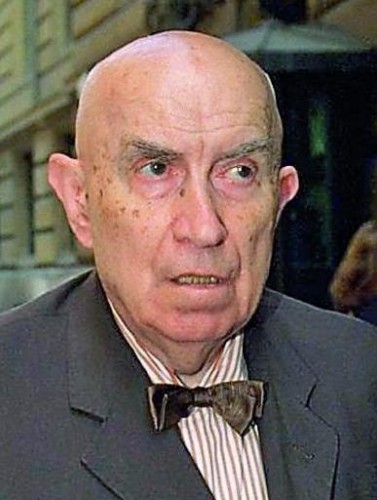 Pour résoudre ce problème de “mauvaise gouvernance”, pour éliminer ce “tonneau des Danaïdes” qui engloutit des budgets pharamineux, on ne cherchera pas, comme le pauvre Belien ou le Verhofstadt des temps jadis, des modèles en Angleterre ou aux Etats-Unis, ou en France, comme l’a tenté, avec ses “petits moyens”, le piètre vicaire campinois —à barbiche de Mennonite— du Parigot Alain de Benoist, ou aux Pays-Bas comme le voudraient quelques rescapés de l’orangisme ou même en Allemagne comme le souhaiteraient les quelques rares germanophiles subsistants en ce royaume et même en Flandre (à moins de potasser consciencieusement et d’adapter, bon an mal an, au cadre belge le contenu critique de certains ouvrages de Hans Herbert von Arnim, de Walter Lutz ou d’Erwin Scheuch, consacrés aux blocages du système, à la déperdition de la notion de liberté et aux modes de corruption). Il faut donc le répéter inlassablement: les sources d’inspiration les plus fécondes, nous les trouverons uniquement, une fois de plus, en Italie et en Autriche. L’observation minutieuse de la vie politique italienne et autrichienne s’avère dès lors un impératif pour tout observateur ou “would be” acteur du théâtre politique belge. L’Italie présente en effet le même système partitocratique corrompu que la Belgique mais les réactions contre ce déplorable état de choses sont plus virulentes et plus fines dans la péninsule que dans notre royaume d’endormis et de braves “Lamme Goedzakken” (équivalents flamands du “Deutscher Michel”). Au sein de la “Lega Nord” d’Umberto Bossi, le Prof. Gianfranco Miglio, éminent spécialiste ès-sciences politiques, de réputation mondiale, au charisme sombre et indiscutable, avait lancé le manifeste emblématique des années effervescentes de l’opération “mains propres”, vers 1992-1994, un manifeste qu’il avait intitulé “Come cambiare?” (= “Comment changer?”). Miglio énonçait les recettes politiques glanées dans tout l’héritage de la politologie italienne, de Gaetano Mosca à Vilfredo Pareto, en passant par la critique des oligarchies et des partitocraties, que l’on trouve chez le socialiste germano-italien Roberto Michels ou, plus récemment, chez le politologue américain Juan Linz, critique des démocraties dégénérées en “polyarchies pluralistes partitocratiques”. Conclusion de Miglio: l’Etat italien est inguérissable, res sic stantibus, par voie de conséquence, les provinces les plus saines, les moins gangrénées par le phénomène mafieux, doivent accéder à l’autonomie la plus large possible voire à l’indépendance, quitte à créer un nouvel Etat fédéral largement décentralisé, avec un Nord, un Centre, un Sud et des Iles (Sardaigne, Sicile) autonomes. Un discours que Belien, et ses amis du “mouvement flamand”, auraient très bien pu avaler comme un succulent nectar!
Pour résoudre ce problème de “mauvaise gouvernance”, pour éliminer ce “tonneau des Danaïdes” qui engloutit des budgets pharamineux, on ne cherchera pas, comme le pauvre Belien ou le Verhofstadt des temps jadis, des modèles en Angleterre ou aux Etats-Unis, ou en France, comme l’a tenté, avec ses “petits moyens”, le piètre vicaire campinois —à barbiche de Mennonite— du Parigot Alain de Benoist, ou aux Pays-Bas comme le voudraient quelques rescapés de l’orangisme ou même en Allemagne comme le souhaiteraient les quelques rares germanophiles subsistants en ce royaume et même en Flandre (à moins de potasser consciencieusement et d’adapter, bon an mal an, au cadre belge le contenu critique de certains ouvrages de Hans Herbert von Arnim, de Walter Lutz ou d’Erwin Scheuch, consacrés aux blocages du système, à la déperdition de la notion de liberté et aux modes de corruption). Il faut donc le répéter inlassablement: les sources d’inspiration les plus fécondes, nous les trouverons uniquement, une fois de plus, en Italie et en Autriche. L’observation minutieuse de la vie politique italienne et autrichienne s’avère dès lors un impératif pour tout observateur ou “would be” acteur du théâtre politique belge. L’Italie présente en effet le même système partitocratique corrompu que la Belgique mais les réactions contre ce déplorable état de choses sont plus virulentes et plus fines dans la péninsule que dans notre royaume d’endormis et de braves “Lamme Goedzakken” (équivalents flamands du “Deutscher Michel”). Au sein de la “Lega Nord” d’Umberto Bossi, le Prof. Gianfranco Miglio, éminent spécialiste ès-sciences politiques, de réputation mondiale, au charisme sombre et indiscutable, avait lancé le manifeste emblématique des années effervescentes de l’opération “mains propres”, vers 1992-1994, un manifeste qu’il avait intitulé “Come cambiare?” (= “Comment changer?”). Miglio énonçait les recettes politiques glanées dans tout l’héritage de la politologie italienne, de Gaetano Mosca à Vilfredo Pareto, en passant par la critique des oligarchies et des partitocraties, que l’on trouve chez le socialiste germano-italien Roberto Michels ou, plus récemment, chez le politologue américain Juan Linz, critique des démocraties dégénérées en “polyarchies pluralistes partitocratiques”. Conclusion de Miglio: l’Etat italien est inguérissable, res sic stantibus, par voie de conséquence, les provinces les plus saines, les moins gangrénées par le phénomène mafieux, doivent accéder à l’autonomie la plus large possible voire à l’indépendance, quitte à créer un nouvel Etat fédéral largement décentralisé, avec un Nord, un Centre, un Sud et des Iles (Sardaigne, Sicile) autonomes. Un discours que Belien, et ses amis du “mouvement flamand”, auraient très bien pu avaler comme un succulent nectar!
“Come resistere?” d’Oliveiro Beha
Plus tard, quand le “berlusconisme” et les compromis à la Fini font basculer l’Italie dans un nouveau marais putride, le journaliste Oliveiro Beha (né en 1949) se lance à l’assaut “d’un pays qui coule sous les coups d’une classe dirigeante toujours plus prodigue de mauvais exemples, qui entre dans un désert axiologique; le pouvoir italien est désormais barricadé dans une ‘Résidence’ privée de culture et qui efface la réalité pour la remplacer par sa propre représentation télévisuelle; l’Italie mafieuse d’aujourd’hui est une Italie qui a largement dépassé celle des mafias traditionnelles dans la manière d’articuler ses intérêts et ses comportements”. Beha propose dans ses livres, dans ses articles et dans ses émissions radiophoniques et télévisées (“Radio Zorro”, “Va’ pensiero”) de mettre bas “une société en pièces”, d’organiser “une nouvelle résistance”. Beha paiera le prix: éloigné de la RAI au temps d’un pouvoir de centre-gauche, il y revient en 1998 pour en être à nouveau chassé en 2004, sous un gouvernement de centre-droit. Finalement, il enseigne la sociologie des processus culturels et communicatifs à l’Université de Rome-La Sapienza. Citation: “La mafia a mafiaïsé l’Italie: tous peuvent le constater dans leur propre vie quotidienne s’ils ont le courage et le tonus intellectuels pour garder les yeux ouverts. Cette Italie mafiaïsée, naturellement, est celle de la nomenklatura ou, mieux, des nomenklaturas... Soit un pays qui s’est adonné à la fabrication d’une sorte de ‘welfare mafieux’, tout en le consolidant sans cesse, c’est-à-dire à la constitution d’un Etat social miné en permanence par la soumission de tous au clientélisme politique...”. Les termes qu’emploie Beha pour fustiger le marais politicien italien peuvent parfaitement convenir à la situation belge (cf. son anthologie d’articles intitulée “Come resistere nella palude di Italiopoli”, Chiarelettere editore, Milano, 2007; préface de Beppe Grillo!).
Le cas autrichien
En Autriche, pays avec lequel nous partageons un passé commun, celui du 18ème siècle, règnaient à peu près les mêmes “piliers” qu’en Belgique. Les libéraux, les “Bleus”, avaient été marginalisés et ne servaient que d’appendices mineurs aux coalitions, tantôt dominées par les socialistes de la SPÖ, tantôt par les conservateurs chrétiens de l’ÖVP. Sous l’impulsion de Jörg Haider qui a nettoyé le parti des vieux caciques issus de la NSDAP et soucieux de gouverner en permanence avec les socialistes (!), les libéraux —soit le “tiers parti” ou le “troisième camp” (Dritter Lager)— lancent des campagnes anti-partitocratiques, anti-Proporz (cf. supra), anti-corruption, sur base d’un programme-manifeste de 414 articles d’une précision ahurissante (!) et d’un livre-bréviaire, rédigé en bonne partie par le député européen actuel de la FPÖ, Andreas Mölzer, et intitulé “Die Freiheit, die ich meine” (= “La liberté, telle que je la conçois”). Le parti libéral, la FPÖ, retourne ainsi au peuple, aux bases populaires déçues par la corruption: de libéral, il devient populiste et national. On traduit erronément “freiheitlich” par “libéral”: le terme “freiheitlich” insiste sur les libertés individuelles et collectives et ne se réfère pas uniquement à une doctrine économique et sociale qui ne génére, en bout de course, que la déliquescence inexorable des polities. La notion de liberté que la “Freiheitlichkeit” véhicule est une notion de liberté ordonnée qui cherche en permanence à s’émanciper des dogmes politiques (et religieux) qui transforment les citoyens en moutons de Panurge, en réceptacles de péroraisons vides de sens et purement manipulatrices et annihilent, ipso facto, leur qualité de “zoon politikon” (car la liberté, la seule liberté digne de ce nom qui soit, c’est celle de pouvoir être pleinement un “zoon politikon”). La FPÖ doit ses succès électoraux à sa lutte contre le “Proporz”, terme autrichien désignant notre “amigocratie”, à laquelle nos libéraux n’échappaient pas, à rebours de leurs discours (creux) sur les libertés quand ils fustigeaient en apparence les socialistes ou les démocrates-chrétiens, pour aller s’allier avec eux, dès le lendemain des élections. Il suffit de lire les pages savoureuses qu’a écrites Derk-Jan Eppink, un journaliste néerlandais en poste à Bruxelles, sur sa visite au libéral ost-flamand Herman Decroo, le père d’Alexander, dont la villa riante et cossue abrite des caves imposantes où trônent tous les dossiers “amigocratiques”, en souffrance... Bref: un “libéralisme” tel que Haider ne le concevait pas...
De la guerre contre l’ennemi à la guerre contre le peuple
Dans une partitocratie “amigocratique”, les principes de base de la démocratie représentative sont minés, plus encore qu’après la cascade de “lois d’exception” votées à la hâte, en temps de guerre comme en temps de paix pour faire face à des aléas fâcheux (cf. supra, nos réflexions sur un livre d’Agamben). Si les principes valides en cas de situation exceptionnelle (guerre, catastrophe, etc.) sont pérennisés quand bien même la situation normale est rétablie depuis plusieurs années, voire plusieurs décennies, cela signifie qu’après avoir mobilisé le peuple pour faire la guerre, le système, après les temps cruels du conflit, entre, dès le retour à la paix, en guerre permanente contre ses propres anciens soldats et contre leurs familles (leurs descendants), exactement comme le système de Metternich refusait d’accorder la représentation aux soldats levés en Prusse et ailleurs pour éliminer le danger napoléonien. Les revendications populaires au début du 19ème siècle étaient décrétés “jacobines” par les tenants du système Metternich, donc liées mentalement à l’ennemi vaincu; aujourd’hui, elles sont décrétées “populistes”, et le populisme est assimilé au “fascisme” ou au “nazisme”, donc également à un ennemi vaincu, de surcroît totalement diabolisé par le gigantesque appareil médiatique planétaire. En 1919, on élimine des sphères réelles (et légales) du pouvoir les revendications légitimes d’une bonne part de la population. Si les établis de 1919 à aujourd’hui ne sont plus les mêmes qu’hier du temps de Metternich, et si les uns et les autres diffèrent sur l’essentiel, la stratégie de ces établis actuels et passés qui consiste à bétonner des “cordons sanitaires” demeure de même nature.
Le fonctionnement pseudo-démocratique par décrets (Dehaene en était un spécialiste; il était l’homme des “pouvoirs spéciaux” pour installer son système purement “gabégique”, reposant sur les pires élucubrations idéologiques nées du rejet de toutes les attitudes de bienséance et, par conséquence, de toute éthique du devoir et de l’action, théorisée par Kant, Blondel et Mercier); ensuite, l’entêtement à vouloir ériger des “cordons sanitaires” (contre le Vlaams Blok/Belang, la NVA ou le PTB) ne correspondent nullement aux idéaux démocratiques de Montesquieu, dont le principe cardinal est la fameuse “séparation des pouvoirs” (législatif, exécutif et judiciaire). On vient de voir, avec Agamben, que l’exécutif s’est progressivement superposé au législatif depuis la première guerre mondiale; les ministres étant généralement les présidents ou les pontes dominants des partis politiques, le législatif n’ose plus aller à l’encontre de leur desiderata; pire, les magistrats sont nommés, comme tous les autres fonctionnaires, au pro rata des voix obtenues par leur parti, tant et si bien que l’indépendance de la magistrature, donc du pouvoir judiciaire, n’est plus qu’un souvenir, qu’une rêvasserie nostalgique des vieux libéraux qui croient encore —ou veulent encore croire— à la nature démocratique du système dans lequel ils vivent. Les députés doivent suivre les ukases des dirigeants de leur parti, faute de quoi ils ne seront plus placés en ordre utile sur les listes électorales ou seront réduits au silence. Les parlements ne sont plus constitués de tribuns populaires mais de “yesmen”, des hommes lavettes qui n’ont pas le courage de défendre leurs électeurs.
Tocqueville et le “spoil system”
Tocqueville, autre figure de proue de l’idéal démocratique et libéral, avait observé le fonctionnement de la démocratie nord-américaine, lors de son long voyage d’exploration aux Etats-Unis. Cette démocratie, plus étendue au sein de la population qu’en Europe, était marquée par le “lobbying” et les “caucuses”, par une démagogie, qui l’étonnait et l’inquiétait et par une véritable folie de vouloir instaurer l’égalité de tous, envers et contre tout. Cette rage de vouloir tout “égaliser” allait à l’encontre du principe de liberté: en effet, l’égalité, qui n’est pas l’équité, ne tolère pas d’exceptions, même si ces exceptions permettent d’ouvrir de la nouveauté, d’élargir les horizons, de prévoir sur le long terme. A cet état de choses, qui n’a pas beaucoup changé aujourd’hui, s’ajoute toutefois l’intrusion des médias qui biaisent les décisions des simples aux raisonnements bancals (et ces “simples” représentent plus de 95% de la population, intellectuels et techniciens compris): des “récits” sont produits par des professionnels de l’agitprop, de la persuasion (publicitaire et/ou clandestine; cf. l’oeuvre de Vance Packard), qui vicient automatiquement les jugements de nos contemporains. En effet, on constate qu’aux Etats-Unis, les partis politiques nouveaux et challengeurs ne parviennent jamais à démarrer, à se créer des niches durables dans l’électorat ni au sein des états ni au sein de l’Union. Les Etats-Unis sont marqués par une bipolarisation permanente autour des partis républicain et démocrate, autour des “éléphants” et des “ânes”. Le dernier sursaut intéressant date, à mes yeux, des années 20 du 20ème siècle, quand le père Robert LaFolette Senior et les fils Robert Junior et Philipp M. LaFolette ont mobilisé de larges strates de la population autour de thèmes que l’on qualifierait aujourd’hui de “populistes” (avec toute la charge péjorative que ce terme recouvre désormais...). L’aventure “populiste” de Robert M. LaFolette père commence avant la première guerre mondiale, dans le Wisconsin agraire: il y défend les producteurs agricoles, fond sain du peuple américain. Après 1918, il lutte contre l’extension inquiétante du pouvoir exécutif aux dépens du législatif: au sein du mouvement des “Non partisans” et des “Progressives”, ils lutteront contre le “wilsonisme”, contre l’emprise des banques, contre le “New Deal” de Roosevelt et contre le bellicisme de ce dernier. Si les Etats-Unis comptent encore des centaines de clubs, associations, revues qui ne partagent pas les positions du gouvernement central (“fédéral”) et développent une culture politique contestatrice très riche sur le plan intellectuel, cette richesse ne parvient pas à franchir la ligne qui sépare l’aire où peuple réel est tenu isolé, aire dont ces clubs sont l’expression, et le domaine fermé du pouvoir qui vicie les esprits par sa propagande médiatique. La rationalité potentielle du “zoon politikon” américain (et occidental) est noyée dans une soupe idéologique faite de slogans forts, qui oblitèrent chez l’électeur toute réaction utile. La démocratie américaine se révèle un leurre quand on sait qu’aux dernières élections présidentielles, par exemple, le candidat démocrate Obama a reçu trois fois plus d’argent que tous les autres candidats réunis, on en conclut bien logiquement que les instances (plus ou moins cachées) qui tiennent les véritables rênes du pouvoir souhaitent désormais des mandats présidentiels de huit années, au moment même où la France passe du septennat au quinquennat, se privant ainsi d’une continuité politique nécessaire, au nom d’une réduction du pouvoir présidentiel (gaullien, donc haï à Londres et à Washington), réduction perpétrée, bien évidemment, au nom d’un (faux) “idéal démocratique”. La puissance hégémonique veut garder pour elle l’arme de la continuité politique et laisser aux “alien audiences”, fussent-elles théoriquement “alliées”, le handicap des mandats courts, plongeant ces puissances subalternes dans la discontinuité politique, donc dans l’incohérence diplomatique et stratégique (Bonjour, Sun Tzu!).
Max Weber, le fonctionnariat à la prussienne et l’Obrigkeitstaat
Max Weber est un philosophe et un sociologue incontournable pour qui veut étudier le fonctionnement du politique, mais aussi un philosophe-sociologue que l’on commence curieusement à négliger (au profit de banalités statistiques) dans les programmes universitaires de sciences politiques en ce pays. Le travail de Raymond Aron, intitulé “Les grands courants de la sociologie contemporaines”, avec son chapitre substantiel sur Weber, n’est plus potassé dans les établissements où l’on enseigne les sciences politiques... L’oeuvre de Max Weber s’enracine dans la tradition prussienne et luthérienne pour laquelle un Etat doit avoir pour épine dorsale un fonctionnariat pur, éloigné de toute corruption, animé par le sens du service, recruté par des établissements d’enseignement se plaçant au-dessus de la mêlée politicienne et, même, cultivant un certain mépris pour le gent politicienne. Pour Weber, tout fonctionnaire doit être totalement indépendant des partis. Les fonctionnaires forment une caste efficace et nécessaire, à côté de l’armée et de la noblesse terrienne; ensemble, ces trois piliers structurent l’Obrigkeitstaat, le noyau dur et intangible de l’Etat, lequel est toutefois flanqué d’un parlement qui vote les budgets et gère les affaires économiques et sociales. La “sanctuarisation” du fonctionnariat, de l’armée et de la noblesse (soit la cohésion des terres collectives, arables et consacrées à la sylviculture) s’avère nécessaire pour la bonne marche de l’appareil étatique, de type “Obrigkeitstaat”, mis en place par le génie politique de Bismarck. L’Obrigkeitstaat n’exclut pas le fonctionnement d’une démocratie parlementaire mais celle-ci demeure encadrée, en “haut”, par les structures stabilisantes que sont la vieille noblesse terrienne, le paysannat libre (qui en est l’échelon le plus bas, la réserve où se recruteront les futurs “aristocrates”), l’armée (dont le recrutement de base était essentiellement “paysan”), la diplomatie et le fonctionnariat (non issu des partis). Structures auxquelles on pourrait ajouter les “ordres”, comme l’Ordre des médecins, des pharmaciens, des architectes, etc. et, bien sûr, les universités (que le système Metternich excluait de toute décision ou même de toute consultation).
Les partis, pour Weber comme pour Tocqueville, risquent à tout moment de basculer dans le “spoil system” à l’américaine, à la différence toutefois, qu’aux Etats-Unis, il faut l’avouer, les collaborateurs payés des ministres ou des parlementaires et sénateurs, sont renvoyés à la “vie civile” si leur parti, démocrate ou républicain, perd les élections. Le phénomène des “cabinettards”, typique des partitocraties belge et italienne, n’existe pas Outre-Atlantique. Ces “cabinettards” sont en place pendant une législature, deux si leur “patron” est réélu, mais en cas d’échec électoral, ils sont renvoyés dans la société, à proximité de leurs militants et électeurs, plongés dans leurs soucis quotidiennes, dans leurs souffrances réelles et tangibles. Dans “Politik als Beruf” (en français: “Le savant et la politique”), Max Weber dénonce, de manière virulente, la pratique de la “Proporzionalität” en Pays de Bade (d’où le terme péjoratif de “Proporz” dans le vocabulaire offensif de Jörg Haider au temps de la marche en avant de la FPÖ autrichienne). Dans ce duché de l’Allemagne du Sud, très tôt “démocratisé”, comme on vient de le voir (cf. supra), le “Zentrum” catholique, proche à certains égards du démagogisme démocrate-chrétien et précurseur d’un Dehaene, avait exigé la distribution des emplois de fonctionnaires au pro rata des voix obtenues, sans qu’il n’ait été exigé de ces candidats à la fonction publique des compétences dûment attestées. La voie était ouverte à tous les abus: on l’a constaté en Belgique, en Autriche, en Italie, en Espagne... Le Zentrum de Bade prétendait pouvoir agir de la sorte parce que les socialistes tentaient d’en faire autant... C’est là un prélude aux dualismes socialistes/démocrates-chrétiens qui ont marqué la vie politique de bon nombre de pays européens au 20ème siècle et où la chasse aux prébendes était perpétuellement ouverte et bien juteuse. Le “Mouvement flamand”, avec Lucien Jottrand (Wallon comme son nom l’indique...), s’opposait en ce sens à l’unionisme (alliance des Libéraux et des Catholiques dans la Belgique d’avant 1885, date qui marque l’arrivée dans la course des socialistes) car l’unionisme figeait le phénomène naturel qu’est la circulation des élites, nécessité vitale pour toute politie vigoureuse, comme l’ont démontré Gaetano Mosca et Vilfredo Pareto. Jottrand plaidait pour le suffrage universel car il croyait briser ce dualisme, cette dualité binômique répétitive et bétonnante: en bout de course, ce suffrage universel, tant espéré, en a généré une autre, qui n’est peut-être plus binômique (trinômique?) mais qui demeure quasi inamovible et “in-réformable”.
Marco Minghetti et les tares de la partitocratie
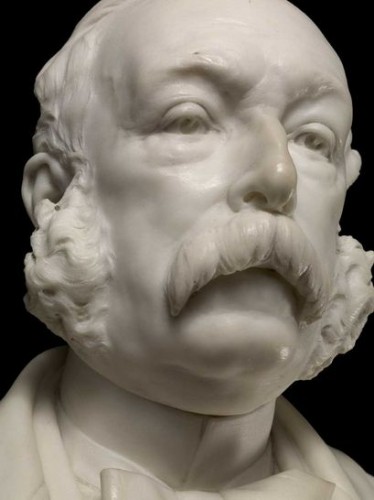 Le ministre italien Marco Minghetti, à la fin du 19ème siècle, dans les premières décennies de l’Italie unifiée par Cavour et Garibaldi, voyait dans le développement précoce de la partitocratie italienne, un triple danger: 1) pour la justice, car toute partitocratie tend à effacer la séparation des pouvoirs en installant ses sbires dans la sphère judiciaire, 2) pour l’administration, car la partitocratie force celle-ci à engager des fonctionnaires inefficaces, dont le seul atout est de disposer d’une “carte d’affiliation”; 3) pour l’indépendance de la représentation populaire, car les députés sont inféodés à des machines qui cherchent toujours le plus petit commun dénominateur commun, ne tolèrent aucune originalité personnelle, et obligent les représentants du peuple à s’aligner sur les ukases de la “centrale”, en dépit des nécessités pratiques qui ont poussé les électeurs d’une circonscription donnée à voter pour telle ou telle personnalité, bien branchée sur des problèmes locaux, intransposables dans d’autres circonscriptions, où leurs solutions pourraient s’avérer impopulaires. Ces “personnalités”, freinées par la hiérarchie de leur parti, ne pourront pas, dès lors, oeuvrer de manière optimale pour le bien de leurs électeurs: le lien affectif entre élus et électeurs est dès lors dangereusement biaisé. Pour Minghetti, toute partitocratie présente quatre “tares”:
Le ministre italien Marco Minghetti, à la fin du 19ème siècle, dans les premières décennies de l’Italie unifiée par Cavour et Garibaldi, voyait dans le développement précoce de la partitocratie italienne, un triple danger: 1) pour la justice, car toute partitocratie tend à effacer la séparation des pouvoirs en installant ses sbires dans la sphère judiciaire, 2) pour l’administration, car la partitocratie force celle-ci à engager des fonctionnaires inefficaces, dont le seul atout est de disposer d’une “carte d’affiliation”; 3) pour l’indépendance de la représentation populaire, car les députés sont inféodés à des machines qui cherchent toujours le plus petit commun dénominateur commun, ne tolèrent aucune originalité personnelle, et obligent les représentants du peuple à s’aligner sur les ukases de la “centrale”, en dépit des nécessités pratiques qui ont poussé les électeurs d’une circonscription donnée à voter pour telle ou telle personnalité, bien branchée sur des problèmes locaux, intransposables dans d’autres circonscriptions, où leurs solutions pourraient s’avérer impopulaires. Ces “personnalités”, freinées par la hiérarchie de leur parti, ne pourront pas, dès lors, oeuvrer de manière optimale pour le bien de leurs électeurs: le lien affectif entre élus et électeurs est dès lors dangereusement biaisé. Pour Minghetti, toute partitocratie présente quatre “tares”:
1) Elle chasse les personnalités compétentes hors de l’administration des choses publiques;
2) elle génère trop de juristes que l’on case dans les rouages de l’Etat, contribuant de la sorte à “formaliser” à l’extrême les rapports entre citoyens et entre ceux-ci et l’administration, sans qu’il n’y ait plus “ouverture” à des problématiques plus complexes, non prévues par les codes, ou à de l’innovation qui bouleverse les donnes en place. Dans la sphère du droit, la pléthore envahissante de juristes, qui ne sont pas tous bien formés ni cultivés comme il le faudrait, provoque une avalanche de “jugements posés mécaniquement”. Minghetti a prévu, dès la fin du 19ème siècle, ce qu’a constaté en Belgique, il y a une quinzaine d’années, le Recteur François Ost, des Facultés Universitaires Saint-Louis de Bruxelles: l’absence de plus en plus évidente de culture littéraire, historique et philosophique chez les jeunes juristes des années 60, 70 et 80, produits en masse par les établissements d’enseignement, génère dans la pratique quotidienne un droit abstrait et abscons, éloigné du réel, qui, ajouterions-nous, suscite méfiance et dégoût pour la justice dans la population, ce qui conduit à une situation malsaine. La réponse à ce problème, de plus en plus patent, est la reconstitution des tribunaux prudhommiques, constitués d’hommes branchés réellement sur les problèmes générés par les litiges, et le retour, à l’école secondaire, du grec et du latin, des “humanités” au sens renaissanciste du terme voire au sens où l’entendait les “tacitistes” autour de Juste Lipse et de ses disciples espagnols, d’une culture philosophique qui n’oublierait ni Platon ni Aristote; comment peut-on devenir un bon juriste sans avoir été frottés à cet arsenal classique?
3) Elle introduit le syndicalisme, légitime et nécessaire dans la sphère privé, dans le fonctionnariat administratif, ce qui permet de bloquer toute réforme qui égratignerait les avantages réels ou imaginaires des fonctionnaires; par la syndicalisation du fonctionnariat, aucun Etat n’est plus ni améliorable ni viable;
4) elle ruine l’indépendance de la magistrature; nous l’avons déjà évoqué.
L’oeuvre de Moisei Ostrogorski
De Minghetti à Roberto Michels et à bien d’autres critiques sérieux des dysfonctionnements propres aux partitocraties, la nature durable, l’inscription dans la durée des partis est en fait ce qui pose problème. Le hiatus n’est pas la constitution en soi de partis, créés par des citoyens soucieux de faire valoir leurs droits ou leurs revendications, c’est la transformation, au fil du temps, des partis en de sortes de nouvelles églises qui vicient, par leur poids, le fonctionnement optimal de l’Etat démocratique. Moshe (ou: Moisei) Ostrogorski (1854-1919), qui avait été actif dans le parti libéral des “Cadets” dans les dernières années de paix du tsarisme (avant la catastrophe d’août 1914), est sans nul doute l’auteur, le politologue, qui a le plus réfléchi à la nuisance pour la démocratie que représentent des partis qui s’inscrivent trop longtemps dans la durée. Outre son action sur la scène politique russe, Ostrogorski a étudié en France et aux Etats-Unis. Dans son maître-ouvrage, “La démocratie et les partis politiques” (Esprit de la Cité/Fayard, 1993), Ostrogorski démontre que l’extension dans le temps de l’existence de partis politiques au sein d’un Etat démocratique génère des effets pervers fort préoccupants: manipulations de l’opinion (renforcée dès les années 20 par l’avènement des mass médias radiophoniques et, quatre décennies plus tard, télévisuels), corruptions en tous genres, déresponsabilisation des citoyens, appauvrissement du débat public. Pour Ostrogorski, les partis sont donc tout à la fois indispensables et préjudiciables à la vie démocratique d’une nation. Poursuivant son raisonnement, Ostrogorski, cet ancien activiste du parti des “Cadets” en Russie tsariste, admet la nécessité démocratique des partis mais conteste leur permanence sur le long terme. Il prône un système démocratique reposant non pas sur des partis permanents, qui dureraient des décennies voire un siècle entier ou plus, mais sur des “ligues” ou des partis “ad-hoc”, créés pour des motifs concrets par des citoyens se mobilisant pour faire valoir des revendications précises mais que l’on dissoudrait immédiatement après le triomphe de ces revendications, après l’institutionalisation de leurs solutions dans la vie de la Cité. Les mécanismes de cette création à intervalles réguliers de partis —et de la dissolution concomitante des partis ou ligues ayant réalisé leurs projets— doivent bien entendu être déterminés par des règles constitutionnelles correctement balisées, assorties d’autres correctifs tels le référendum (comme en Suisse, ou plus récemment, suite à la crise de l’automne 2008, en Islande) ou le droit de veto des recteurs d’Université (comme en Irlande).
La permanence des partis dans des sociétés partitocratiques (et donc non démocratiques) comme la Belgique ou l’Italie ou encore, dans une moindre mesure, l’Allemagne ou l’Autriche (avant le nettoyage opéré par Haider), conduit au blocage irrémédiable de l’Etat qui chavire alors dans la corruption et l’insignifiance politique. En Turquie, quand les partis plongent l’Etat dans un stade de déliquescence dangereux pour sa survie et sa santé morale, l’armée (expression de l’“Etat profond” comme on le dit depuis l’affaire “Ergenekon”) oblige ces partis à s’auto-dissoudre pour que la société civile en refonde de nouveaux, avec des hommes neufs, quelques mois ou deux ou trois ans plus tard. Cet expédient n’est évidemment pas de mise en Europe occidentale, où l’armée ne représente pas (ou plus) l’ “Etat profond” et où, il faut bien l’avouer, il n’y a même plus quelque chose qui ressemble à un “Etat profond”, comme c’était le cas encore en France, dans les dernières années du gaullisme, après la guerre d’Algérie, mais depuis Sarközy et Hollande qui ont sabordé délibérément l’édifice gaullien, le naufrage, en France, de tout équivalent, fût-il édulcoré, de l’“Etat profond” turc est patent. Seul élément du cas turc à retenir dans notre propos: la caducité potentielle des appareils partisans; de ce fait, heureusement pour la santé de l’Etat turc, les partis politiques turcs ne peuvent prétendre, comme les nôtres, à cette pérennité qui leur permet de saborder continuellement le cadre étatique, auquel ils tentent de se superposer, et de ruiner la société, en réalisant des dépenses inconsidérées, résultats de leur propre démagogie. L’histoire jugera les efforts d’Erdogan pour briser les reins de l’“Etat profond” kémaliste/militaire; l’AKP parviendra-t-elle à créer un autre “Etat profond” (rénovation ou ersatz du califat abrogé en 1924?): telle est la question qu’il convient de poser.
Les critiques de Panfilo Gentile
Panfilo Gentile (1889-1971) était un observateur avisé de la politique italienne et l’héritier intellectuel de Marco Minghetti. Ce politologue a choisi la stratégie du journalisme, par volonté pédagogique, afin d’avertir, jour après jour, ses compatriotes des effets pervers d’une démocratie dévoyée en partitocratie. Ses arguments sont grosso modo ceux de l’école italienne de politologie, notamment ceux de Marco Minghetti et sans doute aussi de Moshe Ostrogorski. Il ajoute, pour l’après-guerre post-fasciste, l’effet dévastateur du “wishful thinking” où les politiciens de la partitocratie, en Italie comme en Belgique (notamment avec le plan Spitaels pour l’emploi dans la fonction publique), promettent tout ce qu’il est possible de promettre sans que les moyens matériels ne soient réellement disponibles ou ne soient disponibles que par recours à des artifices inflationnistes ou à une fiscalité trop lourde sur le long terme, etc. La partitocratie se mue dès lors en une juxtaposition parallèle de partis, en apparence concurrents, tous totalitaires dans les attitudes qu’ils prennent vis-à-vis de leurs propres mandataires et militants, des partis qui n’ont donc qu’un seul objectif, diamétralement contraire au Bien commun, celui d’amasser le maximum de privilèges et d’occuper le plus de prébendes possibles. Face à cet éventail restreint d’appareils totalitaires, encore renforcés en Belgique par le dispositif tacite mais bien réel mis en place lors du “coup de Loppem”, il n’y a pas vraiment d’opposition: les éventuels challengeurs sont vite marginalisés, financièrement mis à sec dans des délais fort brefs, ignorés des médias ou moqués par la presse aux ordres. Plus récemment, on a inventé les procès pour “racisme”...
Panfilo Gentile constate aussi dans son oeuvre que les médias du 20ème siècle, à commencer par la radio, suivie de la télévision, permettent à ceux qui les détiennent d’exclure de facto de la compétition tous les challengeurs ou de mener des campagnes féroces contre eux, sans qu’ils ne puissent se défendre, au nom, bien entendu de la “liberté de la presse”: on l’a vu pour les Etats-Unis avec les mésaventures de la famille LaFollette; on constate qu’en Angleterre, les challengeurs du binôme Labour/Tories —en perpétuelle alternance comme si c’était un perpetuum mobile— ont toujours eu bien du mal à conquérir des sièges aux Communes (à la seule exception récente des Liberal-Democrats ou, en Ecosse, du SNP); la “Special Branch” étant, elle aussi à l’instar de nos “Dupont-Dupond”, spécialisée en coups tordus, avec l’aide, notamment, de l’”Anti-Nazi League” (car il est bien entendu que tout challengeur, fût-il un hippy chevelu et tolstoïen ou un israélite inspiré par Martin Buber, devient automatiquement un “nazi”, par l’effet imparable des “simsalabims” éructés par les chiens de garde du système...), d’où l’utilité, partout en Europe, d’un anti-nazisme virulent, bien médiatisé et récompensé par de généreux subsides tirés de l’escarcelle du contribuable, alors que tous les nazis de chair et de sang sont morts et enterrés...; en Allemagne, les éléments challengeurs ne se sont jamais inscrits dans la moyenne ou la longue durée, perpétuant, dans les hémicycles officiels, une alternance lancinante avec pour seuls acteurs réels les démocrates-chrétiens et les socialistes, etc. Le système démocratique, dont le but était, au départ, de représenter l’effervescence de la vie populaire et les changements à l’oeuvre dans la société, en organisant des élections à intervalles réguliers pour exprimer ces changements constants de donne, ne joue plus ce rôle dès qu’il devient partitocratie. La partitocratie, avec ses partis figés et permanents, est donc bel et bien un déni de démocratie, car elle refuse tout changement de donne, tout défi, tous challengeurs.
En Espagne
En Espagne, Gonzalo Fernandez de la Mora, issu de la garde des “technocrates”, appelés à remplacer les “vieilles chemises” dans les dernières années du franquisme, avait été ministre des travaux publics dans les derniers gouvernements du Généralissime; fondateur de la revue “Razon Española”, il a fustigé sans relâche l’installation de moeurs belgo-italiennes dans les sphères politiques nationales et régionales espagnoles, depuis le retour à la monarchie constitutionnelle et l’émergence de “l’Etat asymétrique des régions et communautés autonomes”. Depuis son décès, hélas prématuré, ce grand esprit, cet héritier du meilleur de la politologie hispanique, a eu des successeurs, notamment José Manuel Otero Novas, juriste et constitutionaliste de haut vol, aujourd’hui en marge de la politique politicienne qui, velléitaire et pusillanime, se passe bien sûr de tels grands esprits. Otero Novas vient de publier “Mitos del pensamiento dominante – Paz, Democracia y Razón” (Libros Libres, Madrid, 2011), où il fustige les facteurs qui “soumettent la démocratie à distorsions”; il reprend l’idée d’Ostrogorski en démontrant que les partis sont tout à la fois des instruments (nécessaires) à la démocratie mais aussi les obstacles majeurs à son développement optimal; il dénonce, sans doute en bon élève de Carl Schmitt, les “pouvoirs indirects”, qui n’agissent pas en toute “visibilité”, dont la maçonnerie qui, après son éclipse sous la férule franquiste, réinstalle ses dispositifs en Espagne, comme elle les a installés depuis 1830 en Belgique, sans que des réactions rationnelles, visant le Bien commun, n’aient été repérées dans notre histoire politique. En Italie, le professeur de sciences politiques Alberto Vannucci (Université de Pise), a fait le lien entre corruption partitocratique, réseaux mafieux et maçonnerie, notamment dans le cas de la fameuse Loge P2 de Licio Gelli (cf. A. Vannucci, “Il mercato della corruzione – I meccanismi dello scambio occulto in Italia”, Società aperta Ed., Milano, 1997). Pour la Belgique, un synopsis intéressant des mafias à l’oeuvre a été établi par Freddy De Pauw, un journaliste du “Standaard” (cf. bibliographie).
Le combat isolé d’Alain Destexhe en Belgique
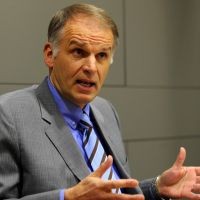 Nous venons de voyager dans l’histoire des premières décennies de l’Etat belge, dans les années 10, 20 et 30 des démocraties occidentales (où les exécutifs se sont largement substitué au législatif) et dans l’univers de la politologie, surtout italienne, mais quid hic et nunc? Qu’en est-il ici, en ce pays, à l’heure actuelle? La politologie critique est quasi inexistante, à la seule et notable exception des travaux du Sénateur MR (libéral) Alain Destexhe. Cet homme politique libéral de la Région de Bruxelles-Capitale possède son ancrage communal à Auderghem (Oudergem), où, récemment, il a eu maille à partir avec son co-listier Didier Gosuin, étiquetté FDF (“Front des Francophones”), lors d’une campagne électorale pour les communales: des sbires du FDF l’auraient maxaudé lors d’une altercation, survenue entre deux groupes de colleurs d’affiches, l’un MR, soutenant Destexhe, et l’autre FDF, soutenant Gosuin. Destexhe a subi une campagne médiatique haineuse, suite à la scandaleuse vandalisation de la station de métro Horta à Saint-Gilles. Sur un blog ou sur Facebook (que Nanabozo le Grand Lapin nous en préserve!), Destexhe avait envoyé un mot rageur, et sûrement un peu malheureux, à une amie: “Encore un coup de tes amis norvégiens...”. Tout le monde sait, à Bruxelles, que lorsqu’on parle d’“amis norvégiens” ou “finlandais”, on désigne les trublions maghrébins, qui ne sont considérés ni comme “amis”, ni comme “norvégiens” ou “finlandais” par ceux qui utilisent cette expression un peu simpliste, histoire de contourner les ukases du “politiquement correct” et de tromper la vigilance des cinglés obsessionnels du “Centre pour l’égalité des chances et des longueurs de zizi et pour la lutte contre le racisme, la myxomatose et le phylloxéra”. Bref, cette note anodine —sûrement proférée mutatis mutandis par des milliers de Bruxellois à la vue de la belle station de métro, maculée de jets de peintures de toutes couleurs “flashy”— a sans doute été exprimée à tort contre les “Norvégiens” putatifs car le forfait semble plutôt l’oeuvre de camés disjonctés (par crack, speed, coke ou autre mescaline) sans distinction de race ou de classe, mais elle a permis à toute une clique de véreux vexés d’orchestrer une cabale virulente contre le pauvre Destexhe qu’on cherche à chasser de tous les aréopages politiques de la Région et du Fédéral. Pourquoi cette hargne? Parce Destexhe a écrit les meilleurs livres critiques —encore que fort gentils par rapport à ce qui ce publie en Flandre— sur les dysfonctionnements de la Belgique: il a commencé par rédiger un livre bien ficelé sur les aberrations de l’enseignement francophone belge, dont les résultats aux sondages PISA sont désastreux et devraient faire honte à la clique des faux pédagogues obtus, vieux gauchards débraillés, incultes et stupides qui imposent leurs lubies délétères aux pauvres gosses, aux parents et à tous les gens de bon sens qui subsistent vaille que vaille dans cette institution (cf. Alain Destexhe, Vincent Vandenberghe & Guy Vlaeminck, “L’école de l’échec: comment la réformer? Du pédagogisme à la gouvernance”, Ed. Labor, Bruxelles, 2004). Ce livre était un premier coup de pied dans la fourmilière. Destexhe va récidiver.
Nous venons de voyager dans l’histoire des premières décennies de l’Etat belge, dans les années 10, 20 et 30 des démocraties occidentales (où les exécutifs se sont largement substitué au législatif) et dans l’univers de la politologie, surtout italienne, mais quid hic et nunc? Qu’en est-il ici, en ce pays, à l’heure actuelle? La politologie critique est quasi inexistante, à la seule et notable exception des travaux du Sénateur MR (libéral) Alain Destexhe. Cet homme politique libéral de la Région de Bruxelles-Capitale possède son ancrage communal à Auderghem (Oudergem), où, récemment, il a eu maille à partir avec son co-listier Didier Gosuin, étiquetté FDF (“Front des Francophones”), lors d’une campagne électorale pour les communales: des sbires du FDF l’auraient maxaudé lors d’une altercation, survenue entre deux groupes de colleurs d’affiches, l’un MR, soutenant Destexhe, et l’autre FDF, soutenant Gosuin. Destexhe a subi une campagne médiatique haineuse, suite à la scandaleuse vandalisation de la station de métro Horta à Saint-Gilles. Sur un blog ou sur Facebook (que Nanabozo le Grand Lapin nous en préserve!), Destexhe avait envoyé un mot rageur, et sûrement un peu malheureux, à une amie: “Encore un coup de tes amis norvégiens...”. Tout le monde sait, à Bruxelles, que lorsqu’on parle d’“amis norvégiens” ou “finlandais”, on désigne les trublions maghrébins, qui ne sont considérés ni comme “amis”, ni comme “norvégiens” ou “finlandais” par ceux qui utilisent cette expression un peu simpliste, histoire de contourner les ukases du “politiquement correct” et de tromper la vigilance des cinglés obsessionnels du “Centre pour l’égalité des chances et des longueurs de zizi et pour la lutte contre le racisme, la myxomatose et le phylloxéra”. Bref, cette note anodine —sûrement proférée mutatis mutandis par des milliers de Bruxellois à la vue de la belle station de métro, maculée de jets de peintures de toutes couleurs “flashy”— a sans doute été exprimée à tort contre les “Norvégiens” putatifs car le forfait semble plutôt l’oeuvre de camés disjonctés (par crack, speed, coke ou autre mescaline) sans distinction de race ou de classe, mais elle a permis à toute une clique de véreux vexés d’orchestrer une cabale virulente contre le pauvre Destexhe qu’on cherche à chasser de tous les aréopages politiques de la Région et du Fédéral. Pourquoi cette hargne? Parce Destexhe a écrit les meilleurs livres critiques —encore que fort gentils par rapport à ce qui ce publie en Flandre— sur les dysfonctionnements de la Belgique: il a commencé par rédiger un livre bien ficelé sur les aberrations de l’enseignement francophone belge, dont les résultats aux sondages PISA sont désastreux et devraient faire honte à la clique des faux pédagogues obtus, vieux gauchards débraillés, incultes et stupides qui imposent leurs lubies délétères aux pauvres gosses, aux parents et à tous les gens de bon sens qui subsistent vaille que vaille dans cette institution (cf. Alain Destexhe, Vincent Vandenberghe & Guy Vlaeminck, “L’école de l’échec: comment la réformer? Du pédagogisme à la gouvernance”, Ed. Labor, Bruxelles, 2004). Ce livre était un premier coup de pied dans la fourmilière. Destexhe va récidiver.
“Politique” et “politisation”
Cette récidive prend la forme d’un nouveau livre, intitulé significativement “Démocratie ou partitocratie? 120 propositions pour refonder le système belge” (Labor, Bruxelles, 2003). Destexhe l’a rédigé de conserve avec le Prof. Alain Eraly (ULB) et Eric Gillet. Dans le cadre belge, il convient de rappeler que Destexhe demeure un libéral, qu’il n’est absolument pas “raciste” (et sa vie quotidienne le prouve amplement) et qu’il n’est pas séparatiste (il croit au cadre étatique belge, tel qu’il existe aujourd’hui): inutile de s’évertuer à faire de Destexhe un comploteur fanatique, appartenant à une idéologie dissidente enragée de ne pas être appelée à co-gérer les affaires du royaume. Non: Destexhe est un homme politique qui se veut loyal à l’endroit de son propre “pilier libéral”. L’intérêt premier de ce livre est de faire la distinction entre “politique” et “politisation”. Le terme “politique” est chargé d’une connotation positive dans l’ouvrage de Destexhe, Eraly et Gillet. La politique est inscrite dans l’essence de l’homme, en tant que “zoon politikon”. Si elle se déploie dans une continuité temporelle harmonieuse, elle s’avère essentielle pour le Bien public, pour la communauté nationale ou le “commonwealth”. Le terme “politisation” est, lui, chargé d’une connotation négative dans le livre: il signifie l’immixtion permanente du monde politicien dans la vie quotidienne, dans l’espace privé des citoyens, dans les modes de pensée spontanés de l’homme de la rue (qui ne peut plus rien dire, ne peut plus ironiser, caricaturer, jouer son petit Diogène au comptoir du bistrot ou sur le mur virtuel de Facebook sous peine d’être accusé de sexisme, de racisme et, bien entendu, de “nazisme”). La “politisation” pourrait être un facteur positif si elle favorisait l’accès au statut de “zoon politikon”. Ce n’est pas le cas en Belgique car la “politisation”, telle que la dénoncent nos trois auteurs, sert justement à maintenir le citoyen hors de ce statut, pourtant ontologique. Destexhe, Eraly et Gillet énumèrent ensuite les cinq tares du système belge qu’ils ont décidé de mettre en exergue: 1) la “particratie” (ils ne disent pas la “partitocratie”, terme exact, propre aux sciences politologiques, l’autre, pour lequel ils optent, étant polémique); 2) la politisation, au sens péjoratif qu’ils accordent à ce vocable; 3) le clientélisme (que leurs homologues flamands, autour de Luc Huyse et Chris Deschouwer, appellent l’“amigocratie”; 4) l’hyper-complexité des institutions qui en découle; 5) la culture du compromis, présentée comme un atout, alors qu’elle bloque irrémédiablement le processus de décision.
Cinq tares
Pour notre trio de politologues, la “particratie”, première des cinq tares du machin Belgique, conduit à un “contrôle général” de la population. Nos auteurs mettent tout particulièrement un danger en exergue: les artistes de talent, les universitaires bardés de diplômes de haut niveau scientifique, qui veulent obtenir quelque chose doivent devenir membre d’un parti, jurer fidélité à des politicards, fussent-ils des ivrognes, des prostituées recyclées, des abonnés à la Gay Pride, des tenanciers de maison de tolérance, des escrocs notoires, etc. et, pire, soulignent-ils, doivent s’humilier devant de telles créatures comme dans les systèmes totalitaires pourtant décriés à qui mieux-mieux dans les gazettes du régime, sur les ondes et à la télévision. S’ils refusent de s’humilier devant ces imbéciles vulgaires, ils sont souvent contraints à l’émigration vers des pays qui les accueillent évidemment à bras ouverts et où les recteurs des universités ne doivent pas passer sous les fourches caudines d’une canaille comme celle qui nous gouverne en maintenant à son profit exclusif le dispositif du “coup de Loppem”. C’est dans cette obligation de s’humilier en permanence que nos trois auteurs perçoivent le pire danger que la “particratie” fait courir à la démocratie, au bien commun et à l’honneur des citoyens, surtout les plus insignes. En effet, des individus méprisables, de mauvais aloi mais qui détiennent le pouvoir, contraignent de plus en plus de personnalités de grande valeur à la marginalité ou à l’émigration, si ces personnalités refusent de s’humilier. Le pays se vide ainsi de talents précieux pour accueillir ensuite, par centaines de milliers, de pauvres hères, venus de partout et de nulle part, qui ne trouveront jamais un boulot utile et créatif dans nos industries et services, comme le souligne par ailleurs, cette fois pour l’Allemagne, le socialiste berlinois Thilo Sarrazin, auteur d’un best-seller sur le déclin de l’Allemagne contemporaine qui a été vendu à plus d’un million d’exemplaires.
Le seconde tare, mise en exergue, concerne la “politisation”, concept négatif aux yeux de nos auteurs. L’effet le plus préoccupant de cette “politisation” découle du fait qu’il n’existe pas d’examens d’Etat pour recruter les fonctionnaires. Il existe certes des fonctionnaires statutaires, récrutés sur base de leurs diplômes acquis dans les établissements d’enseignement, mais ils sont flanqués d’autant, sinon plus, de “cabinettards”, c’est-à-dire de collaborateurs de parlementaires et de ministres placés suite aux résultats électoraux et forcément tous membres de partis: dans la plupart des cas leur carte d’affiliation pesant plus lourd que leurs diplômes (s’ils en ont...). En théorie, les cabinettards sont placés à leurs postes pour servir le ministre ou le parlementaire dans l’exercice de ses fonctions, mais celles-ci sont limitées dans le temps (celui d’une législature); en Belgique toutefois, on a pris la mauvaise habitude de les nommer définitivement, même après le départ du ministre vers d’autres fonctions ou après un échec électoral. D’autres cabinettards sont casés dans des institutions parallèles, financées par les deniers publics. Le prix de la fonction publique, justifié s’il s’agit de fonctionnaires statutaires recrutés sur base de diplômes dûment acquis, cesse d’être justifiable quand une pléthore de militants, ex-cabinettards ou bénéficiaires de divers passe-droit, s’y incruste tant et si bien qu’elle devient tentaculaire, trop obèse pour agir dans la souplesse requise. Pire: la présence inamovible de ces milliers de cabinettards dans les rouages de l’Etat fait que l’Etat et le fonctionnariat cessent d’être, comme le voulait Max Weber (qui avait en tête le vieux système prussien), des instances neutres, objectives, aux yeux du public. Cette manie de nommer définitivement les cabinettards, comme s’ils étaient des fonctionnaires statutaires, crée dans l’opinion publique, avec d’autres facteurs générant dégoût ou désillusion, une attitude hostile à l’Etat, diffuse, inexprimée et sournoise. Jean-Luc Dehaene, figure emblématique des travers de la partitocratie, version démocrate-chrétienne, appelait cette attitude de rejet ou d’indifférence l’“anti-politiek” et la fustigeait comme l’anti-chambre du populisme. On perçoit tout de suite la perversion de son discours: c’est bien plutôt l’attitude populaire qui est “politique”, au sens positif où l’entendent Destexhe et ses amis, puisqu’elle refuse une “politisation” qui engendre quantité de dysfonctionnements. L’attitude de Dehaene, qui se prétend “politique”, est en réalité “politicide” puisqu’elle ruine la politie où elle exerce ses ravages. Nous avons là une inversion sémantique, quasi orwellienne, où les héritiers indignes de la troïka de Loppem appellent “politique” leurs jeux néfastes qui ruinent la Cité. Et fustigent comme “anti-politiek” le désir diffus de mettre un terme aux dysfonctionnements patents d’un Etat à la dérive.
Clientèlisme et compromis
La troisième tare dénoncée par Destexhe est le clientélisme, omniprésent en Belgique, surtout dans la Wallonie socialiste. La quatrième tare est l’installation ubiquitaire d’institutions au fonctionnement trop compliqué: cette complexification croissante des rouages de l’Etat est à son tour un déni de démocratie, vu que le citoyen n’en comprend pas le fonctionnement, en vient à ignorer certaines lois ou à n’en comprendre que trop vaguement la signification. Qui dit démocratie, dit transparence (au meilleur sens du terme), dit clarté et visibilité du jeu politique. Cette visibilité s’estompe, si bien que l’on ne peut plus, sans mentir, parler de démocratie.
La cinquième tare est celle des compromis. On vante souvent, dans la presse et les médias aux ordres, la capacité à sceller des compromis comme une “vertu politique” typiquement belge. Dehaene, surnommé le “plombier” à cause de son habilité légendaire à imaginer et imposer des tuyauteries alambiquées pour faire fonctionner le “machin” après d’interminables négociations, est un virtuose de ces compromis opaques où l’on ne retient que les plus petits dénominateurs communs entre partis et idéologies sous-jacentes (du moins ce qu’il en reste), au détriment de questions importantes, escamotées ou mises au placard. Cet art de faire des compromis permet surtout de remettre aux calendes grecques les dossiers importants qui devraient pourtant être réglés dans des délais aussi brefs que possibles. Rien n’est décidé: les décrets, par lesquels Dehaene aimait gouverner, ne servent pas à décider dans les dossiers épineux et urgents: ils servent à faire passer dans nos réalités politiques et quotidiennes l’architecture branlante des “plomberies”, au détriment des vraies décisions qui nous permettraient de sortir des impasses où les inévitables aléas du temps nous fourvoient à intervalles réguliers, les lois éternelles de l’usure des institutions et de l’accumulation graduelle des problèmes étant incontournables, générant de telles impasses dont le politique, le vrai, devrait normalement nous sortir dans des délais aussi brefs que possible. Dans une telle situation, le processus de décision politique, essentiel pour le bon fonctionnement d’un Etat, devient trop lent ou se voit irrémédiablement bloqué. Ce blocage est dû à l’absence de clarté dans les concepts de gouvernement, à l’absence de “grandes idées incontestables” (Hauriou), à la disparition d’un héritage classique commun où l’équilibre entre principes aristotéliciens et visions platoniciennes, rhétorique cicéronienne et annales tacitistes, permettait à tous de trouver des bases d’accord solides. Toutes choses que le libéralisme, dont Destexhe est encore existentiellement tributaire, a contribué à ruiner dans toute l’Europe, au profit de “pragmatismes” sans profondeur et d’un “économisme/commercialisme” qui conduit à l’anarchie douce et à la mort du politique.
Toute critique positive du dysfonctionnement de la “démocratie” en Belgique peut bien entendu se baser sur le livre simple, clair, didactique, de Destexhe, Eraly et Gillet. C’est un premier tremplin pour renouer avec les grandes traditions de la pensée politique critique, de Mosca à Pareto, de Weber à Michels, de Schmitt à Freund, de Haider à Sarrazin, de Miglio à Otero Novas, etc. Il faut cependant tenir compte de la longue crise politique belge entre 2007 et 2010, postérieure à la rédaction du livre-manifeste de nos trois auteurs, où le système partitocratique est entré dans une phase de blocage inédite, qu’il ne pourra pas répéter une seconde ou une troisième fois sans s’asphyxier définitivement et sans faire éclater le royaume, au beau milieu d’une Europe qui se délite, suite à la crise financière de 2008 et au vacillement de l’euro, sans nul doute parce qu’elle a voulu obstinément suivre une “norme” sans disposer de la “force” (militaire et satellitaire) nécessaire pour consolider la monnaie d’un espace sinon “impérial” du moins “continental” ou “sub-continental” (Zaki Laïdi).
Période d’endormissement
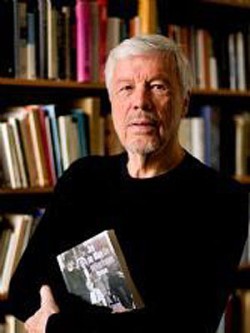 Les blocages de la machine partitocratique nous font sombrer dans ce que Hannah Arendt, suite à l’idée heideggerienne du “règne du on”, nommait une “période d’endormissement”, où les pesanteurs accumulées nous empêchent tous de mener une réelle “vita activa”, donc une vie de “zoon politikon”, une vie véritablement “citoyenne”, au sens du “civis” romain. Le paradoxe de notre époque est que les Tchandalas dominants n’ont que le terme “citoyen” à la bouche, alors qu’ils empêchent par leurs manoeuvres contrôlantes et bloquantes l’éclosion d’une véritable citoyenneté! C’est une situation comme l’imaginait Orwell dans son célèbre roman “1984”, où “la vérité est mensonge” et “la paix est la guerre”. Jos De Man (photo), en Flandre, le démontre dans un volume épais, paru chez le prestigieux éditeur ASP de Bruxelles (“Academic and Scientific Publishers”): nous assistons, sous les coups du “politiquement correct” qui sert le système figé créé par la partitocratie (issue du “coup de Loppem”), à l’éclipse du citoyen, qui cède la place, de plus en plus rapidement, à une nouvelle forme de “sujet” (onderdaan, Untertan), non pas actif, comme le serait un “sujet de l’histoire” ou l’exposant d’une “vita activa” (selon Hannah Arendt), mais amorphe, passif, saoûlé de discours médiatiques ineptes ou empêché d’exprimer avis, opinion, état d’âme, legs ataviques, religiosité immémoriale, etc.
Les blocages de la machine partitocratique nous font sombrer dans ce que Hannah Arendt, suite à l’idée heideggerienne du “règne du on”, nommait une “période d’endormissement”, où les pesanteurs accumulées nous empêchent tous de mener une réelle “vita activa”, donc une vie de “zoon politikon”, une vie véritablement “citoyenne”, au sens du “civis” romain. Le paradoxe de notre époque est que les Tchandalas dominants n’ont que le terme “citoyen” à la bouche, alors qu’ils empêchent par leurs manoeuvres contrôlantes et bloquantes l’éclosion d’une véritable citoyenneté! C’est une situation comme l’imaginait Orwell dans son célèbre roman “1984”, où “la vérité est mensonge” et “la paix est la guerre”. Jos De Man (photo), en Flandre, le démontre dans un volume épais, paru chez le prestigieux éditeur ASP de Bruxelles (“Academic and Scientific Publishers”): nous assistons, sous les coups du “politiquement correct” qui sert le système figé créé par la partitocratie (issue du “coup de Loppem”), à l’éclipse du citoyen, qui cède la place, de plus en plus rapidement, à une nouvelle forme de “sujet” (onderdaan, Untertan), non pas actif, comme le serait un “sujet de l’histoire” ou l’exposant d’une “vita activa” (selon Hannah Arendt), mais amorphe, passif, saoûlé de discours médiatiques ineptes ou empêché d’exprimer avis, opinion, état d’âme, legs ataviques, religiosité immémoriale, etc.
Mais le but premier reste l’espoir de Jean Eugène van der Taelen, à qui je dédie cet essai: rendre la démocratie plus directe, en instaurant chez nous le principe du référendum sur le mode helvétique, permettant justement d’imposer par la base la décision au sommet, sans passer par le filtre des partis tout en restant pleinement démocratique. Mieux: en étant plus démocratique que les partitocrates qui ne sont jamais que des démocrates auto-proclamés, dont le système exhibe de plus en plus de lézardes!
Robert Steuckers.
(essai préparé en mars 2012; rédaction finale, mai 2013).
Bibliographie complémentaire:
Santiago ABASCAL CONDE y Gustavo BUENO SANCHEZ, En defensa de España – Razones para el patriotismo español, Encuentro, Madrid, 2008.
Giorgio AGAMBEN, Stato di eccezione, Bollati Boringhieri, Torino, 2003.
Ernst Mortiz ARNDT, Deutsche Volkswerdung, Ferdinand Hirt, Breslau, 1934.
Hans Herbert von ARNIM, Das System – Die Machenschaften der Macht, Droemer, München, 2001.
Olivero BEHA, Come resistere nella palude di Italopoli, ChiareLettere, Milano, 2007.
Norberto BOBBIO, Die Zukunft der Demokratie, Rotbuch Verlag, Berlin, 1988.
Alessandro CAMPI, Schmitt, Freund, Miglio: figure e temi del realismo politico europeo, Akropolis/La Roccia di Erec, Firenze, 1996.
Alessandro CAMPI, “El realismo politico ante la crisis de la Estatalidad”, in: Empresas políticas, Año II, n°2, 2003.
Luciano CANFORA, La democrazia – Storia di un’ideologia, Laterza, Roma/Bari, 2004-2010.
Luciano CANFORA, La natura del potere, Laterza, Roma/Bari, 2009.
Luciano CANFORA, Intervista sul potere (a cura di Antonio Carioti), Laterza, Roma/Bari, 2013.
Robert A. DAHL, Democracy and its critics, Yale University Press, New Haven/London, 1989.
Henri DELEERSNIJDER, Albert 1er, roi pacifiste, Renaissance du Livre, Bruxelles, 2011.
Jos DE MAN, Van Burger tot onderdaan - Het failliet van de democratie, ASP, Brussel, 2012.
Francis DEMIER, La France de la Restauration (1814-1830) – L’impossible retour du passé, Folio/Histoire, n°191, Paris, 2012.
Freddy DE PAUW, De maffia in België, Davidsfonds, Leuven, 1998-1999.
Alain DESTEXHE, Alain ERALY & Eric GILLET, Démocratie ou particratie? 120 propositions pour refonder le système belge, Labor, Bruxelles, 2003.
Alexandre DORNA, Le populisme, PUF, Paris, 1999.
Roger DUPUY, La politique du peuple – racines, permanences et ambiguités du populisme, Albin Michel, Paris, 2002.
Bernhard Paul FALK, Geschichtsschreibung und nationale Ideologie – Der norwegische Historiker Johan Ernst Sars, Carl Winter/Universitätsverlag, Heidelberg, 1991.
Gonzalo FERNANDEZ de la MORA, “Le contradidizioni della partitocrazia”, in: Futuro Presente, n°4, 1993.
Julien FREUND, Sociologie de Max Weber, PUF, 1968.
Julien FREUND, Max Weber, PUF, 1969.
Max-Emanuel GEIS, Kulturstaat und kulturelle Freiheit, Nomos Verlagsgesellschaft, Baden-Baden, 1990.
Panfilo GENTILE, Democrazie mafiose, Ponte Alle Grazie, Firenze, 1997.
Dr. Heinrich GERSTENBERG, Ernst Moritz Arndt – Sein Vermächtnis an uns, Hanseatische Verlagsanstalt, Hamburg, 1925.
Eliane GUBIN, Bruxelles au XIX° siècle: berceau d’un flamingantisme démocratique (1840-1873), Crédit communal de Belgique, coll. Histoire Pro Civitate, n°56, 1979.
Chritstoph GUSY, Die Lehre vom Parteienstaat in der Weimarer Republik, Nomos Verlagsgsellschaft, Baden-Baden, 1993.
Heinz-Gerhard HAUPT, Nationalismus und Demokratie – Zur Geschichte der Bourgeoisie im Frankreich der Restauration, Europäische Verlagsanstalt, Frankfurt am Main, 1974-1980.
Christian Graf von KROCKOW, Der deutsche Niedergang – Ein Ausblick ins 21. Jahrhundert, DTV, München, 1998.
Prof. Dr. Fernand LEHOUCK, Van apathie tot strijdbaarheid – Schets van een geschiedenis van de Belgische vakbeweging 1830-1914, Orion, Brugge, 1980.
André LETON & André MIROIR, Les conflits communautaires en Belgique, PUF, Paris, 1999.
Arend LIJPHART, Democracy in Plural Societies – A Comparative Exploration, Yale University Press, New Haven/London, 1977.
Yves MANHES, Histoire des Belges et de la Belgique, Vuibert, Paris, 2005.
Frédérique MATONTI (sous la direction de), La démobilisation politique, La Dispute/SNEDIT, Paris, 2005
Roberto MICHELS, Potere e oligarchie, Giuffrè Ed., Milano, 1989.
Gianfranco MIGLIO, Come cambiare – Le mie riforme, Arnaldo Mondadori Ed., Milano, 1992.
Marco MINGHETTI, I partiti politici e la loro ingerenza nella giustizia e nell’amministrazione, Societa Aperta, Milano, 1997.
Jerónimo MOLINA, Julien Freund, lo político y la política, Ed. Sequitur, Madrid, 2000.
Jerónimo MOLINA, “Representacíon, Asociacíon, Participacíon”, in: Anuario Filosófico, XXXVI/1 (2003), 455-471.
Jerónimo MOLINA, Conflicto, Gobierno y Economía – Cuatro ensayos sobre Julien Freund, Ed. Struhart & Cía, Buenos Aires, 2004.
Wolfgang MOMMSEN, Max Weber. Gesellschaft, Politik und Geschichte, Suhrkamp, Frankfurt am Main, 1974.
Walter NUTZ, Vom Mythos der Freiheit – Von Plato bis Nietzsche – Verfall der Demokratien am Ende des 20. Jahrhunderts, Edition Q, Berlin, 1995.
Moisei OSTROGORSKI, La démocratie et les partis politiques, L’Esprit de la Cité/Fayard, Paris, 1993.
José Manuel OTERO NOVAS, Mitos del pensamiento dominante – Paz, Democracia y Razón, Libros Libres, Madrid, 2011.
Heribert PRANTL, Kein schöner Land – Die Zerstörung der sozialen Gerechtigkeit, Droemer, München, 2005.
Marco REVELLI, Finale di partito, Giulio Einaudi, Torino, 2013.
Giuseppe SCHIAVONE (a cura di), La democrazia diretta – Un progetto politico per la società di giustizia, Ed. Dedalo, Bari, 1997 (dans ce volume, cf.: Giuseppe SCHIAVONE, “La democrazia rappresentativa, apporti e limiti”; Ronald CREAGH, “Gli infortuni della democrazia”; Gian Paolo PRANDSTRALLER, “partito e movimento”; Arrigo COLOMBO, “Principi di autogoverno politico”; etc.).
Gustav SICHELSCHMIDT, Ernst Moritz Arndt, Stapp Verlag, Berlin, 1981.
Robert STEUCKERS, “Des effets pervers de la partitocratie”, in: Nouvelles de Synergies européennes, n°41, juillet-août 1999.
Pierre-André TAGUIEFF, L’illusion populiste, Berg International, Paris, 2002.
Karim VAN OVERMEIRE, Het Verloren Vaderland – Het Verenigd Koninkrijk der Nederlanden 1815-1830, Uitgeverij Egmont, Brussel, 2005.
Alberto VANNUCCI, Il mercato della corruzione, Sociéta Aperta, Milano, 1997.
Pablo VICTORIA, La sociedad postliberal y sus amigos – El genocidio del intelecto, Criterio Libros, Madrid, 2002.
Max WEBER, Le savant et le politique, UGE 10/18, Paris, 1963.
Simone WEIL, “Appunti sulla soppressione dei partiti politici”, in: Futuro presente, n°4, 1993.
Els WITTE, Politiek en democratie, VUB Press, 1990-1998.
Christian ZENTNER (Hrsg.), Chronik der Deutschen – Von den Anfängen bis heute, Otus Verlag, St. Gallen, 2010.





 del.icio.us
del.icio.us
 Digg
Digg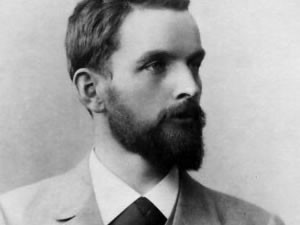 Silvio Gesell war ein nonkonformistischer Ökonom. Er nahm zusammen mit Figuren sowie Niekisch, Mühsam und Landauer an der Räteregierung Bayerns teil. Der gebürtige Sankt-Vikter entwickelte in seinem wichtigsten Buch “Die natürliche Ordnung” ein Projekt der Umverteilung des Bodens, damit ein Jeder selbständig-autonom in totaler Unabhängigkeit von abstrakten Strukturen leben konnte. Günter Bartsch nennt ihn ein “Akrat”, d.h. ein Mensch, der frei von jeder Bevormündung ist, sei diese politischer, religiöser oder verwaltungsartiger Natur. Für Klaus Schmitt, der Gesell für die deutsche nonkonforme Linke wiederentdeckt (aber nicht kritiklos), ist der räterepublikanische Akrat ein der schärfsten Kritiker der “Macht Mammons”. Diese Allmacht wollte Gesell mit der Einführung eines “Schwundgeldes” bzw. einer “Freigeld-Lehre” zerschmettern. Unter “Schwundgeld” verstand er ein Geld, das man nicht thesaurisieren konnte und für das keine Zinsen gezahlt wurden. Im Gegenteil war für Gesell die Hortung von Geldwerten die Hauptsünde. Geld, das nicht in Sachen (Maschinen, Geräte, Technik, Erziehung, Boden, Vieh, usw.) investiert wird, mußte durch moralischen und ökonomischen Zwang an Wert verlieren. Solche Ideen entwickelten auch der Vater des kanadischen und angelsächsichen Distributismus, C. H. Douglas, und der Dichter Ezra Pound, der in den amerikanischen Regierung ein Instrument des Teufels Mammon sah. Douglas entwickelte distributistische Bauern-Projekte in Kanada, die teilweise noch heute existieren. Pound drückte seinen Dichterhaß gegen Geld- und Bankwesen, indem er die italienischen “Saló-Republik” am Ende des Krieges unterstütze. Pound versuchte, seine amerikanische Landgenossen zu überzeugen, keinen Krieg gegen Mussolini und das spätfaschistischen Italien zu führen. Nach 1945, wurde er in den VSA zwölf Jahre lang in einer Irrenanstalt eingesperrt. Er kam trotzdem aus dieser Hölle ungebrochen zurück und ging bei seiner Dochter Mary de Rachewiltz in Südtirol wohnen, wo er 1972 starb.
Silvio Gesell war ein nonkonformistischer Ökonom. Er nahm zusammen mit Figuren sowie Niekisch, Mühsam und Landauer an der Räteregierung Bayerns teil. Der gebürtige Sankt-Vikter entwickelte in seinem wichtigsten Buch “Die natürliche Ordnung” ein Projekt der Umverteilung des Bodens, damit ein Jeder selbständig-autonom in totaler Unabhängigkeit von abstrakten Strukturen leben konnte. Günter Bartsch nennt ihn ein “Akrat”, d.h. ein Mensch, der frei von jeder Bevormündung ist, sei diese politischer, religiöser oder verwaltungsartiger Natur. Für Klaus Schmitt, der Gesell für die deutsche nonkonforme Linke wiederentdeckt (aber nicht kritiklos), ist der räterepublikanische Akrat ein der schärfsten Kritiker der “Macht Mammons”. Diese Allmacht wollte Gesell mit der Einführung eines “Schwundgeldes” bzw. einer “Freigeld-Lehre” zerschmettern. Unter “Schwundgeld” verstand er ein Geld, das man nicht thesaurisieren konnte und für das keine Zinsen gezahlt wurden. Im Gegenteil war für Gesell die Hortung von Geldwerten die Hauptsünde. Geld, das nicht in Sachen (Maschinen, Geräte, Technik, Erziehung, Boden, Vieh, usw.) investiert wird, mußte durch moralischen und ökonomischen Zwang an Wert verlieren. Solche Ideen entwickelten auch der Vater des kanadischen und angelsächsichen Distributismus, C. H. Douglas, und der Dichter Ezra Pound, der in den amerikanischen Regierung ein Instrument des Teufels Mammon sah. Douglas entwickelte distributistische Bauern-Projekte in Kanada, die teilweise noch heute existieren. Pound drückte seinen Dichterhaß gegen Geld- und Bankwesen, indem er die italienischen “Saló-Republik” am Ende des Krieges unterstütze. Pound versuchte, seine amerikanische Landgenossen zu überzeugen, keinen Krieg gegen Mussolini und das spätfaschistischen Italien zu führen. Nach 1945, wurde er in den VSA zwölf Jahre lang in einer Irrenanstalt eingesperrt. Er kam trotzdem aus dieser Hölle ungebrochen zurück und ging bei seiner Dochter Mary de Rachewiltz in Südtirol wohnen, wo er 1972 starb. 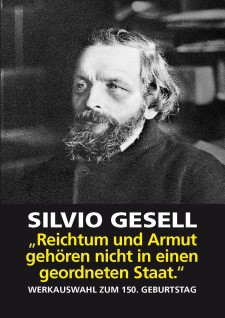 Neben seiner ökonomischen Lehren über das Schwund- und Freigeld, theorisierte Gesell einen Anarchofeminismus, wobei er besonders die Kinder und die Frauen gegen männliche Ausbeutung schützen wollte. Diese Interpretation des matriarchalischen Archetyp implizierte eine ziemlich scharfe Kritik des Vaterrechts, der in seinen Augen die Position der Kinder in der Gesellschaft besonders labil machte. Insofern war Gesell ein Vorfechter der Kinderrechte. Praktish bedeutete dieser Anarchofeminismus die Einführung einer “Mutterrente”. «Gesell und sein Anhänger wollten den gesamten Boden den Müttern zueignen und ihnen bzw. ihren Kinder die Bodenrente bis zum 18. Lebensjahr der Kinder als “Mutter-” bzw. “Kinderrente” zukommen lassen. Ein “Bund der Mütter” soll den gesamten nationalen und in ferner Zukunft den gesamten Boden unseres Planeten verwalten und (...) an den oder die Meistbietenden verpachten. Nach diesem Verfahren hätte jeder einzelne Mensch und jede einzelne Gruppe (z. B. eine Genossenschaft) die gleichen Chancen wie alle anderen, Boden nutzen zu können, ohne von privaten oder staatlichen Parasiten ausgebeutet zu werden» (S. 124). Wissenschaftliche Benennung dieses Systems nach Gesell hieß “physiokratische Mutterschaft”.
Neben seiner ökonomischen Lehren über das Schwund- und Freigeld, theorisierte Gesell einen Anarchofeminismus, wobei er besonders die Kinder und die Frauen gegen männliche Ausbeutung schützen wollte. Diese Interpretation des matriarchalischen Archetyp implizierte eine ziemlich scharfe Kritik des Vaterrechts, der in seinen Augen die Position der Kinder in der Gesellschaft besonders labil machte. Insofern war Gesell ein Vorfechter der Kinderrechte. Praktish bedeutete dieser Anarchofeminismus die Einführung einer “Mutterrente”. «Gesell und sein Anhänger wollten den gesamten Boden den Müttern zueignen und ihnen bzw. ihren Kinder die Bodenrente bis zum 18. Lebensjahr der Kinder als “Mutter-” bzw. “Kinderrente” zukommen lassen. Ein “Bund der Mütter” soll den gesamten nationalen und in ferner Zukunft den gesamten Boden unseres Planeten verwalten und (...) an den oder die Meistbietenden verpachten. Nach diesem Verfahren hätte jeder einzelne Mensch und jede einzelne Gruppe (z. B. eine Genossenschaft) die gleichen Chancen wie alle anderen, Boden nutzen zu können, ohne von privaten oder staatlichen Parasiten ausgebeutet zu werden» (S. 124). Wissenschaftliche Benennung dieses Systems nach Gesell hieß “physiokratische Mutterschaft”.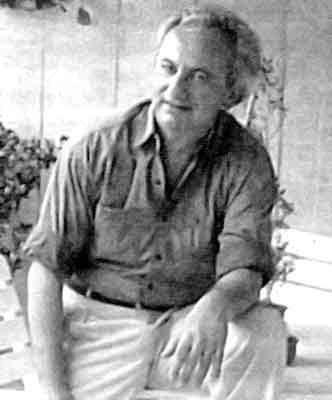
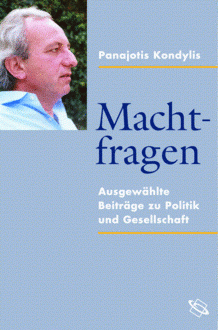 Beispielhaft entfaltet wird dies schon in Kondylis’ Dissertation über Die Entstehung der Dialektik (1979) bei Hölderlin, Schelling und Hegel und der damit zusammenhängenden Studie über Die Aufklärung im Rahmen des neuzeitlichen Rationalismus (1981), wo er zeigt, »wie sich ein systematisches Denken als Rationalisierung einer Grundhaltung und -entscheidung allmählich herauskristallisiert, und zwar im Bestreben, Gegenpositionen argumentativ zu besiegen«. Die Ausformung jener Dialektik, wie sie nach Hegel im Marxismus Ideologie einer weltgeschichtlich wirksamen Macht wurde, erweist sich als Teil eines konfliktreichen, schon im Spätmittelalter einsetzenden Prozesses der Ablösung von Weltbildern, in dem die formal-begrifflichen Strukturen der jeweils älteren Metaphysik stillschweigend übernommen und polemisch umgedeutet werden.
Beispielhaft entfaltet wird dies schon in Kondylis’ Dissertation über Die Entstehung der Dialektik (1979) bei Hölderlin, Schelling und Hegel und der damit zusammenhängenden Studie über Die Aufklärung im Rahmen des neuzeitlichen Rationalismus (1981), wo er zeigt, »wie sich ein systematisches Denken als Rationalisierung einer Grundhaltung und -entscheidung allmählich herauskristallisiert, und zwar im Bestreben, Gegenpositionen argumentativ zu besiegen«. Die Ausformung jener Dialektik, wie sie nach Hegel im Marxismus Ideologie einer weltgeschichtlich wirksamen Macht wurde, erweist sich als Teil eines konfliktreichen, schon im Spätmittelalter einsetzenden Prozesses der Ablösung von Weltbildern, in dem die formal-begrifflichen Strukturen der jeweils älteren Metaphysik stillschweigend übernommen und polemisch umgedeutet werden.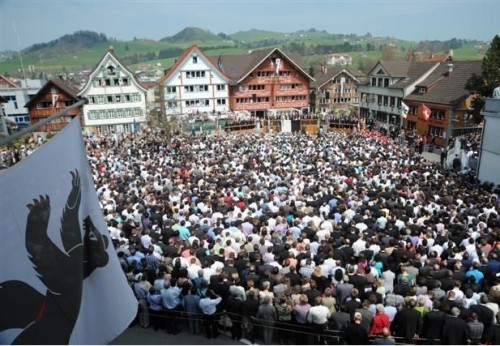



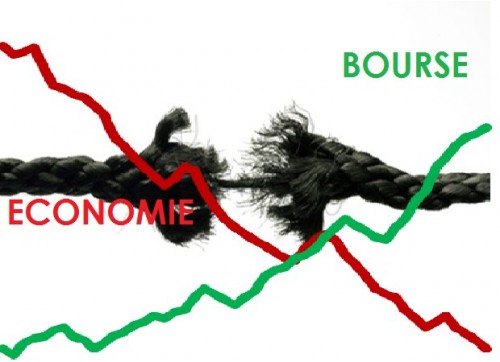
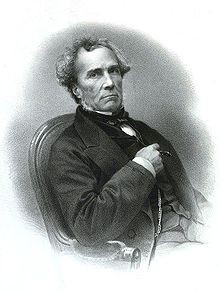 Comme je le dis parfois, nous vivons dans un présent permanent depuis environ deux siècles. Les années 1830 sont déjà notre société et nous ne les quitterons qu’à la prochaine comète qui s’écrasera sur notre vieille planète. Ce n’est pas un hasard. Le progrès et la blafarde modernité ont paralysé l’histoire de l’humanité. Pronostiquée par Hegel en 1806, la Fin de l’Histoire n’en finit pas de prendre son congé.
Comme je le dis parfois, nous vivons dans un présent permanent depuis environ deux siècles. Les années 1830 sont déjà notre société et nous ne les quitterons qu’à la prochaine comète qui s’écrasera sur notre vieille planète. Ce n’est pas un hasard. Le progrès et la blafarde modernité ont paralysé l’histoire de l’humanité. Pronostiquée par Hegel en 1806, la Fin de l’Histoire n’en finit pas de prendre son congé.
 Il n’empêche qu’au cours des trois ou quatre premières décennies du 19ème siècle, les peuples d’Europe aspiraient à bénéficier d’une constitution démocratique et voulaient un élargissement du droit de vote aux catégories plus modestes de la population. Les peuples avaient été mobilisés pour faire la guerre contre Napoléon, surtout en Prusse où les bataillons de volontaires de 1813 s’étaient recrutés dans toutes les strates de la population, sans aucune distinction de classe. L’obligation de verser son sang, aux yeux des anciens soldats, devait être compensée par le droit d’intervenir “démocratiquement” dans la formation des gouvernements, des pouvoirs législatifs et exécutifs. Plusieurs petits soulèvements locaux ont ainsi secoué l’Allemagne entre 1825 et 1835: tous portaient, en signe de ralliement, un drapeau rouge-noir-or, symbole de “démocratie” dans les pays germaniques. Ces couleurs ressemblent à celles dites du Brabant, rouge-jaune-noir, utilisées lors de la “révolution” de 1789 contre les réformes éclairées de l’Empereur Joseph II. La différence, de taille, c’est que la révolte anti-joséphienne de 1789 était ultra-réactionnaire, dirigée contre les “Lumières” du despotisme éclairé, et ne comprenait qu’une aile minoritaire libérale, dite “vonckiste”, rapidement mise hors circuit par le déchaînement, dans la rue, d’une violence inouïe. Celle de 1830 a toutes les apparences du libéralisme du début du 19ème, affublé de quelques oripeaux romantiques (la “Muette de Portici”) mais sans l’atout de la politique et de la pensée romantiques, telles que les a décrites un Georges Gusdorf, éminent professeur de l’université de Strasbourg, dans ses multiples volumes consacrés à l’évolution de la pensée du 18ème au 19ème. Et sans la rigueur et la concision de la pensée d’Ernst Moritz Arndt, populiste réclamant une constitution, à la manière des Lumières et du libéralisme du début du 19ème, mais sans la folie révolutionnaire française de vouloir faire table rase de tous les legs du passé ethno-national, enclenchant de la sorte un “processus de dégénérescence” irréversible, faisant basculer les Lumières dans l’ “Ungeist”, le “non-esprit”; en effet, dans son ouvrage “Deutsche Volkwerdung” (= “Le devenir-peuple des Allemands”), il démontre et explique qu’un peuple ne devient peuple que s’il transforme tous ses ressortissants en “zoon politikon” (= “politische Menschen”), ce qui implique d’abjurer les idées et les attitudes réactionnaires qui le minorisent (Kant!), de refuser le cosmopolitisme (expression d’impolitisme dégénéré, déduit d’une coquetterie volontairement inattentive à tout ce qui relève du “hic et nunc”), de refuser avec la même vigueur les pensées mécanicistes et inorganiques (celles de la révolution française qui ne font que laïciser et républicaniser l’absolutisme anti-populaire). Le peuple, en l’occurrence le peuple allemand, ne devient un vrai peuple, à l’instar des Suédois (la Suède est le modèle d’Arndt), donc un peuple politique, que s’il respecte et cultive l’héritage de ses pères, génère une vie artistique qui lui soit propre, adhère aux valeurs héroïques et conserve une vigueur vitale qui en fait en permanence un peuple jeune, challengeur face à toutes les décrépitudes. Enfin, un peuple n’est peuple que si le droit qu’il se donne puise dans les traditions juridiques qui sont les siennes et ne se réfère jamais à des modèles juridiques étrangers (allusion au droit néo-romain du Code Napoléon). Ernst Moritz Arndt était perçu comme un “jacobin”, comme un dangereux révolutionnaire, comme un “démagogue”, par les forces réactionnaires de son époque. On doit plutôt le considérer comme un combattant de la liberté, une liberté qui ne doit rien à la chimère de la “méthodologie individualiste” mais s’inscrit dans le cadre d’un destin collectif, auquel aucun citoyen ne peut se soustraire.
Il n’empêche qu’au cours des trois ou quatre premières décennies du 19ème siècle, les peuples d’Europe aspiraient à bénéficier d’une constitution démocratique et voulaient un élargissement du droit de vote aux catégories plus modestes de la population. Les peuples avaient été mobilisés pour faire la guerre contre Napoléon, surtout en Prusse où les bataillons de volontaires de 1813 s’étaient recrutés dans toutes les strates de la population, sans aucune distinction de classe. L’obligation de verser son sang, aux yeux des anciens soldats, devait être compensée par le droit d’intervenir “démocratiquement” dans la formation des gouvernements, des pouvoirs législatifs et exécutifs. Plusieurs petits soulèvements locaux ont ainsi secoué l’Allemagne entre 1825 et 1835: tous portaient, en signe de ralliement, un drapeau rouge-noir-or, symbole de “démocratie” dans les pays germaniques. Ces couleurs ressemblent à celles dites du Brabant, rouge-jaune-noir, utilisées lors de la “révolution” de 1789 contre les réformes éclairées de l’Empereur Joseph II. La différence, de taille, c’est que la révolte anti-joséphienne de 1789 était ultra-réactionnaire, dirigée contre les “Lumières” du despotisme éclairé, et ne comprenait qu’une aile minoritaire libérale, dite “vonckiste”, rapidement mise hors circuit par le déchaînement, dans la rue, d’une violence inouïe. Celle de 1830 a toutes les apparences du libéralisme du début du 19ème, affublé de quelques oripeaux romantiques (la “Muette de Portici”) mais sans l’atout de la politique et de la pensée romantiques, telles que les a décrites un Georges Gusdorf, éminent professeur de l’université de Strasbourg, dans ses multiples volumes consacrés à l’évolution de la pensée du 18ème au 19ème. Et sans la rigueur et la concision de la pensée d’Ernst Moritz Arndt, populiste réclamant une constitution, à la manière des Lumières et du libéralisme du début du 19ème, mais sans la folie révolutionnaire française de vouloir faire table rase de tous les legs du passé ethno-national, enclenchant de la sorte un “processus de dégénérescence” irréversible, faisant basculer les Lumières dans l’ “Ungeist”, le “non-esprit”; en effet, dans son ouvrage “Deutsche Volkwerdung” (= “Le devenir-peuple des Allemands”), il démontre et explique qu’un peuple ne devient peuple que s’il transforme tous ses ressortissants en “zoon politikon” (= “politische Menschen”), ce qui implique d’abjurer les idées et les attitudes réactionnaires qui le minorisent (Kant!), de refuser le cosmopolitisme (expression d’impolitisme dégénéré, déduit d’une coquetterie volontairement inattentive à tout ce qui relève du “hic et nunc”), de refuser avec la même vigueur les pensées mécanicistes et inorganiques (celles de la révolution française qui ne font que laïciser et républicaniser l’absolutisme anti-populaire). Le peuple, en l’occurrence le peuple allemand, ne devient un vrai peuple, à l’instar des Suédois (la Suède est le modèle d’Arndt), donc un peuple politique, que s’il respecte et cultive l’héritage de ses pères, génère une vie artistique qui lui soit propre, adhère aux valeurs héroïques et conserve une vigueur vitale qui en fait en permanence un peuple jeune, challengeur face à toutes les décrépitudes. Enfin, un peuple n’est peuple que si le droit qu’il se donne puise dans les traditions juridiques qui sont les siennes et ne se réfère jamais à des modèles juridiques étrangers (allusion au droit néo-romain du Code Napoléon). Ernst Moritz Arndt était perçu comme un “jacobin”, comme un dangereux révolutionnaire, comme un “démagogue”, par les forces réactionnaires de son époque. On doit plutôt le considérer comme un combattant de la liberté, une liberté qui ne doit rien à la chimère de la “méthodologie individualiste” mais s’inscrit dans le cadre d’un destin collectif, auquel aucun citoyen ne peut se soustraire.  La question du suffrage universel est abordée dans un ouvrage de référence fort bien charpenté du professeur italien Luciano Canfora, intitulé “La democrazia – Storia di un’ideologia” (Ed. Laterza, Roma/Bari, 2004, 3ième éd., 2010). Le Prof. Canfora enseigne la philologie classique à l’Université de Bari et est le directeur de la revue “Quaderni di storia”: à ce titre, il plonge sans cesse dans les archétypes les plus fructueux de nos héritages grecs et latins et s’immerge, armé de cette formidable panoplie intellectuelle, dans le flux du réel contemporain. Dans “La democrazia”, Canfora explique que la revendication du suffrage universel s’est déployée, dans l’histoire européenne, en trois étapes: 1) lors de la révolution française, 2) à la fin de la II° République en France (et donne un pouvoir personnel et césarien au futur Napoléon III), 3) immédiatement après l’effondrement du tsarisme en Russie, pour donner le pouvoir aux commissaires bolcheviques puis, en Allemagne, après la parenthèse de la République de Weimar, à la NSDAP. Pour Canfora, le suffrage universel, bien que nécessaire à la démocratie, est aussi, simultanément, l’instrument qui l’annulle face à des événements forts, exigeant des prises de décision plus rapides. Canfora explique le mécanisme d’annulation démocratique en se référant à un texte de Condorcet, écrit en 1785, le trop peu connu “Essai sur l’application de l’analyse à la probabilité des décisions rendues à la pluralité des voix”. Dans cet essai, qui précède la révolution française de quatre petites années seulement, Condorcet démontre que, s’il y a plus de deux choix, il est impossible d’obtenir un résultat politique cohérent, c’est-à-dire, “d’étendre la transitivité des préférences individuelles aux préférences sociales”. Ainsi, prenons trois électeurs, Messieurs X, Y et Z. La transitivité s’opère aisément si tous votent, par exemple, comme Monsieur X, qui préfère le parti A au parti B, et le parti B au parti C. Mais si X choisit cet ordre ABC tandis qu’Y préfère l’ordre BCA et Z, l’ordre CAB, aucune transitivité parfaite n’est possible: le résultat électoral, traduit en sièges, ne reflètera en aucun cas les opinions ou desiderata de tous les citoyens. C’est là le “noeud gordien” qu’il nous est désormais impossible à trancher selon des procédés démocratiques, sauf à recourir à une nouvelle mouture du césarisme de Napoléon III, aux commissaires bolcheviques (but du nouveau PTB?) ou à un système de parti unique avec chef incontesté, comme l’était la NSDAP allemande.
La question du suffrage universel est abordée dans un ouvrage de référence fort bien charpenté du professeur italien Luciano Canfora, intitulé “La democrazia – Storia di un’ideologia” (Ed. Laterza, Roma/Bari, 2004, 3ième éd., 2010). Le Prof. Canfora enseigne la philologie classique à l’Université de Bari et est le directeur de la revue “Quaderni di storia”: à ce titre, il plonge sans cesse dans les archétypes les plus fructueux de nos héritages grecs et latins et s’immerge, armé de cette formidable panoplie intellectuelle, dans le flux du réel contemporain. Dans “La democrazia”, Canfora explique que la revendication du suffrage universel s’est déployée, dans l’histoire européenne, en trois étapes: 1) lors de la révolution française, 2) à la fin de la II° République en France (et donne un pouvoir personnel et césarien au futur Napoléon III), 3) immédiatement après l’effondrement du tsarisme en Russie, pour donner le pouvoir aux commissaires bolcheviques puis, en Allemagne, après la parenthèse de la République de Weimar, à la NSDAP. Pour Canfora, le suffrage universel, bien que nécessaire à la démocratie, est aussi, simultanément, l’instrument qui l’annulle face à des événements forts, exigeant des prises de décision plus rapides. Canfora explique le mécanisme d’annulation démocratique en se référant à un texte de Condorcet, écrit en 1785, le trop peu connu “Essai sur l’application de l’analyse à la probabilité des décisions rendues à la pluralité des voix”. Dans cet essai, qui précède la révolution française de quatre petites années seulement, Condorcet démontre que, s’il y a plus de deux choix, il est impossible d’obtenir un résultat politique cohérent, c’est-à-dire, “d’étendre la transitivité des préférences individuelles aux préférences sociales”. Ainsi, prenons trois électeurs, Messieurs X, Y et Z. La transitivité s’opère aisément si tous votent, par exemple, comme Monsieur X, qui préfère le parti A au parti B, et le parti B au parti C. Mais si X choisit cet ordre ABC tandis qu’Y préfère l’ordre BCA et Z, l’ordre CAB, aucune transitivité parfaite n’est possible: le résultat électoral, traduit en sièges, ne reflètera en aucun cas les opinions ou desiderata de tous les citoyens. C’est là le “noeud gordien” qu’il nous est désormais impossible à trancher selon des procédés démocratiques, sauf à recourir à une nouvelle mouture du césarisme de Napoléon III, aux commissaires bolcheviques (but du nouveau PTB?) ou à un système de parti unique avec chef incontesté, comme l’était la NSDAP allemande. 
 Dans “Stato di eccezione” (Bollati Boringhieri, Turin, 2003), Giorgio Agamben souligne d’emblée que les démocraties en général, celles que l’on considère comme étant de “bonne gouvernance” dans le langage des pontes du “politiquement correct”, gouvernent très souvent par le truchement de “pleins pouvoirs”, accordant à l’exécutif la possibilité, euphémiquement posée comme “exceptionnelle”, de réglementer totalement la vie politique d’un pays, de se doter d’un arsenal législatif très ample, surtout quand ces “pleins pouvoirs” permettent de modifier ou d’abroger des lois en vigueur. Agamben se réfère à H. Tingsten et à son livre “Les pleins pouvoirs. L’expansion de pouvoirs gouvernementaux pendant et après la Grande Guerre” (Stock, Paris, 1934). L’exercice sans mesure de “pleins pouvoirs” a éliminé le mode de fonctionnement démocratique, y compris dans les “démocraties” qui se revendiquent comme telles. Tingsten, et à sa suite, Agamben, rappellent que Poincaré émet le 2 août 1914 un décret mettant l’ensemble du territoire français en état de siège, décret coulé en loi deux jours plus tard. Cet état de siège durera jusqu’au 12 octobre 1919, nonobstant le fait que les activités du Parlement aient repris leur cours normal en janvier 1915. Le pouvoir législatif français de 1914 a ainsi délégué une bonne partie de ses prérogatives et compétences à l’exécutif, ce qu’illustre de manière encore plus patente le vote du 10 février 1918 qui accorde au gouvernement des pouvoirs absolus: il pouvait dorénavant réglementer par décrets la production et le commerce des denrées alimentaires. L’exécutif devient ainsi le législatif, ce qui constitue une entorse flagrante au principe de la séparation des pouvoirs, théorisé au 18ème siècle par Montesquieu, un principe qui doit être, de nos jours, l’indice, pour les tenants du “politiquement correct”, d’une “bonne gouvernance”, du moins en théorie, car les représentants du “politiquement correct” ne sont pas prêts à laisser des libertés parlementaires à ceux qui pourraient contredire, même partiellement, leurs dogmes et leurs lubies. La fin des hostilités, le 11 novembre 1918, ne met pas un terme à ces pratiques: en 1924, le gouvernement Poincaré reçoit du Parlement les pleins pouvoirs en matières financières, suite à une crise grave qui ébranle le franc. En 1935, le gouvernement Laval énonce cinquante-cinq décrets “ayant force de loi” pour éviter la dévaluation du franc. L’opposition de gauche rejette certes ces mesures déclarées “fascistes” mais, aussitôt arrivé aux affaires par les urnes, Blum, le chef de file des gauches, recourt aux mêmes expédients: en juin 1937, il demande à son tour les pleins pouvoirs au Parlement pour sauver le franc. Les mesures d’exception, parfaitement compréhensibles en tant de guerre, ne cessent donc pas d’être appliquées, une fois la paix revenue mais, question légitime, est-ce une vraie paix? Ou est-ce la guerre qui continue par d’autres moyens? Ne vivons-nous pas, depuis août 1914, dans une ère de guerre totale et permanente, qui n’emploie pas toujours des moyens militaires pour arriver à ses fins ou porter préjudice aux ennemis? Gouverner un pays, théoriquement “démocratique”, par décrets devient donc la normalité, y compris dans les nations dites “libérales”.
Dans “Stato di eccezione” (Bollati Boringhieri, Turin, 2003), Giorgio Agamben souligne d’emblée que les démocraties en général, celles que l’on considère comme étant de “bonne gouvernance” dans le langage des pontes du “politiquement correct”, gouvernent très souvent par le truchement de “pleins pouvoirs”, accordant à l’exécutif la possibilité, euphémiquement posée comme “exceptionnelle”, de réglementer totalement la vie politique d’un pays, de se doter d’un arsenal législatif très ample, surtout quand ces “pleins pouvoirs” permettent de modifier ou d’abroger des lois en vigueur. Agamben se réfère à H. Tingsten et à son livre “Les pleins pouvoirs. L’expansion de pouvoirs gouvernementaux pendant et après la Grande Guerre” (Stock, Paris, 1934). L’exercice sans mesure de “pleins pouvoirs” a éliminé le mode de fonctionnement démocratique, y compris dans les “démocraties” qui se revendiquent comme telles. Tingsten, et à sa suite, Agamben, rappellent que Poincaré émet le 2 août 1914 un décret mettant l’ensemble du territoire français en état de siège, décret coulé en loi deux jours plus tard. Cet état de siège durera jusqu’au 12 octobre 1919, nonobstant le fait que les activités du Parlement aient repris leur cours normal en janvier 1915. Le pouvoir législatif français de 1914 a ainsi délégué une bonne partie de ses prérogatives et compétences à l’exécutif, ce qu’illustre de manière encore plus patente le vote du 10 février 1918 qui accorde au gouvernement des pouvoirs absolus: il pouvait dorénavant réglementer par décrets la production et le commerce des denrées alimentaires. L’exécutif devient ainsi le législatif, ce qui constitue une entorse flagrante au principe de la séparation des pouvoirs, théorisé au 18ème siècle par Montesquieu, un principe qui doit être, de nos jours, l’indice, pour les tenants du “politiquement correct”, d’une “bonne gouvernance”, du moins en théorie, car les représentants du “politiquement correct” ne sont pas prêts à laisser des libertés parlementaires à ceux qui pourraient contredire, même partiellement, leurs dogmes et leurs lubies. La fin des hostilités, le 11 novembre 1918, ne met pas un terme à ces pratiques: en 1924, le gouvernement Poincaré reçoit du Parlement les pleins pouvoirs en matières financières, suite à une crise grave qui ébranle le franc. En 1935, le gouvernement Laval énonce cinquante-cinq décrets “ayant force de loi” pour éviter la dévaluation du franc. L’opposition de gauche rejette certes ces mesures déclarées “fascistes” mais, aussitôt arrivé aux affaires par les urnes, Blum, le chef de file des gauches, recourt aux mêmes expédients: en juin 1937, il demande à son tour les pleins pouvoirs au Parlement pour sauver le franc. Les mesures d’exception, parfaitement compréhensibles en tant de guerre, ne cessent donc pas d’être appliquées, une fois la paix revenue mais, question légitime, est-ce une vraie paix? Ou est-ce la guerre qui continue par d’autres moyens? Ne vivons-nous pas, depuis août 1914, dans une ère de guerre totale et permanente, qui n’emploie pas toujours des moyens militaires pour arriver à ses fins ou porter préjudice aux ennemis? Gouverner un pays, théoriquement “démocratique”, par décrets devient donc la normalité, y compris dans les nations dites “libérales”.  La résistance aux “pouvoirs spéciaux” votés en temps de guerre est particulièrement intéressante à observer dans l’histoire politique américaine. Toute une phalange de sénateurs et d’hommes politiques, essentiellement issus du Middle West et de Californie, se dresseront contre les manoeuvres du pouvoir central (“fédéral”), au point de recevoir l’appellation d’“insurgents” par leurs adversaires “wilsoniens”. Parmi eux, le Sénateur George Norris, qui fustigeait “les banquiers de Wall Street, assis derrière leurs bureaux en acajou et calculant comment convertir les misères de la guerre en or pour remplir leurs sales poches”. Pour Norris, il était désormais impossible de réconcilier les valeurs traditionnelles de la République américaine avec l’aventurisme militaire et son corollaire, la centralisation et la corruption du pouvoir gouvernemental”. Cette résistance, qui s’enracinait dans une fronde paysanne antérieure à 1914, craignait par dessus tout l’émergence d’une élite militaire et professionnelle qui ne devrait plus rendre de comptes au contrôle démocratique. De même, les “insurgents” tels Robert M. LaFollette (photo) et George Norris, interviennent au Congrès pour empêcher le vote de la motion Lansing (août 1915), visant à autoriser des prêts à la Grande-Bretagne et à la France, sous prétexte qu’il s’agissait de “parier unilatéralement sur la victoire de l’Entente”, ce qui risquait d’entraîner les Etats-Unis dans la guerre et “de sacrifier des vies humaines pour des bénéfices privés” sous la forme de contrats juteux. En 1916, LaFollette veut que les livraisons d’armes et de munitions aux belligérants soient définitivement interrompues: face à cette requête, le Président Wilson estime que les affaires étrangères relèvent d’une prérogative exclusive de l’Exécutif, indépendamment de tout apport parlementaire. Wilson estimait que les traditions parlementaires devaient céder le pas face à son grand projet de bâtir une “paix universelle” dès la fin des hostilités. LaFollette, pour sa part, pensait qu’un contrôle démocratique de la politique étrangère, telle qu’elle était menée par la Présidence, constituait une garantie de maintenir un maximum de paix dans le monde. Mieux: la non intervention des Etats-Unis dans la guerre aurait permis, pensait LaFollette, de maintenir, dans la société américaine, le monde paysan et honnête —la saine ruralité du Wisconsin— qu’il avait cherché à préserver dans ses combats d’avant la conflagration de 1914.
La résistance aux “pouvoirs spéciaux” votés en temps de guerre est particulièrement intéressante à observer dans l’histoire politique américaine. Toute une phalange de sénateurs et d’hommes politiques, essentiellement issus du Middle West et de Californie, se dresseront contre les manoeuvres du pouvoir central (“fédéral”), au point de recevoir l’appellation d’“insurgents” par leurs adversaires “wilsoniens”. Parmi eux, le Sénateur George Norris, qui fustigeait “les banquiers de Wall Street, assis derrière leurs bureaux en acajou et calculant comment convertir les misères de la guerre en or pour remplir leurs sales poches”. Pour Norris, il était désormais impossible de réconcilier les valeurs traditionnelles de la République américaine avec l’aventurisme militaire et son corollaire, la centralisation et la corruption du pouvoir gouvernemental”. Cette résistance, qui s’enracinait dans une fronde paysanne antérieure à 1914, craignait par dessus tout l’émergence d’une élite militaire et professionnelle qui ne devrait plus rendre de comptes au contrôle démocratique. De même, les “insurgents” tels Robert M. LaFollette (photo) et George Norris, interviennent au Congrès pour empêcher le vote de la motion Lansing (août 1915), visant à autoriser des prêts à la Grande-Bretagne et à la France, sous prétexte qu’il s’agissait de “parier unilatéralement sur la victoire de l’Entente”, ce qui risquait d’entraîner les Etats-Unis dans la guerre et “de sacrifier des vies humaines pour des bénéfices privés” sous la forme de contrats juteux. En 1916, LaFollette veut que les livraisons d’armes et de munitions aux belligérants soient définitivement interrompues: face à cette requête, le Président Wilson estime que les affaires étrangères relèvent d’une prérogative exclusive de l’Exécutif, indépendamment de tout apport parlementaire. Wilson estimait que les traditions parlementaires devaient céder le pas face à son grand projet de bâtir une “paix universelle” dès la fin des hostilités. LaFollette, pour sa part, pensait qu’un contrôle démocratique de la politique étrangère, telle qu’elle était menée par la Présidence, constituait une garantie de maintenir un maximum de paix dans le monde. Mieux: la non intervention des Etats-Unis dans la guerre aurait permis, pensait LaFollette, de maintenir, dans la société américaine, le monde paysan et honnête —la saine ruralité du Wisconsin— qu’il avait cherché à préserver dans ses combats d’avant la conflagration de 1914.  Pour résoudre ce problème de “mauvaise gouvernance”, pour éliminer ce “tonneau des Danaïdes” qui engloutit des budgets pharamineux, on ne cherchera pas, comme le pauvre Belien ou le Verhofstadt des temps jadis, des modèles en Angleterre ou aux Etats-Unis, ou en France, comme l’a tenté, avec ses “petits moyens”, le piètre vicaire campinois —à barbiche de Mennonite— du Parigot Alain de Benoist, ou aux Pays-Bas comme le voudraient quelques rescapés de l’orangisme ou même en Allemagne comme le souhaiteraient les quelques rares germanophiles subsistants en ce royaume et même en Flandre (à moins de potasser consciencieusement et d’adapter, bon an mal an, au cadre belge le contenu critique de certains ouvrages de Hans Herbert von Arnim, de Walter Lutz ou d’Erwin Scheuch, consacrés aux blocages du système, à la déperdition de la notion de liberté et aux modes de corruption). Il faut donc le répéter inlassablement: les sources d’inspiration les plus fécondes, nous les trouverons uniquement, une fois de plus, en Italie et en Autriche. L’observation minutieuse de la vie politique italienne et autrichienne s’avère dès lors un impératif pour tout observateur ou “would be” acteur du théâtre politique belge. L’Italie présente en effet le même système partitocratique corrompu que la Belgique mais les réactions contre ce déplorable état de choses sont plus virulentes et plus fines dans la péninsule que dans notre royaume d’endormis et de braves “Lamme Goedzakken” (équivalents flamands du “Deutscher Michel”). Au sein de la “Lega Nord” d’Umberto Bossi, le Prof. Gianfranco Miglio, éminent spécialiste ès-sciences politiques, de réputation mondiale, au charisme sombre et indiscutable, avait lancé le manifeste emblématique des années effervescentes de l’opération “mains propres”, vers 1992-1994, un manifeste qu’il avait intitulé “Come cambiare?” (= “Comment changer?”). Miglio énonçait les recettes politiques glanées dans tout l’héritage de la politologie italienne, de Gaetano Mosca à Vilfredo Pareto, en passant par la critique des oligarchies et des partitocraties, que l’on trouve chez le socialiste germano-italien Roberto Michels ou, plus récemment, chez le politologue américain Juan Linz, critique des démocraties dégénérées en “polyarchies pluralistes partitocratiques”. Conclusion de Miglio: l’Etat italien est inguérissable, res sic stantibus, par voie de conséquence, les provinces les plus saines, les moins gangrénées par le phénomène mafieux, doivent accéder à l’autonomie la plus large possible voire à l’indépendance, quitte à créer un nouvel Etat fédéral largement décentralisé, avec un Nord, un Centre, un Sud et des Iles (Sardaigne, Sicile) autonomes. Un discours que Belien, et ses amis du “mouvement flamand”, auraient très bien pu avaler comme un succulent nectar!
Pour résoudre ce problème de “mauvaise gouvernance”, pour éliminer ce “tonneau des Danaïdes” qui engloutit des budgets pharamineux, on ne cherchera pas, comme le pauvre Belien ou le Verhofstadt des temps jadis, des modèles en Angleterre ou aux Etats-Unis, ou en France, comme l’a tenté, avec ses “petits moyens”, le piètre vicaire campinois —à barbiche de Mennonite— du Parigot Alain de Benoist, ou aux Pays-Bas comme le voudraient quelques rescapés de l’orangisme ou même en Allemagne comme le souhaiteraient les quelques rares germanophiles subsistants en ce royaume et même en Flandre (à moins de potasser consciencieusement et d’adapter, bon an mal an, au cadre belge le contenu critique de certains ouvrages de Hans Herbert von Arnim, de Walter Lutz ou d’Erwin Scheuch, consacrés aux blocages du système, à la déperdition de la notion de liberté et aux modes de corruption). Il faut donc le répéter inlassablement: les sources d’inspiration les plus fécondes, nous les trouverons uniquement, une fois de plus, en Italie et en Autriche. L’observation minutieuse de la vie politique italienne et autrichienne s’avère dès lors un impératif pour tout observateur ou “would be” acteur du théâtre politique belge. L’Italie présente en effet le même système partitocratique corrompu que la Belgique mais les réactions contre ce déplorable état de choses sont plus virulentes et plus fines dans la péninsule que dans notre royaume d’endormis et de braves “Lamme Goedzakken” (équivalents flamands du “Deutscher Michel”). Au sein de la “Lega Nord” d’Umberto Bossi, le Prof. Gianfranco Miglio, éminent spécialiste ès-sciences politiques, de réputation mondiale, au charisme sombre et indiscutable, avait lancé le manifeste emblématique des années effervescentes de l’opération “mains propres”, vers 1992-1994, un manifeste qu’il avait intitulé “Come cambiare?” (= “Comment changer?”). Miglio énonçait les recettes politiques glanées dans tout l’héritage de la politologie italienne, de Gaetano Mosca à Vilfredo Pareto, en passant par la critique des oligarchies et des partitocraties, que l’on trouve chez le socialiste germano-italien Roberto Michels ou, plus récemment, chez le politologue américain Juan Linz, critique des démocraties dégénérées en “polyarchies pluralistes partitocratiques”. Conclusion de Miglio: l’Etat italien est inguérissable, res sic stantibus, par voie de conséquence, les provinces les plus saines, les moins gangrénées par le phénomène mafieux, doivent accéder à l’autonomie la plus large possible voire à l’indépendance, quitte à créer un nouvel Etat fédéral largement décentralisé, avec un Nord, un Centre, un Sud et des Iles (Sardaigne, Sicile) autonomes. Un discours que Belien, et ses amis du “mouvement flamand”, auraient très bien pu avaler comme un succulent nectar! Le ministre italien Marco Minghetti, à la fin du 19ème siècle, dans les premières décennies de l’Italie unifiée par Cavour et Garibaldi, voyait dans le développement précoce de la partitocratie italienne, un triple danger: 1) pour la justice, car toute partitocratie tend à effacer la séparation des pouvoirs en installant ses sbires dans la sphère judiciaire, 2) pour l’administration, car la partitocratie force celle-ci à engager des fonctionnaires inefficaces, dont le seul atout est de disposer d’une “carte d’affiliation”; 3) pour l’indépendance de la représentation populaire, car les députés sont inféodés à des machines qui cherchent toujours le plus petit commun dénominateur commun, ne tolèrent aucune originalité personnelle, et obligent les représentants du peuple à s’aligner sur les ukases de la “centrale”, en dépit des nécessités pratiques qui ont poussé les électeurs d’une circonscription donnée à voter pour telle ou telle personnalité, bien branchée sur des problèmes locaux, intransposables dans d’autres circonscriptions, où leurs solutions pourraient s’avérer impopulaires. Ces “personnalités”, freinées par la hiérarchie de leur parti, ne pourront pas, dès lors, oeuvrer de manière optimale pour le bien de leurs électeurs: le lien affectif entre élus et électeurs est dès lors dangereusement biaisé. Pour Minghetti, toute partitocratie présente quatre “tares”:
Le ministre italien Marco Minghetti, à la fin du 19ème siècle, dans les premières décennies de l’Italie unifiée par Cavour et Garibaldi, voyait dans le développement précoce de la partitocratie italienne, un triple danger: 1) pour la justice, car toute partitocratie tend à effacer la séparation des pouvoirs en installant ses sbires dans la sphère judiciaire, 2) pour l’administration, car la partitocratie force celle-ci à engager des fonctionnaires inefficaces, dont le seul atout est de disposer d’une “carte d’affiliation”; 3) pour l’indépendance de la représentation populaire, car les députés sont inféodés à des machines qui cherchent toujours le plus petit commun dénominateur commun, ne tolèrent aucune originalité personnelle, et obligent les représentants du peuple à s’aligner sur les ukases de la “centrale”, en dépit des nécessités pratiques qui ont poussé les électeurs d’une circonscription donnée à voter pour telle ou telle personnalité, bien branchée sur des problèmes locaux, intransposables dans d’autres circonscriptions, où leurs solutions pourraient s’avérer impopulaires. Ces “personnalités”, freinées par la hiérarchie de leur parti, ne pourront pas, dès lors, oeuvrer de manière optimale pour le bien de leurs électeurs: le lien affectif entre élus et électeurs est dès lors dangereusement biaisé. Pour Minghetti, toute partitocratie présente quatre “tares”:  Nous venons de voyager dans l’histoire des premières décennies de l’Etat belge, dans les années 10, 20 et 30 des démocraties occidentales (où les exécutifs se sont largement substitué au législatif) et dans l’univers de la politologie, surtout italienne, mais quid hic et nunc? Qu’en est-il ici, en ce pays, à l’heure actuelle? La politologie critique est quasi inexistante, à la seule et notable exception des travaux du Sénateur MR (libéral) Alain Destexhe. Cet homme politique libéral de la Région de Bruxelles-Capitale possède son ancrage communal à Auderghem (Oudergem), où, récemment, il a eu maille à partir avec son co-listier Didier Gosuin, étiquetté FDF (“Front des Francophones”), lors d’une campagne électorale pour les communales: des sbires du FDF l’auraient maxaudé lors d’une altercation, survenue entre deux groupes de colleurs d’affiches, l’un MR, soutenant Destexhe, et l’autre FDF, soutenant Gosuin. Destexhe a subi une campagne médiatique haineuse, suite à la scandaleuse vandalisation de la station de métro Horta à Saint-Gilles. Sur un blog ou sur Facebook (que Nanabozo le Grand Lapin nous en préserve!), Destexhe avait envoyé un mot rageur, et sûrement un peu malheureux, à une amie: “Encore un coup de tes amis norvégiens...”. Tout le monde sait, à Bruxelles, que lorsqu’on parle d’“amis norvégiens” ou “finlandais”, on désigne les trublions maghrébins, qui ne sont considérés ni comme “amis”, ni comme “norvégiens” ou “finlandais” par ceux qui utilisent cette expression un peu simpliste, histoire de contourner les ukases du “politiquement correct” et de tromper la vigilance des cinglés obsessionnels du “Centre pour l’égalité des chances et des longueurs de zizi et pour la lutte contre le racisme, la myxomatose et le phylloxéra”. Bref, cette note anodine —sûrement proférée mutatis mutandis par des milliers de Bruxellois à la vue de la belle station de métro, maculée de jets de peintures de toutes couleurs “flashy”— a sans doute été exprimée à tort contre les “Norvégiens” putatifs car le forfait semble plutôt l’oeuvre de camés disjonctés (par crack, speed, coke ou autre mescaline) sans distinction de race ou de classe, mais elle a permis à toute une clique de véreux vexés d’orchestrer une cabale virulente contre le pauvre Destexhe qu’on cherche à chasser de tous les aréopages politiques de la Région et du Fédéral. Pourquoi cette hargne? Parce Destexhe a écrit les meilleurs livres critiques —encore que fort gentils par rapport à ce qui ce publie en Flandre— sur les dysfonctionnements de la Belgique: il a commencé par rédiger un livre bien ficelé sur les aberrations de l’enseignement francophone belge, dont les résultats aux sondages PISA sont désastreux et devraient faire honte à la clique des faux pédagogues obtus, vieux gauchards débraillés, incultes et stupides qui imposent leurs lubies délétères aux pauvres gosses, aux parents et à tous les gens de bon sens qui subsistent vaille que vaille dans cette institution (cf. Alain Destexhe, Vincent Vandenberghe & Guy Vlaeminck, “L’école de l’échec: comment la réformer? Du pédagogisme à la gouvernance”, Ed. Labor, Bruxelles, 2004). Ce livre était un premier coup de pied dans la fourmilière. Destexhe va récidiver.
Nous venons de voyager dans l’histoire des premières décennies de l’Etat belge, dans les années 10, 20 et 30 des démocraties occidentales (où les exécutifs se sont largement substitué au législatif) et dans l’univers de la politologie, surtout italienne, mais quid hic et nunc? Qu’en est-il ici, en ce pays, à l’heure actuelle? La politologie critique est quasi inexistante, à la seule et notable exception des travaux du Sénateur MR (libéral) Alain Destexhe. Cet homme politique libéral de la Région de Bruxelles-Capitale possède son ancrage communal à Auderghem (Oudergem), où, récemment, il a eu maille à partir avec son co-listier Didier Gosuin, étiquetté FDF (“Front des Francophones”), lors d’une campagne électorale pour les communales: des sbires du FDF l’auraient maxaudé lors d’une altercation, survenue entre deux groupes de colleurs d’affiches, l’un MR, soutenant Destexhe, et l’autre FDF, soutenant Gosuin. Destexhe a subi une campagne médiatique haineuse, suite à la scandaleuse vandalisation de la station de métro Horta à Saint-Gilles. Sur un blog ou sur Facebook (que Nanabozo le Grand Lapin nous en préserve!), Destexhe avait envoyé un mot rageur, et sûrement un peu malheureux, à une amie: “Encore un coup de tes amis norvégiens...”. Tout le monde sait, à Bruxelles, que lorsqu’on parle d’“amis norvégiens” ou “finlandais”, on désigne les trublions maghrébins, qui ne sont considérés ni comme “amis”, ni comme “norvégiens” ou “finlandais” par ceux qui utilisent cette expression un peu simpliste, histoire de contourner les ukases du “politiquement correct” et de tromper la vigilance des cinglés obsessionnels du “Centre pour l’égalité des chances et des longueurs de zizi et pour la lutte contre le racisme, la myxomatose et le phylloxéra”. Bref, cette note anodine —sûrement proférée mutatis mutandis par des milliers de Bruxellois à la vue de la belle station de métro, maculée de jets de peintures de toutes couleurs “flashy”— a sans doute été exprimée à tort contre les “Norvégiens” putatifs car le forfait semble plutôt l’oeuvre de camés disjonctés (par crack, speed, coke ou autre mescaline) sans distinction de race ou de classe, mais elle a permis à toute une clique de véreux vexés d’orchestrer une cabale virulente contre le pauvre Destexhe qu’on cherche à chasser de tous les aréopages politiques de la Région et du Fédéral. Pourquoi cette hargne? Parce Destexhe a écrit les meilleurs livres critiques —encore que fort gentils par rapport à ce qui ce publie en Flandre— sur les dysfonctionnements de la Belgique: il a commencé par rédiger un livre bien ficelé sur les aberrations de l’enseignement francophone belge, dont les résultats aux sondages PISA sont désastreux et devraient faire honte à la clique des faux pédagogues obtus, vieux gauchards débraillés, incultes et stupides qui imposent leurs lubies délétères aux pauvres gosses, aux parents et à tous les gens de bon sens qui subsistent vaille que vaille dans cette institution (cf. Alain Destexhe, Vincent Vandenberghe & Guy Vlaeminck, “L’école de l’échec: comment la réformer? Du pédagogisme à la gouvernance”, Ed. Labor, Bruxelles, 2004). Ce livre était un premier coup de pied dans la fourmilière. Destexhe va récidiver. Les blocages de la machine partitocratique nous font sombrer dans ce que Hannah Arendt, suite à l’idée heideggerienne du “règne du on”, nommait une “période d’endormissement”, où les pesanteurs accumulées nous empêchent tous de mener une réelle “vita activa”, donc une vie de “zoon politikon”, une vie véritablement “citoyenne”, au sens du “civis” romain. Le paradoxe de notre époque est que les Tchandalas dominants n’ont que le terme “citoyen” à la bouche, alors qu’ils empêchent par leurs manoeuvres contrôlantes et bloquantes l’éclosion d’une véritable citoyenneté! C’est une situation comme l’imaginait Orwell dans son célèbre roman “1984”, où “la vérité est mensonge” et “la paix est la guerre”. Jos De Man (photo), en Flandre, le démontre dans un volume épais, paru chez le prestigieux éditeur ASP de Bruxelles (“Academic and Scientific Publishers”): nous assistons, sous les coups du “politiquement correct” qui sert le système figé créé par la partitocratie (issue du “coup de Loppem”), à l’éclipse du citoyen, qui cède la place, de plus en plus rapidement, à une nouvelle forme de “sujet” (onderdaan, Untertan), non pas actif, comme le serait un “sujet de l’histoire” ou l’exposant d’une “vita activa” (selon Hannah Arendt), mais amorphe, passif, saoûlé de discours médiatiques ineptes ou empêché d’exprimer avis, opinion, état d’âme, legs ataviques, religiosité immémoriale, etc.
Les blocages de la machine partitocratique nous font sombrer dans ce que Hannah Arendt, suite à l’idée heideggerienne du “règne du on”, nommait une “période d’endormissement”, où les pesanteurs accumulées nous empêchent tous de mener une réelle “vita activa”, donc une vie de “zoon politikon”, une vie véritablement “citoyenne”, au sens du “civis” romain. Le paradoxe de notre époque est que les Tchandalas dominants n’ont que le terme “citoyen” à la bouche, alors qu’ils empêchent par leurs manoeuvres contrôlantes et bloquantes l’éclosion d’une véritable citoyenneté! C’est une situation comme l’imaginait Orwell dans son célèbre roman “1984”, où “la vérité est mensonge” et “la paix est la guerre”. Jos De Man (photo), en Flandre, le démontre dans un volume épais, paru chez le prestigieux éditeur ASP de Bruxelles (“Academic and Scientific Publishers”): nous assistons, sous les coups du “politiquement correct” qui sert le système figé créé par la partitocratie (issue du “coup de Loppem”), à l’éclipse du citoyen, qui cède la place, de plus en plus rapidement, à une nouvelle forme de “sujet” (onderdaan, Untertan), non pas actif, comme le serait un “sujet de l’histoire” ou l’exposant d’une “vita activa” (selon Hannah Arendt), mais amorphe, passif, saoûlé de discours médiatiques ineptes ou empêché d’exprimer avis, opinion, état d’âme, legs ataviques, religiosité immémoriale, etc. 

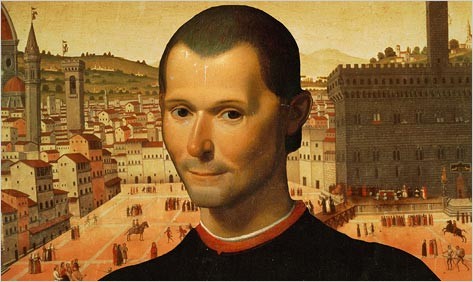
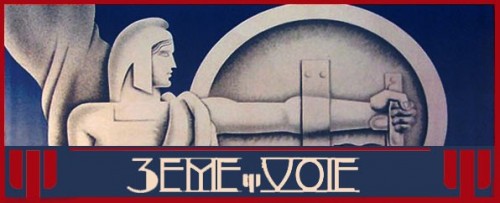

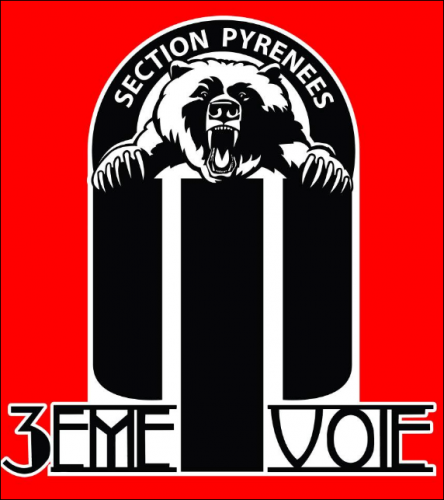 A revolutionary imperial struggle against the Atlanticist Leviathan (aka the NWO)—the struggle to which Yockey gave his life—revolves around the formation of a Euro-Russian federation to fight the thalassocratic powers: les Anglos-Saxons incarnating the Protestant ethic and the spirit of capitalism—England and America—whose hedonist dictatorship of “creative destruction” was not the invention of maniacal Jews, but entirely homegrown, given that it was born at Runnymede; came of age with Henry VIII’s sacrileges, which turned Christianity into a religion of capitalism (Protestantism); and triumphed with the Whig Oligarchy that has dominated the Western world since 1789, when its Continental ideologues overthrew the French monarchy, representing a “Catholic” and regalian modernity.[13]
A revolutionary imperial struggle against the Atlanticist Leviathan (aka the NWO)—the struggle to which Yockey gave his life—revolves around the formation of a Euro-Russian federation to fight the thalassocratic powers: les Anglos-Saxons incarnating the Protestant ethic and the spirit of capitalism—England and America—whose hedonist dictatorship of “creative destruction” was not the invention of maniacal Jews, but entirely homegrown, given that it was born at Runnymede; came of age with Henry VIII’s sacrileges, which turned Christianity into a religion of capitalism (Protestantism); and triumphed with the Whig Oligarchy that has dominated the Western world since 1789, when its Continental ideologues overthrew the French monarchy, representing a “Catholic” and regalian modernity.[13]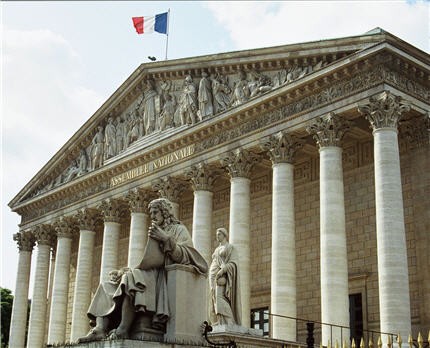
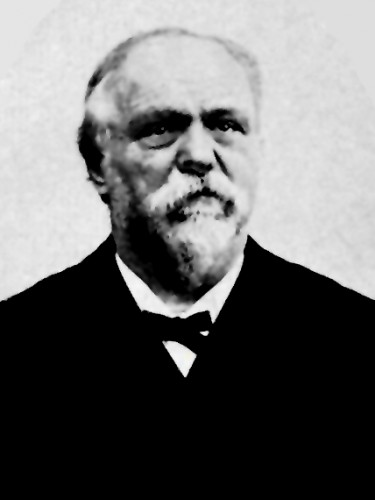
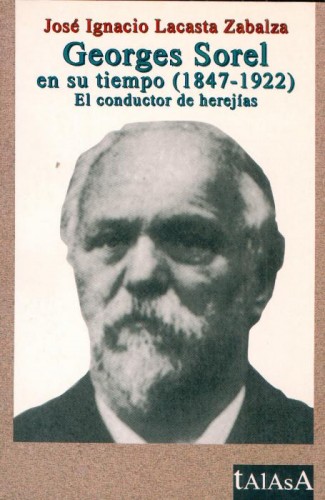

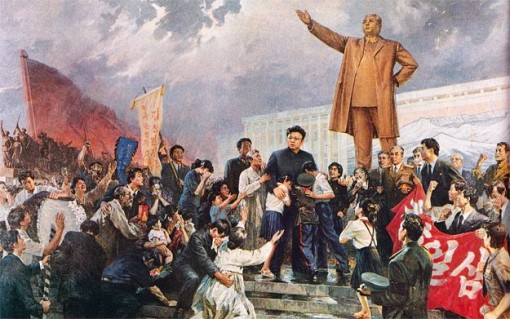
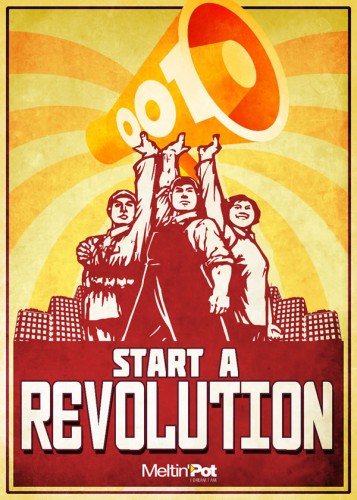
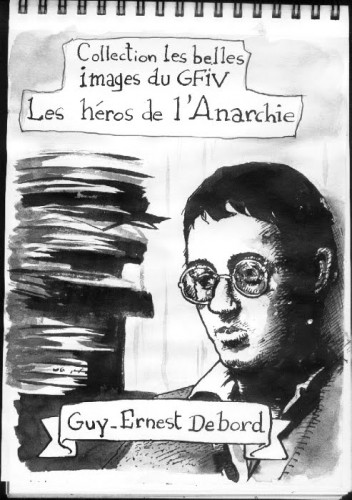
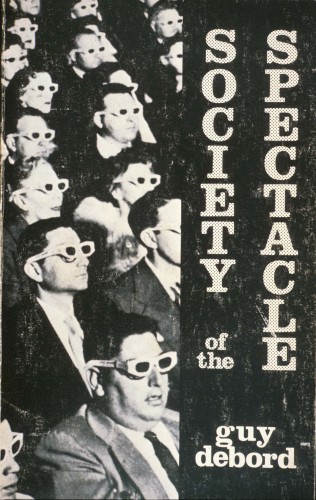 Debords Beschreibung der Totalität des Fetischismus und der Ware beginnt in unmittelbarer Anlehnung an das Marxsche "Kapital", dessen ersten Satz er paraphrasiert: "Das ganze Leben der Gesellschaften, in welchen die modernen Produktionsbedingungen herrschen, erscheint als eine ungeheure Sammlung von Spektakeln." (13) Eine explizit feststehende Definition des Begriffs Spektakel gibt Debord in seiner Schrift von 1967 nicht. Er umkreist ihn vielmehr und beschreibt ihn in seinen realen Erscheinungen und ex negativo. Im Begriff des Spektakels ist bei Debord der Begriff des Kapitals, wenn auch gegenüber der Marxschen Herleitung in vereinfachter Form, und der des Fetischismus aufgehoben: "Das Spektakel ist das Kapital in einem solchen Grad der Akkumulation, daß es zum Bild wird." (27) Er begreift das Spektakel als gesteigerte Form des Fetischismus: "Das Prinzip des Warenfetischismus ist es, (...), das sich absolut im Spektakel vollendet, wo die sinnliche Welt durch eine über ihr schwebende Auswahl von Bildern ersetzt wird, welche sich zugleich als das Sinnliche schlechthin hat anerkennen lassen." (31f.) Marx hat die Verwandlung menschlicher Beziehungen in die Beziehungen von Dingen beschrieben. Debord greift dies auf und beschreibt die Verwandlung der menschlichen Beziehungen in die Beziehung zwischen Bildern,10 die den Menschen noch äußerlicher erscheinen als die Dinge. Anders als in einigen postmodernen Diskursen hingegen, die dazu tendieren, alles in Bilder aufgelöst zu sehen, und die daher keine Realität mehr kennen, die in ihrer Gesamtheit kritisiert werden könnte, bleibt das Bild bei Debord auf die gesellschaftliche fetischistische Totalität, auf die materielle Realität rückbezogen.
Debords Beschreibung der Totalität des Fetischismus und der Ware beginnt in unmittelbarer Anlehnung an das Marxsche "Kapital", dessen ersten Satz er paraphrasiert: "Das ganze Leben der Gesellschaften, in welchen die modernen Produktionsbedingungen herrschen, erscheint als eine ungeheure Sammlung von Spektakeln." (13) Eine explizit feststehende Definition des Begriffs Spektakel gibt Debord in seiner Schrift von 1967 nicht. Er umkreist ihn vielmehr und beschreibt ihn in seinen realen Erscheinungen und ex negativo. Im Begriff des Spektakels ist bei Debord der Begriff des Kapitals, wenn auch gegenüber der Marxschen Herleitung in vereinfachter Form, und der des Fetischismus aufgehoben: "Das Spektakel ist das Kapital in einem solchen Grad der Akkumulation, daß es zum Bild wird." (27) Er begreift das Spektakel als gesteigerte Form des Fetischismus: "Das Prinzip des Warenfetischismus ist es, (...), das sich absolut im Spektakel vollendet, wo die sinnliche Welt durch eine über ihr schwebende Auswahl von Bildern ersetzt wird, welche sich zugleich als das Sinnliche schlechthin hat anerkennen lassen." (31f.) Marx hat die Verwandlung menschlicher Beziehungen in die Beziehungen von Dingen beschrieben. Debord greift dies auf und beschreibt die Verwandlung der menschlichen Beziehungen in die Beziehung zwischen Bildern,10 die den Menschen noch äußerlicher erscheinen als die Dinge. Anders als in einigen postmodernen Diskursen hingegen, die dazu tendieren, alles in Bilder aufgelöst zu sehen, und die daher keine Realität mehr kennen, die in ihrer Gesamtheit kritisiert werden könnte, bleibt das Bild bei Debord auf die gesellschaftliche fetischistische Totalität, auf die materielle Realität rückbezogen. 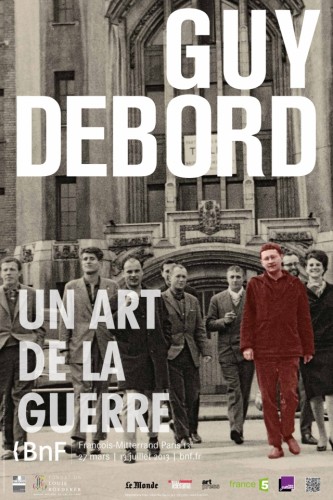 Die Praxis des Proletariats als revolutionäre Klasse kann für Debord "nicht weniger sein als das geschichtliche Bewußtsein, das auf die Totalität seiner Welt wirkt." (64) Damit ist aber noch nichts darüber gesagt, ob das Proletariat als real existierende und zunächst nicht besonders revolutionäre Klasse dieses geschichtliche Bewußtsein auch hat. Dennoch bleibt für Debord — zumindest noch in "Die Gesellschaft des Spektakels" — das Proletariat jene Menschengruppe, die als Klasse die Emanzipation zu verwirklichen, den Fetischismus zu durchbrechen und aufzuheben hat. Subjektiv sei das Proletariat "noch von seinem praktischen Klassenbewußtsein entfernt (...)." (102) Wenn aber das Proletariat entdeckt, "daß seine geäußerte eigene Kraft zur fortwährenden Verstärkung der kapitalistischen Gesellschaft beiträgt, (...) entdeckt es auch durch die konkrete geschichtliche Erfahrung, daß es die Klasse ist, die jeder erstarrten Äußerung und jeder Spezialisierung der Macht total feind ist." (102f.) Debord ist Ende der 60er Jahre kritisch gegenüber dem gegenwärtigen Proletariat, aber durchaus zuversichtlich für die Zukunft. Die Emanzipation wird bei ihm noch mit dem Selbstbewußtsein des Proletariats zusammengedacht. Das Proletariat erschien Debord kurz vor den Ereignissen des Pariser Mai von 1968 als "einzige(r) Bewerber um das geschichtliche Leben". (72) Erst später, in den 90er Jahren, erkannte er, auch wenn er sich von der Vorstellung vom Proletariat als Vollender der Emanzipation nicht gänzlich verabschiedete, daß die Klassenherrschaft, wie er in der Vorrede zur dritten französischen Ausgabe von "Die Gesellschaft des Spektakels" formuliert, "mit einer Versöhnung geendet hat" (8), daß also das Proletariat, statt die Feindschaft zu Staat und Kapital zu entwickeln, auf die volle Integration in das fetischistische Warenspektakel gesetzt hat und die falsche Totalität der Gesellschaft nunmehr ohne Negation, ohne Einspruch existiert. In den "Kommentaren" ist jener kritische Pessimismus, der auch die Texte anderer Gesellschaftskritiker seit dem Nationalsozialismus prägte, in potenzierter Form und mit den in solchen Zusammenhängen offensichtlich obligatorischen Übertreibungen anwesend: "Zum ersten Mal im modernen Europa versucht keine Partei oder Splittergruppe auch bloß vorzugeben, sie wolle es wagen, etwas von Belang zu ändern. (...) Es ist ein für alle Mal geschehen um jene beunruhigende Konzeption, die mehr als zweihundert Jahre vorgeherrscht hat und derzufolge man eine Gesellschaft kritisieren oder ändern, sie reformieren oder revolutionieren kann." (213)
Die Praxis des Proletariats als revolutionäre Klasse kann für Debord "nicht weniger sein als das geschichtliche Bewußtsein, das auf die Totalität seiner Welt wirkt." (64) Damit ist aber noch nichts darüber gesagt, ob das Proletariat als real existierende und zunächst nicht besonders revolutionäre Klasse dieses geschichtliche Bewußtsein auch hat. Dennoch bleibt für Debord — zumindest noch in "Die Gesellschaft des Spektakels" — das Proletariat jene Menschengruppe, die als Klasse die Emanzipation zu verwirklichen, den Fetischismus zu durchbrechen und aufzuheben hat. Subjektiv sei das Proletariat "noch von seinem praktischen Klassenbewußtsein entfernt (...)." (102) Wenn aber das Proletariat entdeckt, "daß seine geäußerte eigene Kraft zur fortwährenden Verstärkung der kapitalistischen Gesellschaft beiträgt, (...) entdeckt es auch durch die konkrete geschichtliche Erfahrung, daß es die Klasse ist, die jeder erstarrten Äußerung und jeder Spezialisierung der Macht total feind ist." (102f.) Debord ist Ende der 60er Jahre kritisch gegenüber dem gegenwärtigen Proletariat, aber durchaus zuversichtlich für die Zukunft. Die Emanzipation wird bei ihm noch mit dem Selbstbewußtsein des Proletariats zusammengedacht. Das Proletariat erschien Debord kurz vor den Ereignissen des Pariser Mai von 1968 als "einzige(r) Bewerber um das geschichtliche Leben". (72) Erst später, in den 90er Jahren, erkannte er, auch wenn er sich von der Vorstellung vom Proletariat als Vollender der Emanzipation nicht gänzlich verabschiedete, daß die Klassenherrschaft, wie er in der Vorrede zur dritten französischen Ausgabe von "Die Gesellschaft des Spektakels" formuliert, "mit einer Versöhnung geendet hat" (8), daß also das Proletariat, statt die Feindschaft zu Staat und Kapital zu entwickeln, auf die volle Integration in das fetischistische Warenspektakel gesetzt hat und die falsche Totalität der Gesellschaft nunmehr ohne Negation, ohne Einspruch existiert. In den "Kommentaren" ist jener kritische Pessimismus, der auch die Texte anderer Gesellschaftskritiker seit dem Nationalsozialismus prägte, in potenzierter Form und mit den in solchen Zusammenhängen offensichtlich obligatorischen Übertreibungen anwesend: "Zum ersten Mal im modernen Europa versucht keine Partei oder Splittergruppe auch bloß vorzugeben, sie wolle es wagen, etwas von Belang zu ändern. (...) Es ist ein für alle Mal geschehen um jene beunruhigende Konzeption, die mehr als zweihundert Jahre vorgeherrscht hat und derzufolge man eine Gesellschaft kritisieren oder ändern, sie reformieren oder revolutionieren kann." (213)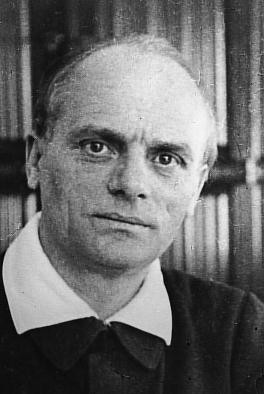 Einer wollte den Führer führen. Nein: Einige wollten den Führer führen und wirkten so im Zeichen des Führers. Ob Heidegger, Rosenberg oder Spann, die Qualität ihrer Beiträge bleibt in diesem Kontext sekundär, wenn auch im Sinne der üblichen Vorwegnahme bei Spann die Betonung auf der philosophischen Stupidität liegen kann. Ihm gelang jedoch die Formierung eines Kreises, der mehr als sechzig Jahre nach seiner eigenen Entfernung von der Universität, der heutigen WU-Wien, das Gewäsch von Ganzheit wiederholt und daneben peinlich bemüht wirkt, keinen runden Geburtstag des Meisters oder seines ersten Schülers, manchmal auch des zweiten oder folgender, zu vergessen und zumeist mit einem Presseartikel, besser mit einem Jubiläumsband zu bedenken.
Einer wollte den Führer führen. Nein: Einige wollten den Führer führen und wirkten so im Zeichen des Führers. Ob Heidegger, Rosenberg oder Spann, die Qualität ihrer Beiträge bleibt in diesem Kontext sekundär, wenn auch im Sinne der üblichen Vorwegnahme bei Spann die Betonung auf der philosophischen Stupidität liegen kann. Ihm gelang jedoch die Formierung eines Kreises, der mehr als sechzig Jahre nach seiner eigenen Entfernung von der Universität, der heutigen WU-Wien, das Gewäsch von Ganzheit wiederholt und daneben peinlich bemüht wirkt, keinen runden Geburtstag des Meisters oder seines ersten Schülers, manchmal auch des zweiten oder folgender, zu vergessen und zumeist mit einem Presseartikel, besser mit einem Jubiläumsband zu bedenken.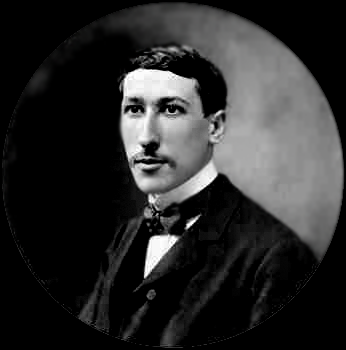
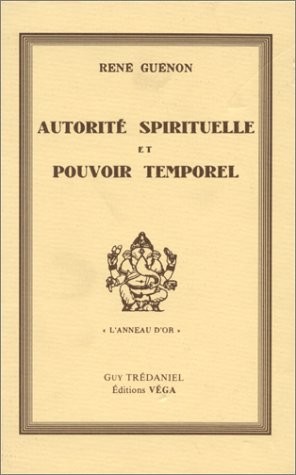 Pero más recientemente todavía y con motivo de la publicación consecutiva de las Memorias de Eliade, la perspectiva sobre la irradiación guenoniana se ha ampliado y así hemos tenido la oportunidad de leer un erudito artículo del estudioso italiano Cristiano Grottanelli, bajo el acápite de «Mircea Eliade, Carl Schmitt, René Guénon, 1942», en la Revue de l’Histoire des Religions Tome 219, fascículo 3, julio-septiembre 2002, pp. 325-356, que arroja nuevas luces y sombras sobre la cuestión claramente anticipada en el título y que amplia el panorama con la mención del gran jurista y experto en derecho internacional, Carl Schmitt, tan apreciado en los comienzos de los años 30 por el régimen nacionalsocialista, como posteriormente repudiado tanto por la SS y el nazismo que representaban, como por sus vencedores aliados.
Pero más recientemente todavía y con motivo de la publicación consecutiva de las Memorias de Eliade, la perspectiva sobre la irradiación guenoniana se ha ampliado y así hemos tenido la oportunidad de leer un erudito artículo del estudioso italiano Cristiano Grottanelli, bajo el acápite de «Mircea Eliade, Carl Schmitt, René Guénon, 1942», en la Revue de l’Histoire des Religions Tome 219, fascículo 3, julio-septiembre 2002, pp. 325-356, que arroja nuevas luces y sombras sobre la cuestión claramente anticipada en el título y que amplia el panorama con la mención del gran jurista y experto en derecho internacional, Carl Schmitt, tan apreciado en los comienzos de los años 30 por el régimen nacionalsocialista, como posteriormente repudiado tanto por la SS y el nazismo que representaban, como por sus vencedores aliados. En vísperas de Navidad del mismo año Eliade recibió Tierra y mar de parte de Schmitt, y Goruneanu le informa que el número 3 de Zalmoxis que había enviado a Schmitt lo acompañaba a Jünger en su mochila. Y esta triple relación de personas, directa, en un caso, e indirecta en el otro – por medio de la revista Zalmoxis-, se repite en 1944 y posteriormente. El primer caso se concretó por un nuevo encuentro de Schmitt -quien consideraba a Guénon: “El hombre más interesante de su tiempo” según señala Eliade en Fragmentos de Diario- con éste en Lisboa. En la visita de 1942, conjetura Grottanelli, de acuerdo con los testimonios de una simpatía recíproca de ambos personajes sobre Guénon, conversarían sobre él posiblemente no sólo como maestro sino también como teórico de la Tradición. El segundo encuentro a que nos hemos referido de Jürgen y Eliade y que nos interesa menos en este trabajo, llevó a que un tiempo después Jünger y Eliade dirigieran la revista Antaios.
En vísperas de Navidad del mismo año Eliade recibió Tierra y mar de parte de Schmitt, y Goruneanu le informa que el número 3 de Zalmoxis que había enviado a Schmitt lo acompañaba a Jünger en su mochila. Y esta triple relación de personas, directa, en un caso, e indirecta en el otro – por medio de la revista Zalmoxis-, se repite en 1944 y posteriormente. El primer caso se concretó por un nuevo encuentro de Schmitt -quien consideraba a Guénon: “El hombre más interesante de su tiempo” según señala Eliade en Fragmentos de Diario- con éste en Lisboa. En la visita de 1942, conjetura Grottanelli, de acuerdo con los testimonios de una simpatía recíproca de ambos personajes sobre Guénon, conversarían sobre él posiblemente no sólo como maestro sino también como teórico de la Tradición. El segundo encuentro a que nos hemos referido de Jürgen y Eliade y que nos interesa menos en este trabajo, llevó a que un tiempo después Jünger y Eliade dirigieran la revista Antaios.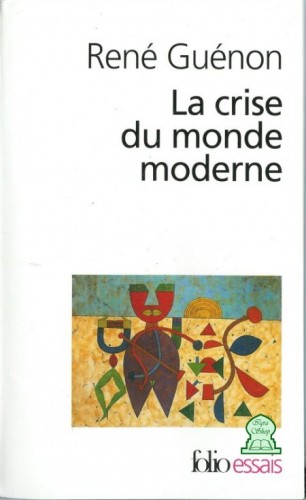 Nuevamente en este texto transparente están reunidas por Eliade las dos puntas de su posición de aceptación y crítica en relación con Guénon y otros autores vecinos por las ideas: simbolismo e ideas tradicionales garantizadores de la universalidad de las creencias sagradas como fondo organizador, pero a partir de la investigación científica. El reunir y avecinar documentos no es erudición positivista ni vacía, sino que en el allegamiento surgen ante la mente sensible y perspicaz a los fenómenos aproximadamente las ideas y principios transcendentes que subyacen. Las hierofanías, como manifestaciones de lo sagrado, revelan uniones o integraciones mediadoras que ligan a los contrarios –lo profano y lo sagrado- con equilibrio, lo organizan en sistemas estructurales en el lenguaje del símbolo y del mito, y permiten al alma religiosa arcaica y actual ascender a los orígenes constitutivos. No hay una diferencia insalvable acerca del reconocimiento del fondo espiritual entre Eliade y Guénon, sí lo hay en cuanto al método de acceso. Firmeza de la tradición y de la iniciación en cuanto a Guénon, ingreso por el reconocimiento de los fenómenos sagrados reflejados en la conciencia que cada vez exigen mayor comprensión, para Mircea Eliade. Guénon aspira a romper con lo profano para tener acceso no reflejo, sino directo a lo sagrado; Eliade, se sumerge en la dialéctica de lo sagrado y lo profano que acompaña a la vida del cosmos y la sociedad. Lo primero da una existencia digna de iniciados; lo segundo, de hombres en el mundo vitalmente sacro, que eligen diferentes destinos.
Nuevamente en este texto transparente están reunidas por Eliade las dos puntas de su posición de aceptación y crítica en relación con Guénon y otros autores vecinos por las ideas: simbolismo e ideas tradicionales garantizadores de la universalidad de las creencias sagradas como fondo organizador, pero a partir de la investigación científica. El reunir y avecinar documentos no es erudición positivista ni vacía, sino que en el allegamiento surgen ante la mente sensible y perspicaz a los fenómenos aproximadamente las ideas y principios transcendentes que subyacen. Las hierofanías, como manifestaciones de lo sagrado, revelan uniones o integraciones mediadoras que ligan a los contrarios –lo profano y lo sagrado- con equilibrio, lo organizan en sistemas estructurales en el lenguaje del símbolo y del mito, y permiten al alma religiosa arcaica y actual ascender a los orígenes constitutivos. No hay una diferencia insalvable acerca del reconocimiento del fondo espiritual entre Eliade y Guénon, sí lo hay en cuanto al método de acceso. Firmeza de la tradición y de la iniciación en cuanto a Guénon, ingreso por el reconocimiento de los fenómenos sagrados reflejados en la conciencia que cada vez exigen mayor comprensión, para Mircea Eliade. Guénon aspira a romper con lo profano para tener acceso no reflejo, sino directo a lo sagrado; Eliade, se sumerge en la dialéctica de lo sagrado y lo profano que acompaña a la vida del cosmos y la sociedad. Lo primero da una existencia digna de iniciados; lo segundo, de hombres en el mundo vitalmente sacro, que eligen diferentes destinos.